Holiday 2020 Gift Guide
The most wonderful time of the year is right around the corner and now is the time to find the best gifts for your family and friends. Even though we have been through a wild ride of a year, we shouldn’t let that stop us from celebrating the holidays and treating your loved ones (or yourself) to some amazing gifts. Check out some of our favorite brands to shop this holiday season!
The most wonderful time of the year is right around the corner and now is the time to find the best gifts for your family and friends. Even though we have been through a wild ride of a year, we shouldn’t let that stop us from celebrating the holidays and treating your loved ones (or yourself) to some amazing gifts. Check out some of our favorite brands to shop this holiday season!
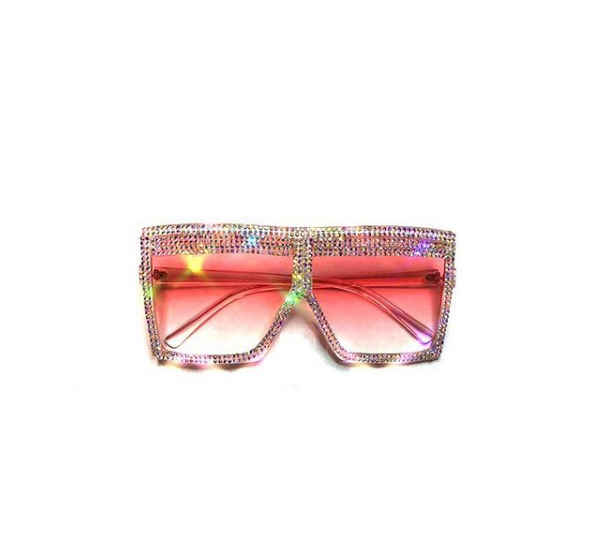
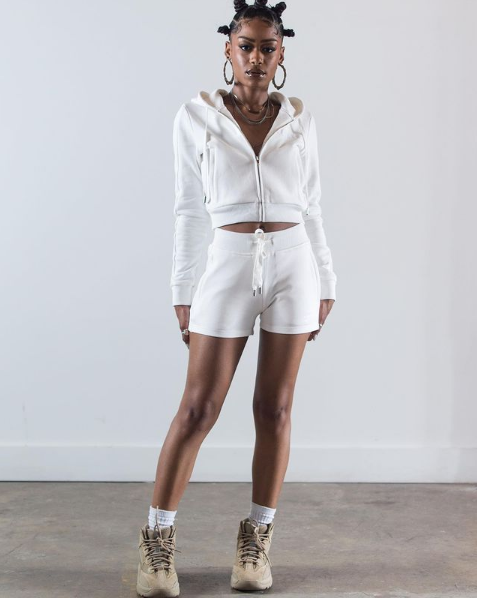
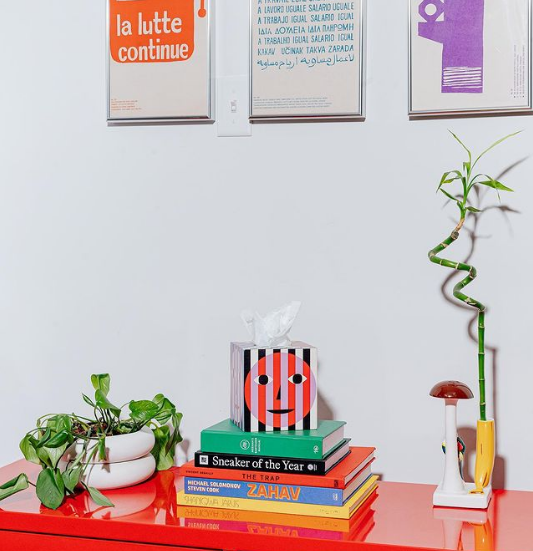

Brand: SBShades/ Stevie Boi
What do they sell?: Luxury eyewear and accessories
Price range: $60 - $600
Known for: Designed eyewear for celebrities such as Madonna, Beyonce and Kesha
Website: https://www.stevieboi.com/
Brand: Lovello Elizabeth
What do they sell?: Unisex leisurewear
Price range: $34 - $140
Known for: Featured in Essence Magazine & FashionBomb Daily
Website: https://lovelloelizabeth.com/
Brand: Yowie
What do they sell?: Small curated collection of home and lifestyle gifts.
Price range: $2 - $230
Known for: Yowie has been featured in Teen Vogue, House Beautiful and Philadelphia Magazine
Website: https://www.shopyowie.com/
Brand: Common Ground
What do they sell?: Footwear, streetwear and vintage
Price range: Prices varies depending on item
Known for: Been featured on Philadelphia Magazine for “Best of Philly”
Website: https://commonground12.com/
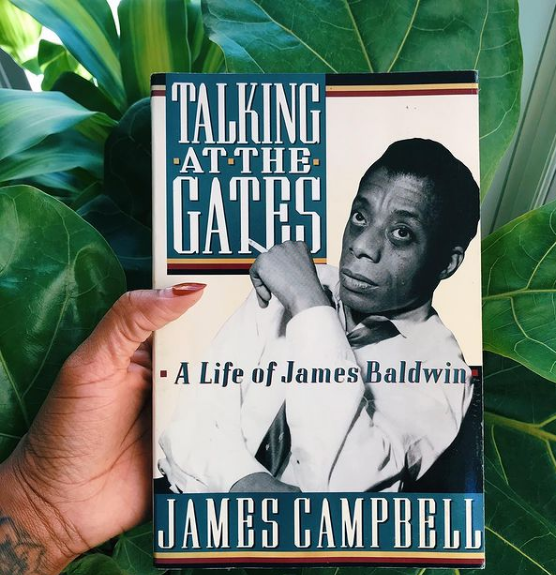

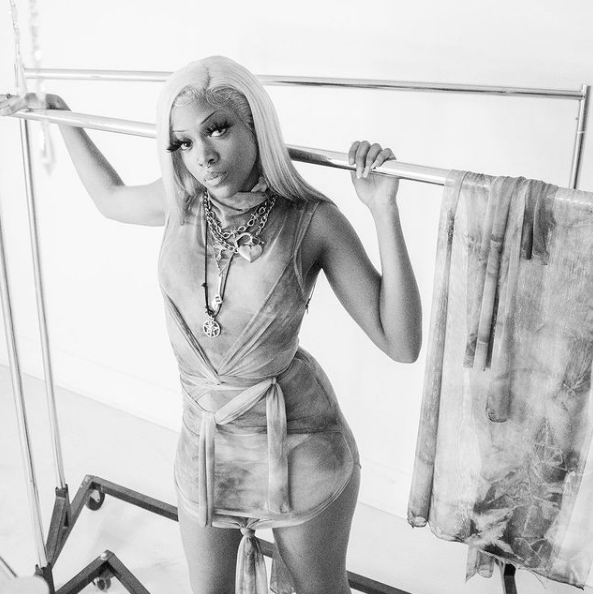
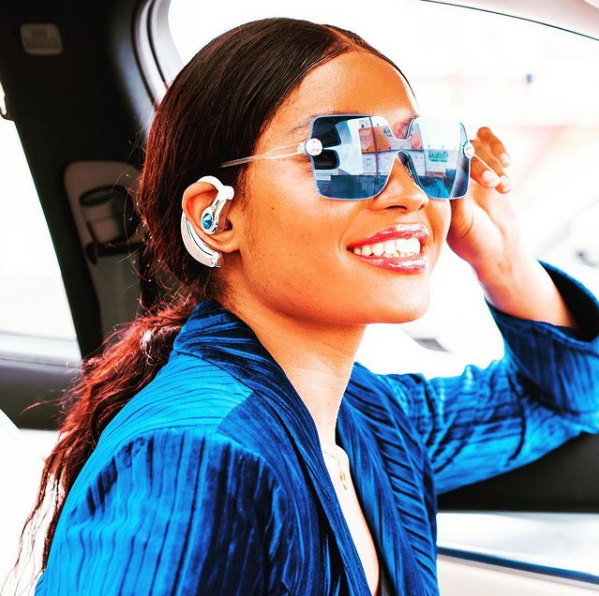
Brand: Black Soul Vintage
What do they sell?: Vintage books, artwork and collectibles from black history
Price range: Prices varies depending on item
Known for: Been featured on billypenn.com
Website: https://www.blacksoulvintage.com/
Brand: Flourishing Beauty and Wellness
What do they sell?: Beauty, skincare and wellness products
Price range: $13- $32
Known for: Been featured on Visit Philadelphia
Website: https://flourishingbeautyandwellness.com/
Brand: Haus of Khendar
What do they sell?: fashion apparel and accessories
Price range: $25 - $200 (custom handmade pieces rates vary depending on project)
Known for: Featured in Paper Magazine and LadyGunn Magazine. Worn by Kelly Rowland, Azealia Banks and Melli.
Website: https://www.hausofkhendar.com/
Brand: Stylaga
What do they sell?: Crystal bluetooth earrings
Price range: $60 -$160
Known for: Seen on Amazon and Walmart
Website: https://www.stylaga.com/
How Romeo Hunte Is Quietly Redefining What It Means to Be an American Brand
Romeo Hunte’s journey since launching his namesake label in 2013 may have been impressively considered, but even he wasn’t prepared for the challenges that the current pandemic would bring.
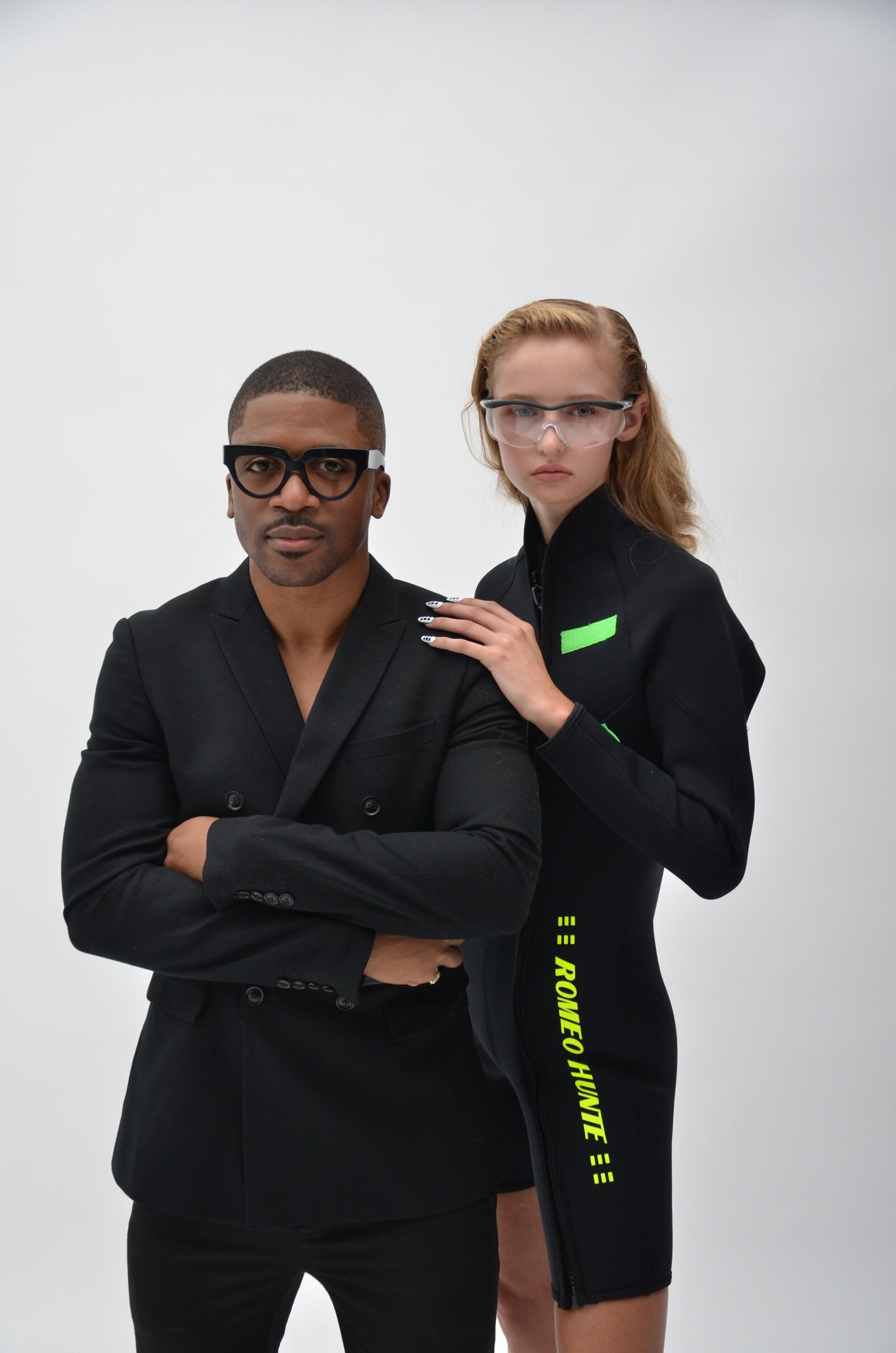
Romeo Hunte’s journey since launching his namesake label in 2013 may have been impressively considered, but even he wasn’t prepared for the challenges that the current pandemic would bring. Hunte says, “There were a lot of ups and downs over the past few months. My grandfather passed, and a few other members of the team had family members pass too. We just kind of huddled together, working from home, working very odd hours, and I think it built us up to be a stronger team—as a family, we understood everyone's going through this, and were always checking in on each other.”
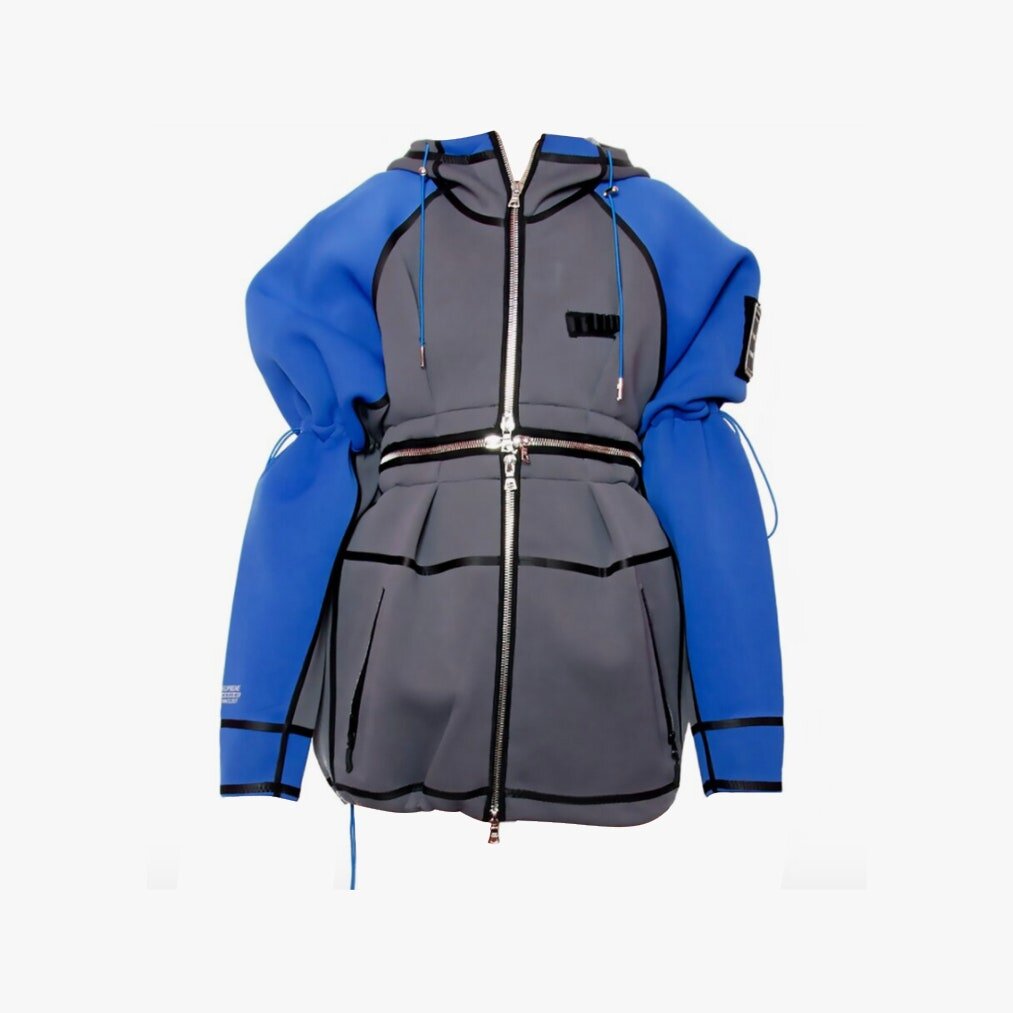
After all, if there’s one thing that defines Hunte’s ascent since launching his label in 2013—aside from his signature deconstructed outerwear—it’s the strong sense of community he’s developed. This doesn’t just include the illustrious list of celebrities, from Beyoncé to Zendaya, who have stepped out in his pieces, but the regular clients for whom he makes custom looks on a made to order basis. “We really don’t like to waste, so that on its own meant we weren't sitting on stock,” he says. “We started asking, what does our customer actually want right now?” The natural answer, aside from the more flamboyant pieces still available on his website, was a range of face masks—a product that, for Hunte, fulfilled more than just a practical need. “The feedback from the masks has simply been that they’ve brightened up their day when they come in the mail, and I felt that’s the best thing I could do at this moment.”
As Hunte and his team began to plan their next steps post-lockdown, however, another national tragedy occurred; namely, the killing of George Floyd. Throughout the Black Lives Matter protests that followed, Hunte has been keenly observing the fashion industry’s reckoning with its historic underrepresentation of Black designers and creatives. “I think there’s a lot more work to be done,” Hunte says. “When I was a child, fashion was something that I always dreamed of doing, but it's challenging to step into an industry and feel like there aren't that many people that look like you, or share the same inspiration, to feel like you’ve been in the industry delivering each season and it’s overlooked. A lot of things are not so inclusive as they're promoted, sometimes it feels like, as a designer, you only really get noticed during Black History Month on those things. It can be frustrating, but I think I’ve learned to try not to bring emotion into the business. Hunte says, “I'm just hoping that it opens up doors for younger designers to feel like there's a place for them. Not just me, but the Kerbys, the LaQuans, the Victors, and the Telfars of the world. We can inspire a whole generation of designers to feel like: Wow, I could actually do it. When I was a young designer, I didn't have that many designers to look up like to really inspire me.”
Being a black gay creative for me feels liberating but at the same time there’s pressure. Pressure in needing to express yourself to a white society, that you are enough; what feels like having to explain my existence. having to explain why who I am and the art I produce is more than a hyper sexual view, but just what it is, art - expression, my expression.
Summer is here and it’s important for every woman to feel beautiful in their own skin. Support these amazing companies that offer some beautiful swimwear pieces that will leave you feeling confident and vibrant.
It's always been important to support black designers, but amid a pandemic and sociopolitical crisis, these black artists and business owners need your support now more than ever!
While people have shown concern for the rapper, others have taken the opportunity to make jokes about the incident. Within the last couple of months, the topic of how Black women are marginalized in society has become more prevalent.
The sudden worldwide shift to Digital Fashion Weeks has engendered confusion and ambivalence among designers and fashion brands, particularly in regards to the content of their promotional videos.
After witnessing the backlash from Simone Biles Vogue cover I had to sit aside and ponder: Why is it so challenging for some photographers to capture the beauty of black skin/people? Our undertones, our glow, even the texture of our hair. So, like always I went looking for methods to best capture dark skin.
This spicy blackberry and plum sauce recipe was a push for something different and will now be my go to condiment for the summer season.
Black women die at a rate three times higher than white women when giving birth. The death of Sha-Asia Washington has shown the racial disparities Black women face in childbirth.
Shoot for the Stars Aim for the Moon is the first posthumous album to reach No. 1 since 2018. Pop Smoke and XXXTentacion are two of the four hip-hop artists with posthumous No. 1s. They follow The Notorious B.I.G. and 2Pac, who each have three posthumous leaders. R.I.P to the Woo.
Fashion Education's Diversity Issue
Among the many other issues surrounding diversity and inclusion within the fashion industry, it's important to acknowledge the failings of the system that produces fashion industry practitioners; the university.
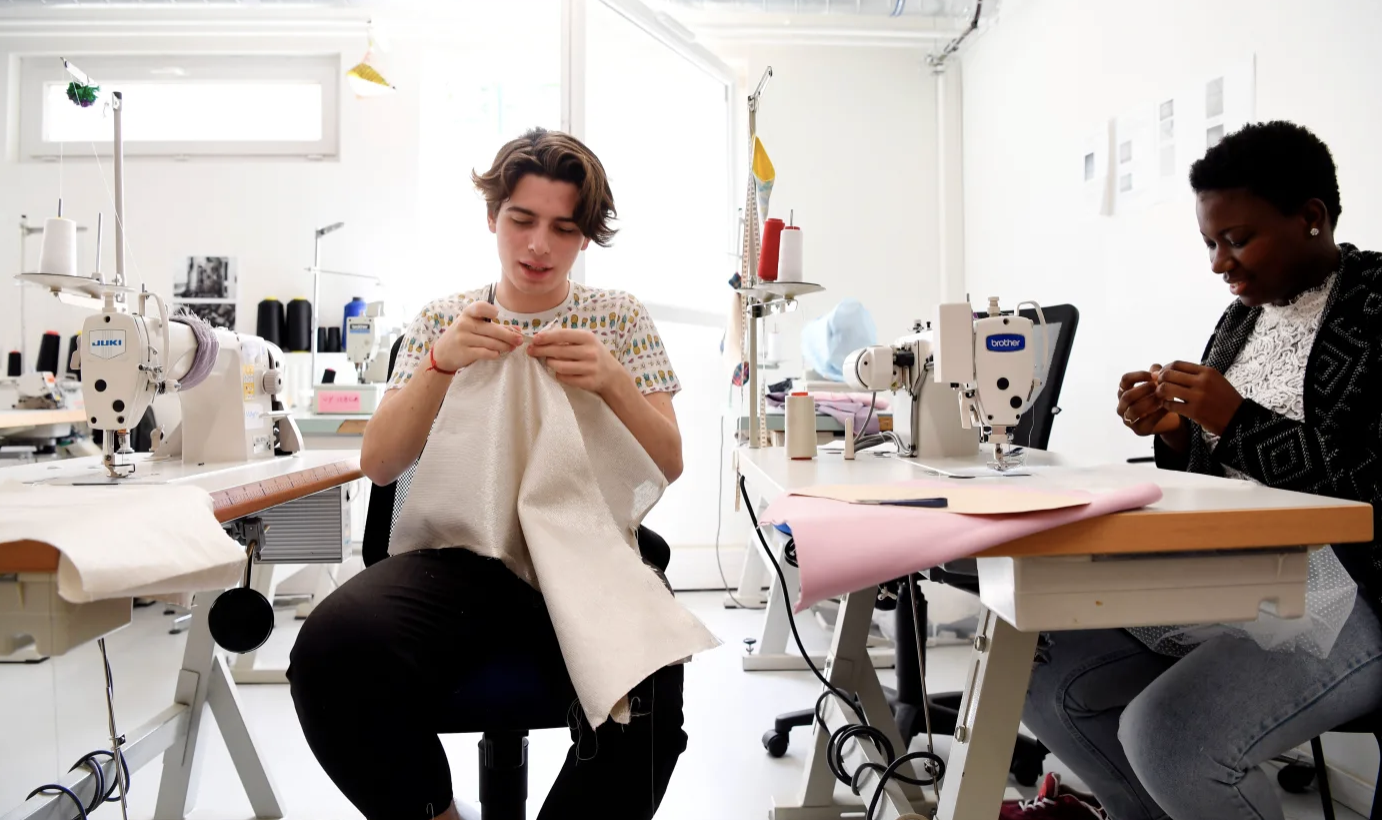
On June 29, 2020, Vogue Business News Editor Annachiara Biondi, wrote an article entitled, “White staff and a white curriculum: Inside fashion education,” which highlighted the fact that “black students and faculty remain underserved and underrepresented in the field.” This story is one that I very deeply resonate with as a fashion student and graduate teaching assistant at one of the top fashion schools in the nation. The fashion education systems diversity issue is one that is now starting to be acknowledged by the industry and is far from separate from what’s going on in the fashion industry.

The cultural and artistic references that many fashion brands pull from are rooted in black culture. However, these influential black fashion figures are not integrated in the fashion curriculum, across disciplines such as design, merchandising, fashion studies and journalism. This is especially problematic due to the fact that there are many black fashion students who change their majors because their work isn’t embraced by their professors. A while back, I had the opportunity to speak with the black undergraduate fashion students on campus about their experience at The Fashion School and by the end of the event, they were all in tears. Academia has to do a much better job and the task forces and conversations are beneficial. But it really comes down to hiring black, tenure-track faculty members so that students can feel free to see themselves in their work.
Fashionista: Alain Jocard/Getty Images
BoF: Shutterstock
Report: Julian Randall
At the rise of Covid-19 many of us first questioned the timeline of fashion week and would we see the regular calendar continue - the question weighed over many of us for months! It was refreshing to see design houses and designers across the globe take advantage of the uncertainty and plow into production mode - thus my interest in Jerri Reid New York - The Black Designer based in Brooklyn New York wow’d instagram with his latest collection paying homage to the Black Is King film which debuted earlier this year in July. I was taken aback at quick of a turn round the young designer produced and released his well crafted designs reflecting some of the films most memorable moments.
Being a black gay creative for me feels liberating but at the same time there’s pressure. Pressure in needing to express yourself to a white society, that you are enough; what feels like having to explain my existence. having to explain why who I am and the art I produce is more than a hyper sexual view, but just what it is, art - expression, my expression.
Summer is here and it’s important for every woman to feel beautiful in their own skin. Support these amazing companies that offer some beautiful swimwear pieces that will leave you feeling confident and vibrant.
It's always been important to support black designers, but amid a pandemic and sociopolitical crisis, these black artists and business owners need your support now more than ever!
While people have shown concern for the rapper, others have taken the opportunity to make jokes about the incident. Within the last couple of months, the topic of how Black women are marginalized in society has become more prevalent.
The sudden worldwide shift to Digital Fashion Weeks has engendered confusion and ambivalence among designers and fashion brands, particularly in regards to the content of their promotional videos.
After witnessing the backlash from Simone Biles Vogue cover I had to sit aside and ponder: Why is it so challenging for some photographers to capture the beauty of black skin/people? Our undertones, our glow, even the texture of our hair. So, like always I went looking for methods to best capture dark skin.
This spicy blackberry and plum sauce recipe was a push for something different and will now be my go to condiment for the summer season.
Black women die at a rate three times higher than white women when giving birth. The death of Sha-Asia Washington has shown the racial disparities Black women face in childbirth.
Shoot for the Stars Aim for the Moon is the first posthumous album to reach No. 1 since 2018. Pop Smoke and XXXTentacion are two of the four hip-hop artists with posthumous No. 1s. They follow The Notorious B.I.G. and 2Pac, who each have three posthumous leaders. R.I.P to the Woo.
To be black and well can mean a lot of things, but should definitely include #Skincare #Meditation #BlackReading among many other things, daily! #BlackLivesMatter #HealthAndWellness #AmplifyBlackVoices
Ib Kamara Celebrates "Future, Community, Beauty, and Blackness" in Browns' "Family Affair"
Flaxen Summer
Flaxen Summer. EcoFriendly. Linen clothing.

There are plenty of reasons for the popularity of flax. Fabric is easy to care for, never loses its relevance, is most comfortable for hot weather, and is one of the most environmentally friendly materials.
The history of flax dates back to time immemorial. According to historians, in ancient Egypt and the Middle East, linen was a luxury item. The priests wore clothing made of natural material, and the canvases in which the mummies of the Egyptian pharaohs were wrapped were preserved to this day.
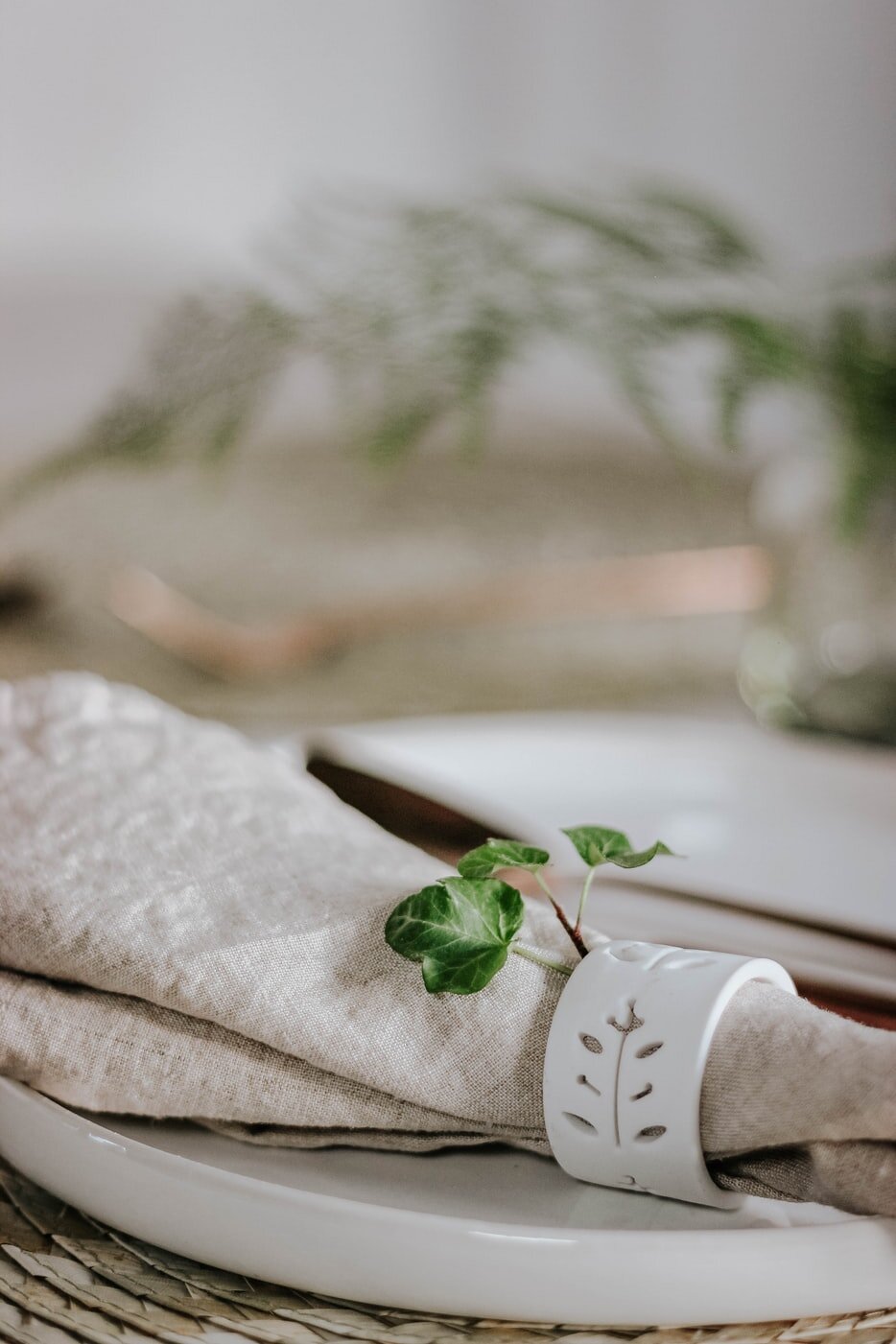
Flax is considered to be one of the most environmentally friendly materials. In the process of growing, it needs only long daylight and a small amount of water and pesticides. Thanks to non-waste production, flax was again able to compete with cotton for the title of the most environmentally friendly material and claim the status of the material of the future.
Despite the characteristic density and inelasticity, flax perfectly passes air, absorbs moisture, and removes heat, which is why it is gaining unprecedented popularity in the warm season. In addition, it is completely hypoallergenic and durable. A linen outfit is able to serve its hostess for more than one year while maintaining a presentable appearance.
Report: Olha Dzharyha
At the rise of Covid-19 many of us first questioned the timeline of fashion week and would we see the regular calendar continue - the question weighed over many of us for months! It was refreshing to see design houses and designers across the globe take advantage of the uncertainty and plow into production mode - thus my interest in Jerri Reid New York - The Black Designer based in Brooklyn New York wow’d instagram with his latest collection paying homage to the Black Is King film which debuted earlier this year in July. I was taken aback at quick of a turn round the young designer produced and released his well crafted designs reflecting some of the films most memorable moments.
Being a black gay creative for me feels liberating but at the same time there’s pressure. Pressure in needing to express yourself to a white society, that you are enough; what feels like having to explain my existence. having to explain why who I am and the art I produce is more than a hyper sexual view, but just what it is, art - expression, my expression.
Summer is here and it’s important for every woman to feel beautiful in their own skin. Support these amazing companies that offer some beautiful swimwear pieces that will leave you feeling confident and vibrant.
It's always been important to support black designers, but amid a pandemic and sociopolitical crisis, these black artists and business owners need your support now more than ever!
While people have shown concern for the rapper, others have taken the opportunity to make jokes about the incident. Within the last couple of months, the topic of how Black women are marginalized in society has become more prevalent.
The sudden worldwide shift to Digital Fashion Weeks has engendered confusion and ambivalence among designers and fashion brands, particularly in regards to the content of their promotional videos.
After witnessing the backlash from Simone Biles Vogue cover I had to sit aside and ponder: Why is it so challenging for some photographers to capture the beauty of black skin/people? Our undertones, our glow, even the texture of our hair. So, like always I went looking for methods to best capture dark skin.
This spicy blackberry and plum sauce recipe was a push for something different and will now be my go to condiment for the summer season.
Black women die at a rate three times higher than white women when giving birth. The death of Sha-Asia Washington has shown the racial disparities Black women face in childbirth.
Shoot for the Stars Aim for the Moon is the first posthumous album to reach No. 1 since 2018. Pop Smoke and XXXTentacion are two of the four hip-hop artists with posthumous No. 1s. They follow The Notorious B.I.G. and 2Pac, who each have three posthumous leaders. R.I.P to the Woo.
To be black and well can mean a lot of things, but should definitely include #Skincare #Meditation #BlackReading among many other things, daily! #BlackLivesMatter #HealthAndWellness #AmplifyBlackVoices
Ib Kamara Celebrates "Future, Community, Beauty, and Blackness" in Browns' "Family Affair"
Black Fashion Editors To Follow Right Now
If you're interested in engaging with content to make you a more educated ally, consumer or citizen, you should definitely be following these fashion editors!
These fashion editors are currently creating some of the most educational and engaging content surrounding the current social climate. If you’re interested in learning more about how you can become an ally or a more educated and socially conscious member of society, you should definitely follow these editors.
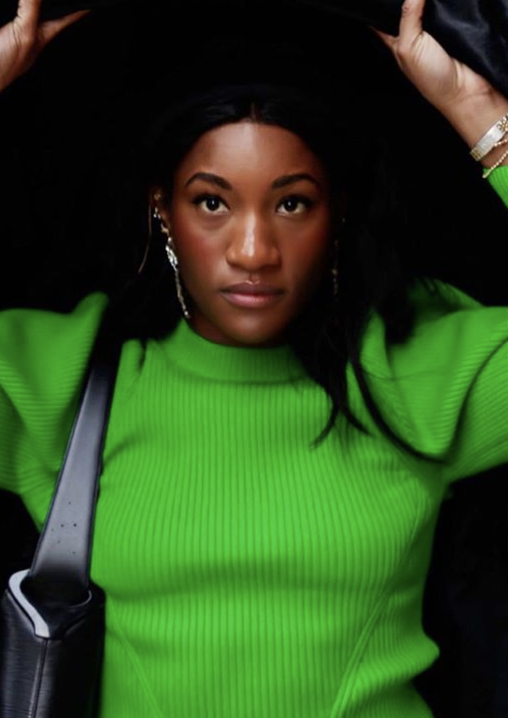
Danielle Prescod
Danielle Prescod currently serves as the Style Director at BET Networks, a subsidiary of Viacom Inc, and was formerly an Accessories Editor at InStyle. Recently, Prescod has been sharing a lot of information and personal stories that bring light to many issues that black people face today. As someone who grew up in a predominantly white and affluent area, she has been able to relate to many people who deal with microaggressions from their white friends and colleagues.
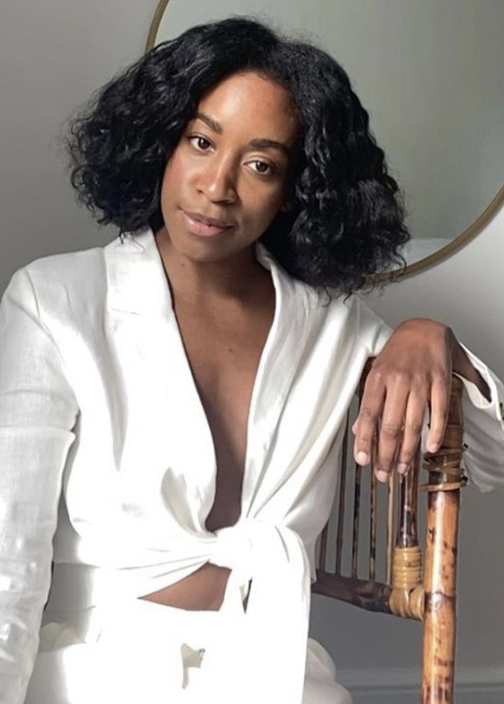
Chrissy Rutherford
Harper’s Bazaar’s former Special Projects Director, Chrissy Rutherford, is another black fashion writer and editor who has been bold in her activism on social media. She recently posted a video that gained over 5 million views, speaking on anti-racism and encouraging white people to go beyond just not being racist.
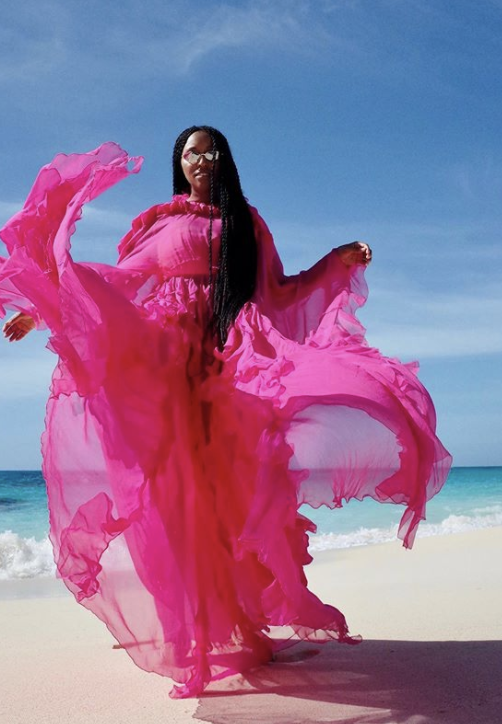
Shiona Turini
One freelance editor and costume designer who has been consistently highlighting the work of black artists is Shiona Turini. Moreover, far before the reemergence of the Black Lives Matter movement, Turini was having the necessary conversations to ensure the upward mobility of her black counterparts in the fashion industry.
Photo Credits:
Shiona Turini: Meredith Andrews
Danielle Prescod: Darrell Hunter
Chrissy Rutherford: Chrissy Rutherford Instagram
Report: Julian Alexander Randall
At the rise of Covid-19 many of us first questioned the timeline of fashion week and would we see the regular calendar continue - the question weighed over many of us for months! It was refreshing to see design houses and designers across the globe take advantage of the uncertainty and plow into production mode - thus my interest in Jerri Reid New York - The Black Designer based in Brooklyn New York wow’d instagram with his latest collection paying homage to the Black Is King film which debuted earlier this year in July. I was taken aback at quick of a turn round the young designer produced and released his well crafted designs reflecting some of the films most memorable moments.
Being a black gay creative for me feels liberating but at the same time there’s pressure. Pressure in needing to express yourself to a white society, that you are enough; what feels like having to explain my existence. having to explain why who I am and the art I produce is more than a hyper sexual view, but just what it is, art - expression, my expression.
Summer is here and it’s important for every woman to feel beautiful in their own skin. Support these amazing companies that offer some beautiful swimwear pieces that will leave you feeling confident and vibrant.
It's always been important to support black designers, but amid a pandemic and sociopolitical crisis, these black artists and business owners need your support now more than ever!
While people have shown concern for the rapper, others have taken the opportunity to make jokes about the incident. Within the last couple of months, the topic of how Black women are marginalized in society has become more prevalent.
The sudden worldwide shift to Digital Fashion Weeks has engendered confusion and ambivalence among designers and fashion brands, particularly in regards to the content of their promotional videos.
After witnessing the backlash from Simone Biles Vogue cover I had to sit aside and ponder: Why is it so challenging for some photographers to capture the beauty of black skin/people? Our undertones, our glow, even the texture of our hair. So, like always I went looking for methods to best capture dark skin.
This spicy blackberry and plum sauce recipe was a push for something different and will now be my go to condiment for the summer season.
Black women die at a rate three times higher than white women when giving birth. The death of Sha-Asia Washington has shown the racial disparities Black women face in childbirth.
Shoot for the Stars Aim for the Moon is the first posthumous album to reach No. 1 since 2018. Pop Smoke and XXXTentacion are two of the four hip-hop artists with posthumous No. 1s. They follow The Notorious B.I.G. and 2Pac, who each have three posthumous leaders. R.I.P to the Woo.
To be black and well can mean a lot of things, but should definitely include #Skincare #Meditation #BlackReading among many other things, daily! #BlackLivesMatter #HealthAndWellness #AmplifyBlackVoices
Ib Kamara Celebrates "Future, Community, Beauty, and Blackness" in Browns' "Family Affair"
What we wear should make us feel good, especially for our moms to be. Finding the perfect pair of jeans and tops can be tough, and for pregnant women, even harder. Read more to see some great places to shop tha
Among the many other issues surrounding diversity and inclusion within the fashion industry, it's important to acknowledge the failings of the system that produces fashion industry practitioners; the university.
Ah, fall! The season of pumpkin spice, rustling leaves, and...refreshing your fashion game! Let's face it: While we adore our comfy sweaters and jeans, it’s the accessories that truly make or break our autumn outfits.
Accessories are a simple way to add some interest to your outfits. Whether you want to refresh your style, or just to add a pop of something extra, getting your accessories right can lift an outfit, and make you look more put-together, more stylish, or more fun.
Are you thinking about buying gifts for the special girl in your life? Whether you’re purchasing lovely presents for your friend, your partner, or your wife, we think you should definitely consider some wonderful fashionable choices. Here are some of the best possibilities that the special girl in your life is sure to love and appreciate.
2021 will be a wild ride for fashion lovers and style enthusiasts everywhere. With us still being in the middle of a pandemic and changes are happening with the way consumers shop, it will definitely give way to how differently people dress and style themselves. Here are a few trend predictions that may give way in 2021.
Fashion lovers and style enthusiasts rejoice. The Pantone’s Color of the Year for 2021 is here and not only did they announce one color but two! The two colors selected will be Ultimate Gray (PANTONE 17-5104) and Illuminating (PANTONE 13-0647) as the shades for Pantone's Color of the Year 2021. According to Teen Vogue, the last time Pantone announced two colors for color of the year was back in 2016.
Diarra Bousso’s experiences as a mathematician, artisan and former Wall Street Trader have led to the creation of Diarrablu - her lifestyle brand. Her designs showcase her culture with every detail and piece - it tells a story.
Developing your sense of style is an essential part of expressing yourself through your clothing.
The effects of a nationwide quarantine have devastated the fashion label Cushnie to the point at which its closure was made official in late October. The tragic end to one of the rare high-fashion brands in America helmed by a black woman brings into question the industry's promises to employ more racially diverse talent.
In these months of solitude, the bored masses have switched on to Netflix to help them escape the mundane feeling of the lockdown. This constant tuning in is no new feeling to teenagers, whose viewership has created an entirely new genre of melodramatic “teen” shows and movies. While I binged (and rebinged) these shows, I became increasingly interested in the patterns of dress. As a fashion zealot, I tend to fixate on styling within any form of media - I get excited by fresh perspectives in fashion. Especially when it is portrayed through a young character’s style. Sadly,
New York based-label Rowing Blazers is commemorating the style of the late Princess Diana for the Fall/Winter 2020 collection. Some of Diana’s most notable looks, as well as other influenced pieces, are featured in the 80s inspired collection.
Grace Wales Bonner, the Trailblazing Menswear Designer
With focus on gentle representation and culture, Grace Wales Bonner has become a designer creating groundbreaking fashion and art in her own right.

In recent years, more women have started to become prominent menswear designers as gender norms are broken and a larger space has been introduced for many to take part in whatever design aspect they choose. A select few women have created a remarkable path in menswear that give it new meaning, with one woman in particular being Grace Wales Bonner.
Originally in womenswear at Central Saint Martins, Grace’s focus eventually directed towards menswear. Entitled AFRIQUE, her graduate collection consisted of embroidered velvet jackets and crystal skull caps, leading her to win the L’Oreal Professional Talent Award in 2014. Grace presented EBONICS in 2015, her first collection under the name Wales Bonner at Fashion East and earned the title Emerging Menswear Designer at the British Fashion Awards. 2016 saw her first solo collection, Ezekiel, and went on to receive the LVMH Young Designer Prize. Grace released her first womenswear collection in 2018, as well as received the the British Land London Emerging Medal. Her recent accomplishments include the winner of the BFC/Vogue Designer Fashion Fund and a Dior collaboration for their Resort 2020 collection.
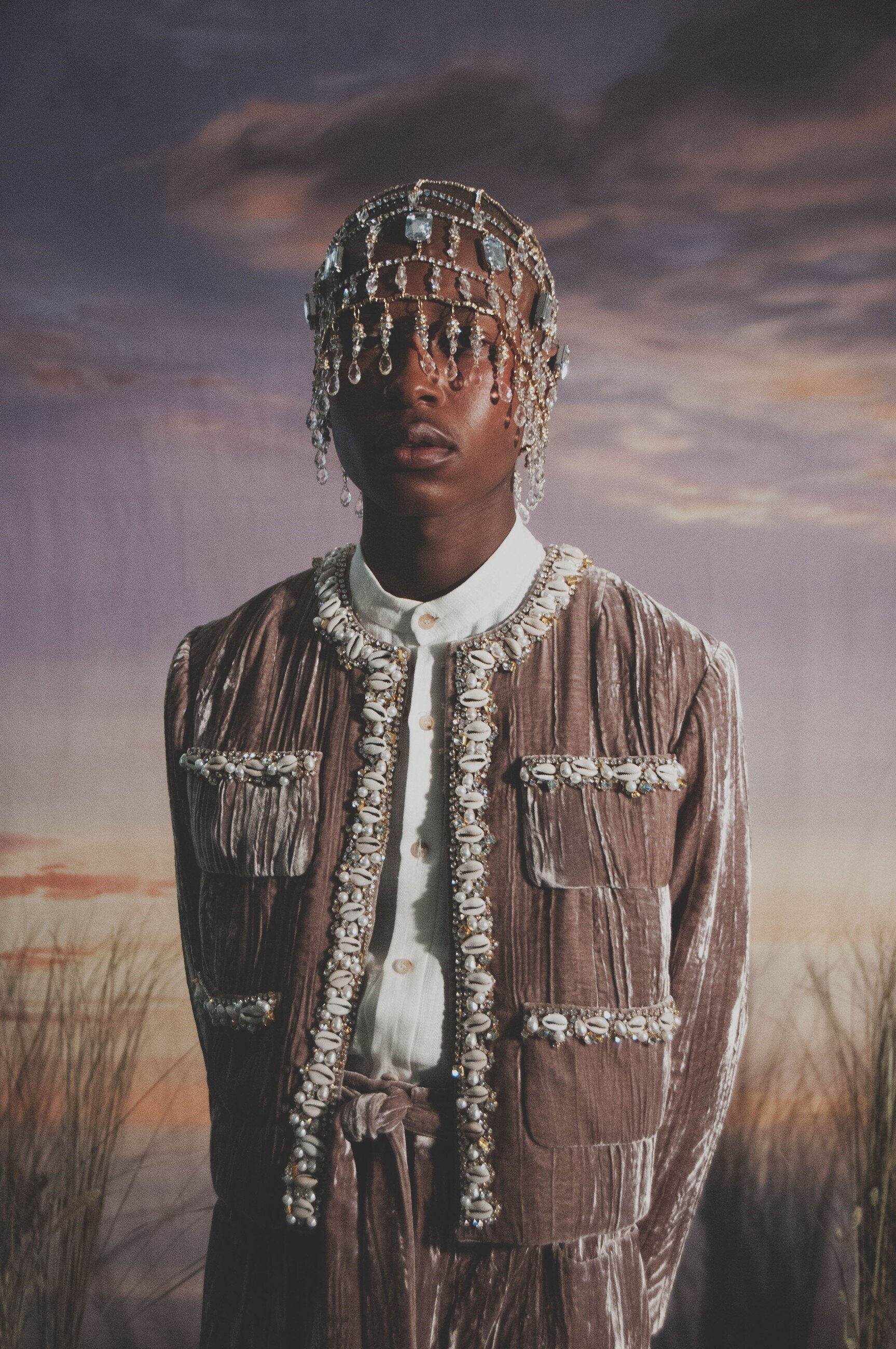
Heavily influenced by the British Afro-Caribbean music scene, Wales Bonner can be found at such places as Net-A-Porter, Barney’s, and Galeries Lafayette. It has also built up a celebrity fan base that includes Meghan Markle, who chose to wear the brand for her first official portrait with Prince Harry and her son. Having an eye on representing gentle, black male figures, Grace sought to connect history and beauty through their identities. She wanted to create a space for the unrepresented, to show that they are as complex and beautiful as others portrayed in the media. History has always been interwoven into her collections with the presence of black poetry, music, culture, and films, and expanded into creating a space for black artists and creators alike to share their art as well. Artist Lynette Yiadom-Boakye created poetry for a 2017 Wales Bonner show, and Solange Knowles was one of the performers at Grace’s event Devotional Sound.
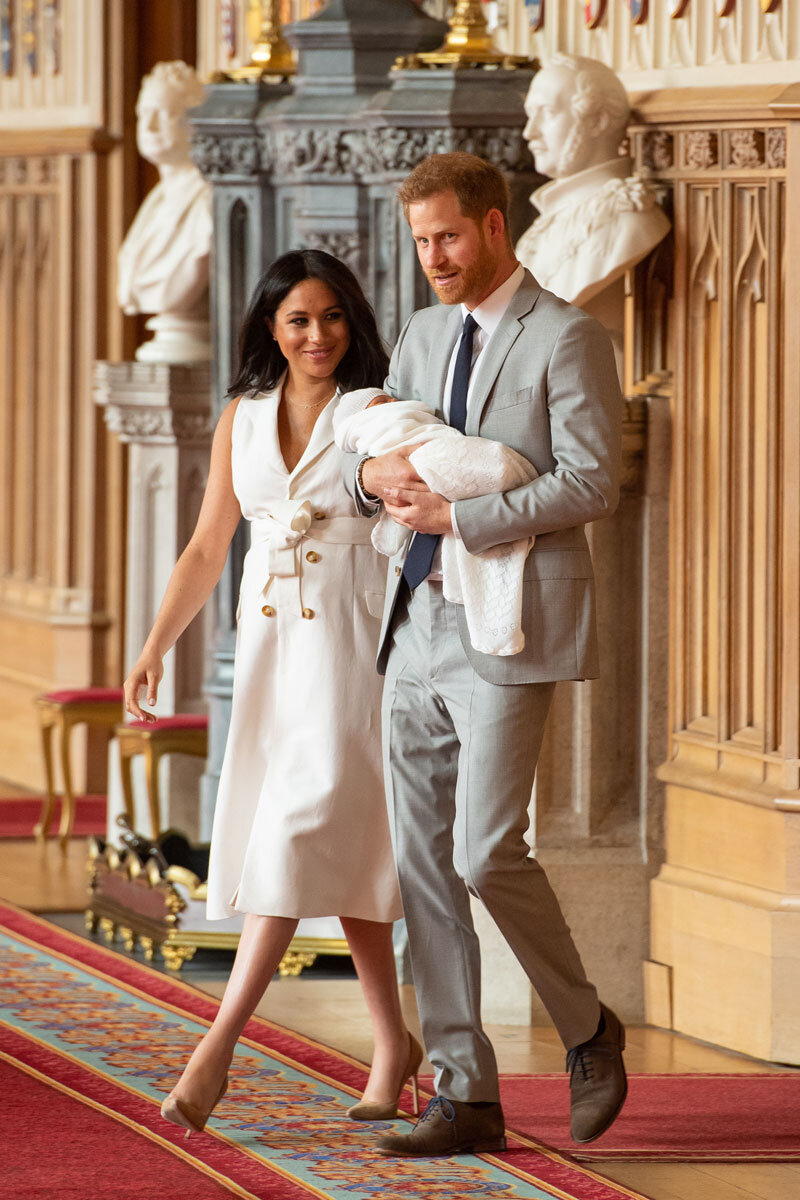
A female gaze on men and their complexities have helped Grace Wales Bonner to define what has made her brand today. She credits the people around her and the culture she consumes as to what drives her inspiration; to create a platform for those not represented.
Photo Credit: GQ, Dazed, Celebrity Style Guide
Report: Charlene Piccio
At the rise of Covid-19 many of us first questioned the timeline of fashion week and would we see the regular calendar continue - the question weighed over many of us for months! It was refreshing to see design houses and designers across the globe take advantage of the uncertainty and plow into production mode - thus my interest in Jerri Reid New York - The Black Designer based in Brooklyn New York wow’d instagram with his latest collection paying homage to the Black Is King film which debuted earlier this year in July. I was taken aback at quick of a turn round the young designer produced and released his well crafted designs reflecting some of the films most memorable moments.
Being a black gay creative for me feels liberating but at the same time there’s pressure. Pressure in needing to express yourself to a white society, that you are enough; what feels like having to explain my existence. having to explain why who I am and the art I produce is more than a hyper sexual view, but just what it is, art - expression, my expression.
Summer is here and it’s important for every woman to feel beautiful in their own skin. Support these amazing companies that offer some beautiful swimwear pieces that will leave you feeling confident and vibrant.
It's always been important to support black designers, but amid a pandemic and sociopolitical crisis, these black artists and business owners need your support now more than ever!
While people have shown concern for the rapper, others have taken the opportunity to make jokes about the incident. Within the last couple of months, the topic of how Black women are marginalized in society has become more prevalent.
The sudden worldwide shift to Digital Fashion Weeks has engendered confusion and ambivalence among designers and fashion brands, particularly in regards to the content of their promotional videos.
After witnessing the backlash from Simone Biles Vogue cover I had to sit aside and ponder: Why is it so challenging for some photographers to capture the beauty of black skin/people? Our undertones, our glow, even the texture of our hair. So, like always I went looking for methods to best capture dark skin.
This spicy blackberry and plum sauce recipe was a push for something different and will now be my go to condiment for the summer season.
Black women die at a rate three times higher than white women when giving birth. The death of Sha-Asia Washington has shown the racial disparities Black women face in childbirth.
Shoot for the Stars Aim for the Moon is the first posthumous album to reach No. 1 since 2018. Pop Smoke and XXXTentacion are two of the four hip-hop artists with posthumous No. 1s. They follow The Notorious B.I.G. and 2Pac, who each have three posthumous leaders. R.I.P to the Woo.
To be black and well can mean a lot of things, but should definitely include #Skincare #Meditation #BlackReading among many other things, daily! #BlackLivesMatter #HealthAndWellness #AmplifyBlackVoices
Ib Kamara Celebrates "Future, Community, Beauty, and Blackness" in Browns' "Family Affair"
What we wear should make us feel good, especially for our moms to be. Finding the perfect pair of jeans and tops can be tough, and for pregnant women, even harder. Read more to see some great places to shop tha
Ah, fall! The season of pumpkin spice, rustling leaves, and...refreshing your fashion game! Let's face it: While we adore our comfy sweaters and jeans, it’s the accessories that truly make or break our autumn outfits.
Accessories are a simple way to add some interest to your outfits. Whether you want to refresh your style, or just to add a pop of something extra, getting your accessories right can lift an outfit, and make you look more put-together, more stylish, or more fun.
Are you thinking about buying gifts for the special girl in your life? Whether you’re purchasing lovely presents for your friend, your partner, or your wife, we think you should definitely consider some wonderful fashionable choices. Here are some of the best possibilities that the special girl in your life is sure to love and appreciate.
2021 will be a wild ride for fashion lovers and style enthusiasts everywhere. With us still being in the middle of a pandemic and changes are happening with the way consumers shop, it will definitely give way to how differently people dress and style themselves. Here are a few trend predictions that may give way in 2021.
Fashion lovers and style enthusiasts rejoice. The Pantone’s Color of the Year for 2021 is here and not only did they announce one color but two! The two colors selected will be Ultimate Gray (PANTONE 17-5104) and Illuminating (PANTONE 13-0647) as the shades for Pantone's Color of the Year 2021. According to Teen Vogue, the last time Pantone announced two colors for color of the year was back in 2016.
Diarra Bousso’s experiences as a mathematician, artisan and former Wall Street Trader have led to the creation of Diarrablu - her lifestyle brand. Her designs showcase her culture with every detail and piece - it tells a story.
Developing your sense of style is an essential part of expressing yourself through your clothing.
The effects of a nationwide quarantine have devastated the fashion label Cushnie to the point at which its closure was made official in late October. The tragic end to one of the rare high-fashion brands in America helmed by a black woman brings into question the industry's promises to employ more racially diverse talent.
In these months of solitude, the bored masses have switched on to Netflix to help them escape the mundane feeling of the lockdown. This constant tuning in is no new feeling to teenagers, whose viewership has created an entirely new genre of melodramatic “teen” shows and movies. While I binged (and rebinged) these shows, I became increasingly interested in the patterns of dress. As a fashion zealot, I tend to fixate on styling within any form of media - I get excited by fresh perspectives in fashion. Especially when it is portrayed through a young character’s style. Sadly,
New York based-label Rowing Blazers is commemorating the style of the late Princess Diana for the Fall/Winter 2020 collection. Some of Diana’s most notable looks, as well as other influenced pieces, are featured in the 80s inspired collection.
In These Uncertain Times, Victor Glemaud is Still Hoping to Inspire People.
While the development of his spring 2021 collection has been a little more tricky—Glemaud notes he has still been managing to find inspiration in less likely corners.
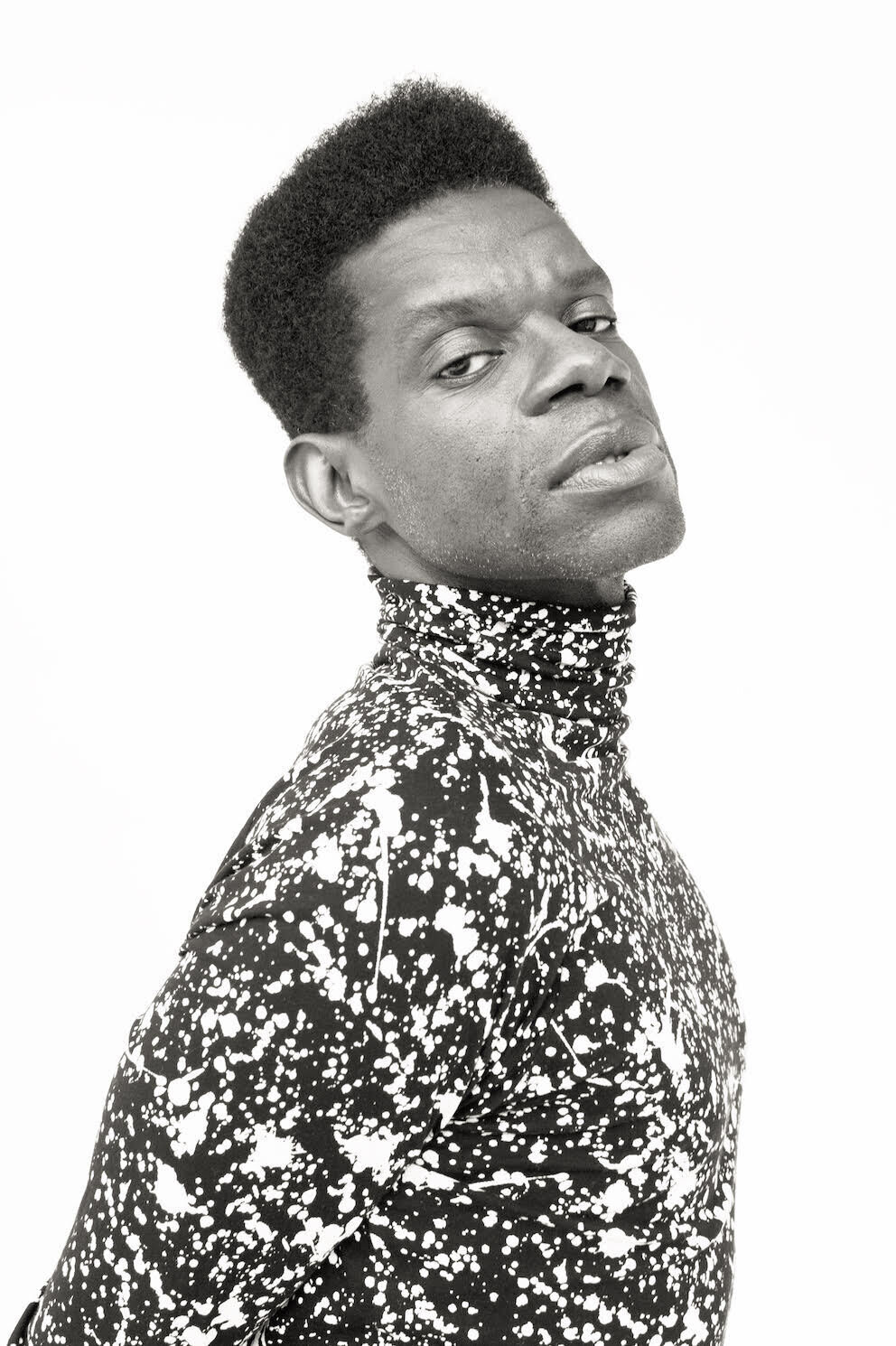
Safe to say, 2020 has been an interesting year. From COVID-19, to the unjust murders of George Floyd and other black people, most people aren't feeling that great.
Fashion designer, Victor Glemaud, has been working from his home for the past three months. Glemaud looks back amazed that his business has been able to adapt so quickly. “At the beginning, it was challenging because it was all so uncertain,” he says of the early days of lockdown. “I’ve done fittings virtually before, I’ve done sketch handoffs and line reviews virtually before, so it wasn’t about it being difficult to adapt. It was more getting used to the idea of not knowing when we would work together again, and when we would see each other again.”
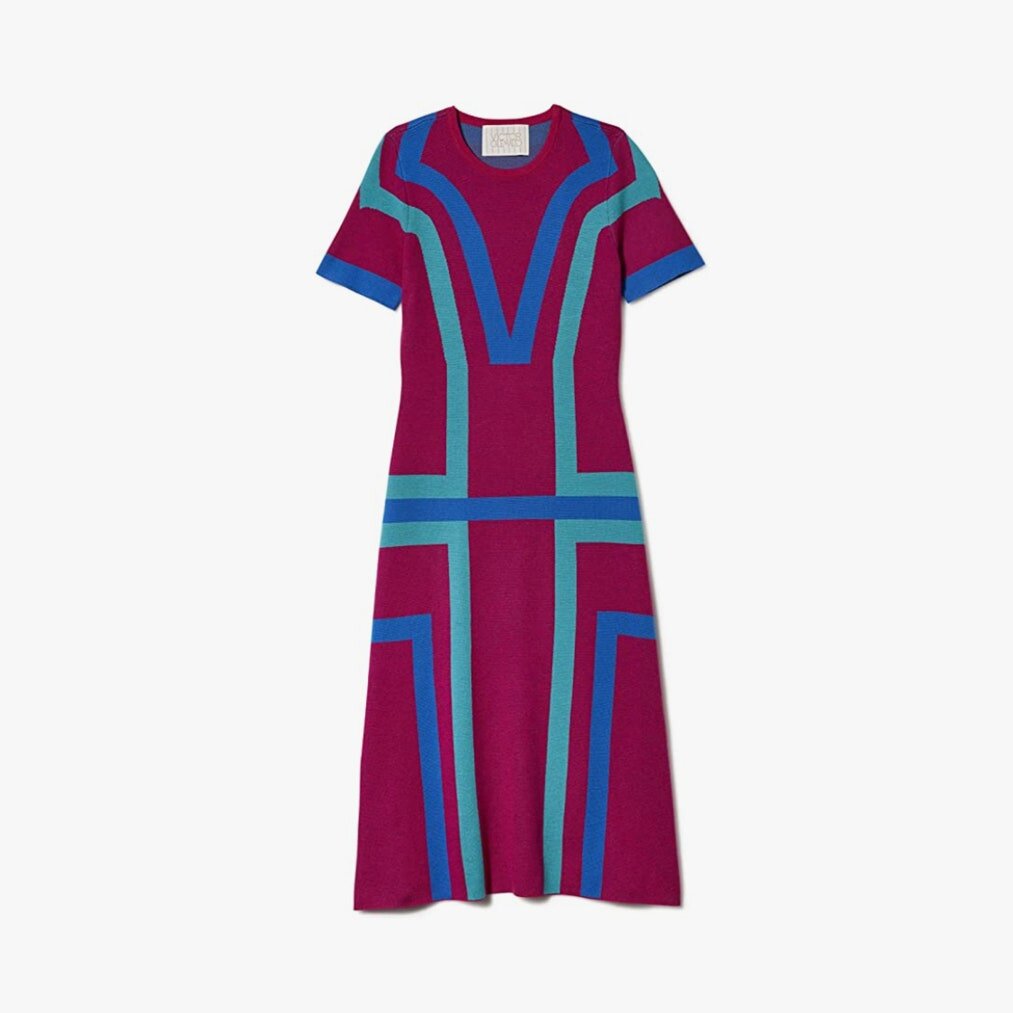
Glemaud's biggest challenges have been more on the personal end, than on the business end. With his business celebrating 15 years soon, Glemaud started his career working with Patrick Robinson in New York. Glemaud later went on to work in PR for the likes of Versace, Marc Jacobs, and Helmut Lang, before returning to consult with Robinson during his time at Paco Rabanne, then launching his own label in 2006. After rebranding with a more stripped-back approach in 2015, Glemaud began focusing primarily on the bold, brightly-colored knits that have been a resounding hit with his long-time customers. They’ve also earned him a place as a finalist for the 2017 CFDA/Vogue Fashion Fund and resulted in his first runway show back in February of this year.
While the development of his spring 2021 collection has been a little more tricky—Glemaud notes the technical intricacies of producing knitwear are more difficult to test without seeing the garments in the flesh—he has still been managing to find inspiration in less likely corners.
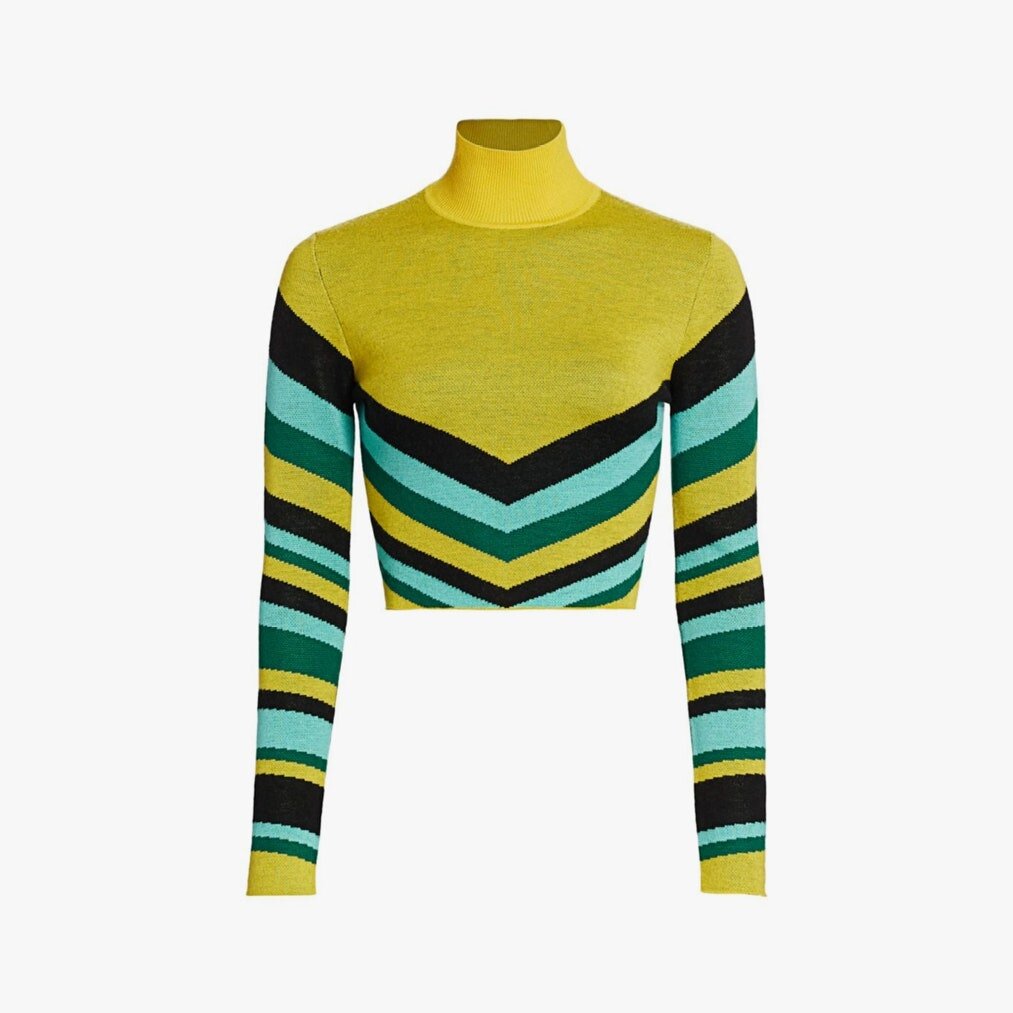
“Normally what I do is go to galleries or museums and get inspired or see so “Normally what I do is go to galleries or museums and get inspired or see something that sparks something that way. Since I can’t do that, I’ve been reading a lot more. It’s been more of a fluid process.”
When asked how the fashion industry can support black lead brands and businesses, Glemaud said, “I think it’s about having our industry truly support Black-owned businesses by paying us, by promoting us within their channels,” he continues. “Not just today or tomorrow, not just a tag here or there, but showcasing work in a meaningful way, really being true partners. Whether it’s a retailer, an editor, a stylist, a production partner. Things that are needed to actually grow a business. Things that a lot of young creatives that I’ve spoken to recently in the last two weeks have felt and have all told me they don't have access to.”
Report: Anna Bechtel
At the rise of Covid-19 many of us first questioned the timeline of fashion week and would we see the regular calendar continue - the question weighed over many of us for months! It was refreshing to see design houses and designers across the globe take advantage of the uncertainty and plow into production mode - thus my interest in Jerri Reid New York - The Black Designer based in Brooklyn New York wow’d instagram with his latest collection paying homage to the Black Is King film which debuted earlier this year in July. I was taken aback at quick of a turn round the young designer produced and released his well crafted designs reflecting some of the films most memorable moments.
Being a black gay creative for me feels liberating but at the same time there’s pressure. Pressure in needing to express yourself to a white society, that you are enough; what feels like having to explain my existence. having to explain why who I am and the art I produce is more than a hyper sexual view, but just what it is, art - expression, my expression.
Summer is here and it’s important for every woman to feel beautiful in their own skin. Support these amazing companies that offer some beautiful swimwear pieces that will leave you feeling confident and vibrant.
It's always been important to support black designers, but amid a pandemic and sociopolitical crisis, these black artists and business owners need your support now more than ever!
While people have shown concern for the rapper, others have taken the opportunity to make jokes about the incident. Within the last couple of months, the topic of how Black women are marginalized in society has become more prevalent.
The sudden worldwide shift to Digital Fashion Weeks has engendered confusion and ambivalence among designers and fashion brands, particularly in regards to the content of their promotional videos.
After witnessing the backlash from Simone Biles Vogue cover I had to sit aside and ponder: Why is it so challenging for some photographers to capture the beauty of black skin/people? Our undertones, our glow, even the texture of our hair. So, like always I went looking for methods to best capture dark skin.
This spicy blackberry and plum sauce recipe was a push for something different and will now be my go to condiment for the summer season.
Black women die at a rate three times higher than white women when giving birth. The death of Sha-Asia Washington has shown the racial disparities Black women face in childbirth.
Shoot for the Stars Aim for the Moon is the first posthumous album to reach No. 1 since 2018. Pop Smoke and XXXTentacion are two of the four hip-hop artists with posthumous No. 1s. They follow The Notorious B.I.G. and 2Pac, who each have three posthumous leaders. R.I.P to the Woo.
To be black and well can mean a lot of things, but should definitely include #Skincare #Meditation #BlackReading among many other things, daily! #BlackLivesMatter #HealthAndWellness #AmplifyBlackVoices
Ib Kamara Celebrates "Future, Community, Beauty, and Blackness" in Browns' "Family Affair"
What we wear should make us feel good, especially for our moms to be. Finding the perfect pair of jeans and tops can be tough, and for pregnant women, even harder. Read more to see some great places to shop tha
Among the many other issues surrounding diversity and inclusion within the fashion industry, it's important to acknowledge the failings of the system that produces fashion industry practitioners; the university.
Although we all rely on fast-fashion brands like H&M, Forever21 or Fashion Nova, we all might be forgetting how these brands manage to make all these garments and accessories for such affordable prices.
Ah, fall! The season of pumpkin spice, rustling leaves, and...refreshing your fashion game! Let's face it: While we adore our comfy sweaters and jeans, it’s the accessories that truly make or break our autumn outfits.
Accessories are a simple way to add some interest to your outfits. Whether you want to refresh your style, or just to add a pop of something extra, getting your accessories right can lift an outfit, and make you look more put-together, more stylish, or more fun.
Are you thinking about buying gifts for the special girl in your life? Whether you’re purchasing lovely presents for your friend, your partner, or your wife, we think you should definitely consider some wonderful fashionable choices. Here are some of the best possibilities that the special girl in your life is sure to love and appreciate.
2021 will be a wild ride for fashion lovers and style enthusiasts everywhere. With us still being in the middle of a pandemic and changes are happening with the way consumers shop, it will definitely give way to how differently people dress and style themselves. Here are a few trend predictions that may give way in 2021.
Fashion lovers and style enthusiasts rejoice. The Pantone’s Color of the Year for 2021 is here and not only did they announce one color but two! The two colors selected will be Ultimate Gray (PANTONE 17-5104) and Illuminating (PANTONE 13-0647) as the shades for Pantone's Color of the Year 2021. According to Teen Vogue, the last time Pantone announced two colors for color of the year was back in 2016.
Diarra Bousso’s experiences as a mathematician, artisan and former Wall Street Trader have led to the creation of Diarrablu - her lifestyle brand. Her designs showcase her culture with every detail and piece - it tells a story.
Developing your sense of style is an essential part of expressing yourself through your clothing.
The effects of a nationwide quarantine have devastated the fashion label Cushnie to the point at which its closure was made official in late October. The tragic end to one of the rare high-fashion brands in America helmed by a black woman brings into question the industry's promises to employ more racially diverse talent.
In these months of solitude, the bored masses have switched on to Netflix to help them escape the mundane feeling of the lockdown. This constant tuning in is no new feeling to teenagers, whose viewership has created an entirely new genre of melodramatic “teen” shows and movies. While I binged (and rebinged) these shows, I became increasingly interested in the patterns of dress. As a fashion zealot, I tend to fixate on styling within any form of media - I get excited by fresh perspectives in fashion. Especially when it is portrayed through a young character’s style. Sadly,
New York based-label Rowing Blazers is commemorating the style of the late Princess Diana for the Fall/Winter 2020 collection. Some of Diana’s most notable looks, as well as other influenced pieces, are featured in the 80s inspired collection.
Black Lives Matter: and That Includes Black Trans and Queer Lives
With the Black Lives Matter movement taking center stages, and June being Pride Month, these two causes have united to bring awareness to an underrepresented community.

With the Black Lives Matter movement taking center stages, and June being Pride Month, these two causes have united to bring awareness to an underrepresented community.
On Sunday, in Brooklyn, a peaceful protest was held to support the transgender members of the black community. It was called "Brooklyn Liberation: An Action for Black Trans Lives." Several local organizations, including The Okra Project, Marsha P. Johnson Institute, For the Gworls, G.L.I.T.S. and Black Trans Femmes in the Arts, put this event together. The protest was put together to honor the lives of black trans women who were unjustly killed, and have not received a lot of media coverage. Some of the lives honored were, Layleen Polanco, Dominique "Rem'mie" Fells, and Riah Milton. Transgender activist Raquel Willis, author Ceyenne Doroshow, and the family of Layleen Polanco, were all among the featured speakers at the rally. Protesters chanted and carried homemade signs with the phrase "Black Trans Lives Matter."
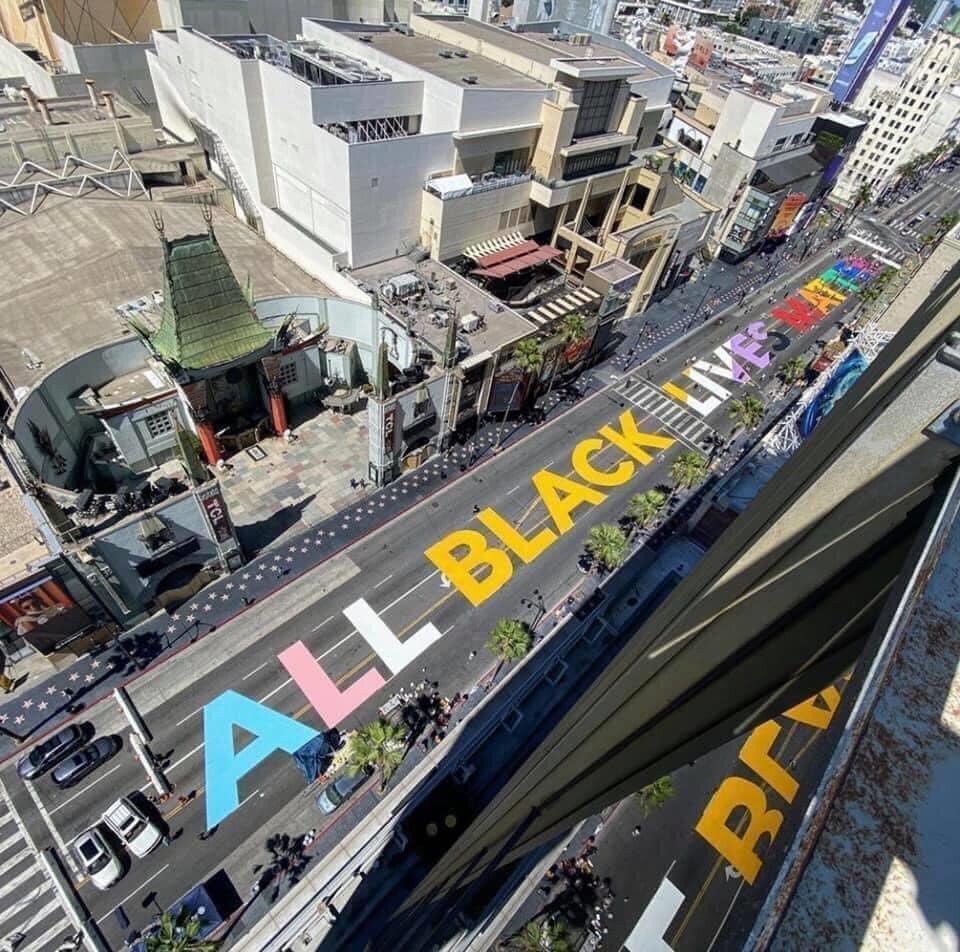
Brooklyn was not the only American city that was putting on peaceful protests and gatherings supporting black trans lives. Los Angeles decided to hold a march supporting black trans lives, in lieu of their annual Pride Parade. The day before, volunteers painted the words "All Black Lives Matter," on the street, at the intersection of Hollywood and Highland Avenue. Some of the words were painted in the colors of different pride flags, including the non-binary flag, the transgender flag, and the original rainbow pride flag. The event itself, which was organized by All Black Lives Matter Los Angeles, was not just a plea for justice but a celebration that included music, dancing and performances by queer Black artists.
Report: Anna Bechtel
At the rise of Covid-19 many of us first questioned the timeline of fashion week and would we see the regular calendar continue - the question weighed over many of us for months! It was refreshing to see design houses and designers across the globe take advantage of the uncertainty and plow into production mode - thus my interest in Jerri Reid New York - The Black Designer based in Brooklyn New York wow’d instagram with his latest collection paying homage to the Black Is King film which debuted earlier this year in July. I was taken aback at quick of a turn round the young designer produced and released his well crafted designs reflecting some of the films most memorable moments.
Being a black gay creative for me feels liberating but at the same time there’s pressure. Pressure in needing to express yourself to a white society, that you are enough; what feels like having to explain my existence. having to explain why who I am and the art I produce is more than a hyper sexual view, but just what it is, art - expression, my expression.
Summer is here and it’s important for every woman to feel beautiful in their own skin. Support these amazing companies that offer some beautiful swimwear pieces that will leave you feeling confident and vibrant.
It's always been important to support black designers, but amid a pandemic and sociopolitical crisis, these black artists and business owners need your support now more than ever!
While people have shown concern for the rapper, others have taken the opportunity to make jokes about the incident. Within the last couple of months, the topic of how Black women are marginalized in society has become more prevalent.
The sudden worldwide shift to Digital Fashion Weeks has engendered confusion and ambivalence among designers and fashion brands, particularly in regards to the content of their promotional videos.
After witnessing the backlash from Simone Biles Vogue cover I had to sit aside and ponder: Why is it so challenging for some photographers to capture the beauty of black skin/people? Our undertones, our glow, even the texture of our hair. So, like always I went looking for methods to best capture dark skin.
This spicy blackberry and plum sauce recipe was a push for something different and will now be my go to condiment for the summer season.
Black women die at a rate three times higher than white women when giving birth. The death of Sha-Asia Washington has shown the racial disparities Black women face in childbirth.
Shoot for the Stars Aim for the Moon is the first posthumous album to reach No. 1 since 2018. Pop Smoke and XXXTentacion are two of the four hip-hop artists with posthumous No. 1s. They follow The Notorious B.I.G. and 2Pac, who each have three posthumous leaders. R.I.P to the Woo.
To be black and well can mean a lot of things, but should definitely include #Skincare #Meditation #BlackReading among many other things, daily! #BlackLivesMatter #HealthAndWellness #AmplifyBlackVoices
Ib Kamara Celebrates "Future, Community, Beauty, and Blackness" in Browns' "Family Affair"
It’s Charcuterie Time: June Board
Our June Board Is Here, And It's Time To Grill!

This month the charcuterie theme of choice is grilling, in honor of all those wonderful dad’s out there who think they’re ~the grill master~. Didn’t think charcuterie could be more than just a cheese board? Well, I’m happy to prove you wrong! This easy, delicious, and in my eyes, beautiful board is everything you need to make your man of choice’s day special.
A charcuterie is worth the time and effort, just looking at my masterpiece makes me happy. I’m all about self care, so treating myself to a pretty dinner and bar worthy drink is all I need in life, and I highly recommend it. Maybe, that’s why I love charcuterie so much!
Anyway, here she is! THE June Charcuterie. It may look intimidating, but trust me it’s an easy dinner. The hardest part about it is cooking the actual dinner, plating is just fun!

The Breakdown:
You have your basics that any meat eating human will love, Chicken Skewers and Sliced Steak.
My trusty sides of choice were Roasted & Grilled Potatoes, Grilled Asparagus, Grilled Corn, and an easy Garden Salad. (As you can tell I really tried to stick to the “grill” theme!)
I even included easy appetizers too! Caprese and Bruschetta are always my favorites to work with.
And that’s it! You have your apps, mains, and sides all on one plate. It can’t get much easier than that!
The best part about charcuterie is that you can be as creative as possible. You literally can’t do it wrong, so just go for it! Even if it’s a meal for one, create an Instagram worthy dinner for yourself!
Next month I may go for a sweeter board, so stay tuned!
Photo Credits: Kaitlin Gallagher
Report: Kaitlin Gallagher
At the rise of Covid-19 many of us first questioned the timeline of fashion week and would we see the regular calendar continue - the question weighed over many of us for months! It was refreshing to see design houses and designers across the globe take advantage of the uncertainty and plow into production mode - thus my interest in Jerri Reid New York - The Black Designer based in Brooklyn New York wow’d instagram with his latest collection paying homage to the Black Is King film which debuted earlier this year in July. I was taken aback at quick of a turn round the young designer produced and released his well crafted designs reflecting some of the films most memorable moments.
Being a black gay creative for me feels liberating but at the same time there’s pressure. Pressure in needing to express yourself to a white society, that you are enough; what feels like having to explain my existence. having to explain why who I am and the art I produce is more than a hyper sexual view, but just what it is, art - expression, my expression.
Summer is here and it’s important for every woman to feel beautiful in their own skin. Support these amazing companies that offer some beautiful swimwear pieces that will leave you feeling confident and vibrant.
It's always been important to support black designers, but amid a pandemic and sociopolitical crisis, these black artists and business owners need your support now more than ever!
While people have shown concern for the rapper, others have taken the opportunity to make jokes about the incident. Within the last couple of months, the topic of how Black women are marginalized in society has become more prevalent.
The sudden worldwide shift to Digital Fashion Weeks has engendered confusion and ambivalence among designers and fashion brands, particularly in regards to the content of their promotional videos.
After witnessing the backlash from Simone Biles Vogue cover I had to sit aside and ponder: Why is it so challenging for some photographers to capture the beauty of black skin/people? Our undertones, our glow, even the texture of our hair. So, like always I went looking for methods to best capture dark skin.
This spicy blackberry and plum sauce recipe was a push for something different and will now be my go to condiment for the summer season.
Black women die at a rate three times higher than white women when giving birth. The death of Sha-Asia Washington has shown the racial disparities Black women face in childbirth.
Shoot for the Stars Aim for the Moon is the first posthumous album to reach No. 1 since 2018. Pop Smoke and XXXTentacion are two of the four hip-hop artists with posthumous No. 1s. They follow The Notorious B.I.G. and 2Pac, who each have three posthumous leaders. R.I.P to the Woo.
To be black and well can mean a lot of things, but should definitely include #Skincare #Meditation #BlackReading among many other things, daily! #BlackLivesMatter #HealthAndWellness #AmplifyBlackVoices
Ib Kamara Celebrates "Future, Community, Beauty, and Blackness" in Browns' "Family Affair"
Five Films to Watch Right Now
From Killer Mike's "Trigger Warning" to "The Gospel According to Andre," here you'll find a list of films that represent and dissect the issues impacting the black community and fashion community alike.
Today’s sociopolitical landscape has allowed for the emergence of feelings that have been long suppressed by marginalized groups across multiple sectors. Similar to the misconduct of governmental officials to black people, the fashion industry has also been largely criticized for its lack of black representation on multiple fronts. If you’re interested in learning about how these issues intersect, I highly recommend giving these films a watch.
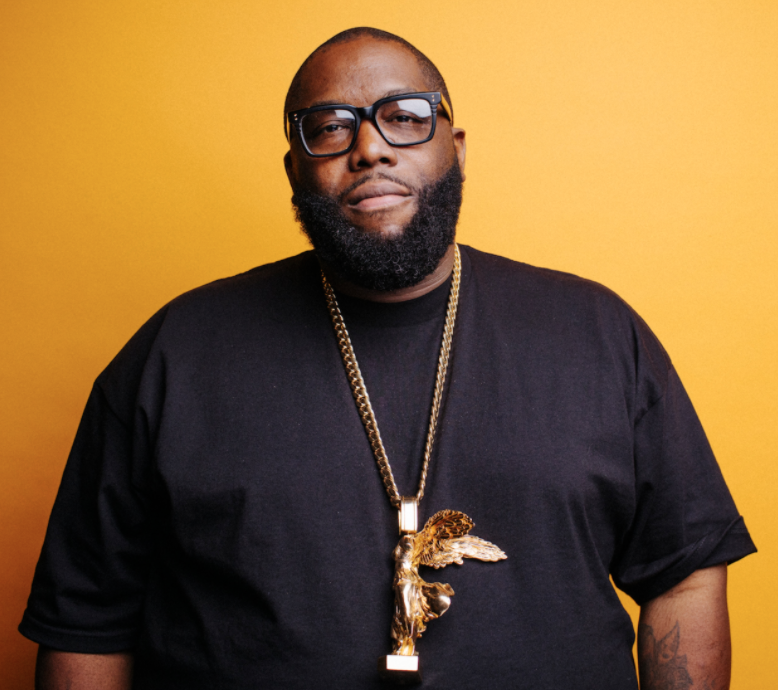
Trigger Warning with Killer Mike
In this docuseries, rapper Killer Mike embarks on a three-day challenge, in which he only consumes black-owned products. This film highlights the highly intersectional social issues involving race and class in America.
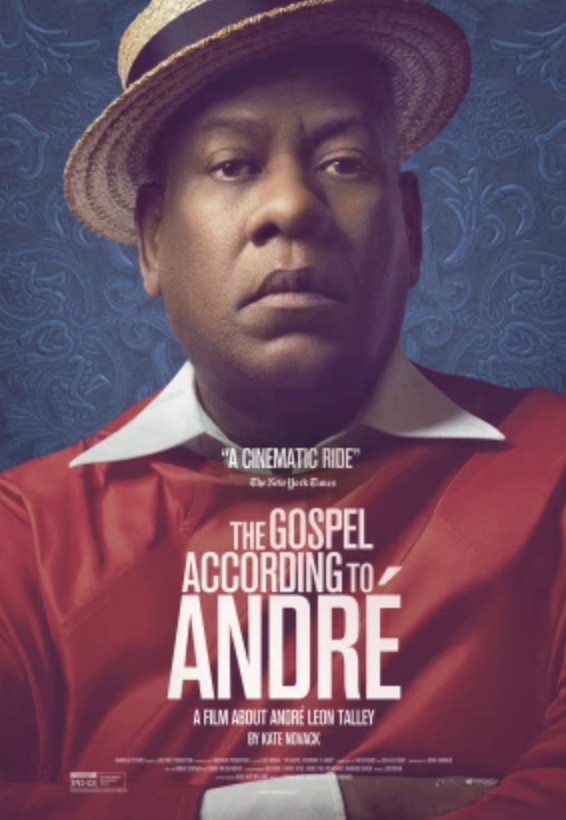
The Gospel According to Andre
One of Vogue’s former contributing editors Andre Leon Talley was one of the only black male editors to reach the level of creative director at a Conde Nast publication, until Edward Enninful. His documentary discusses the successes, challenges, and journeys that Talley navigated as a black fashion professional.
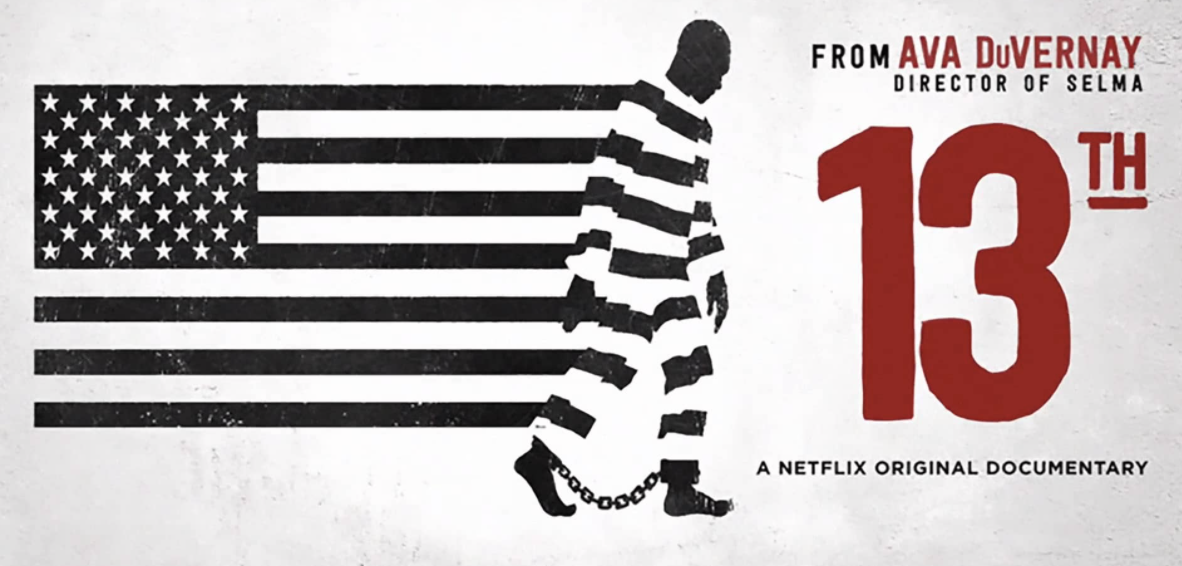
13th
This heavy yet informative documentary provides critical commentary on a multiplicity of issues affecting the black community. It provides a historical analysis of the governmental failings that have and continue to keep black people oppressed.

The September Issue
The September Issue is the single most accurate representation of the recently called out misbehavior of Anna Wintour, EIC at Vogue Magazine. The Devil Wears Prada does it justice, but this documentary allows us to see it firsthand.
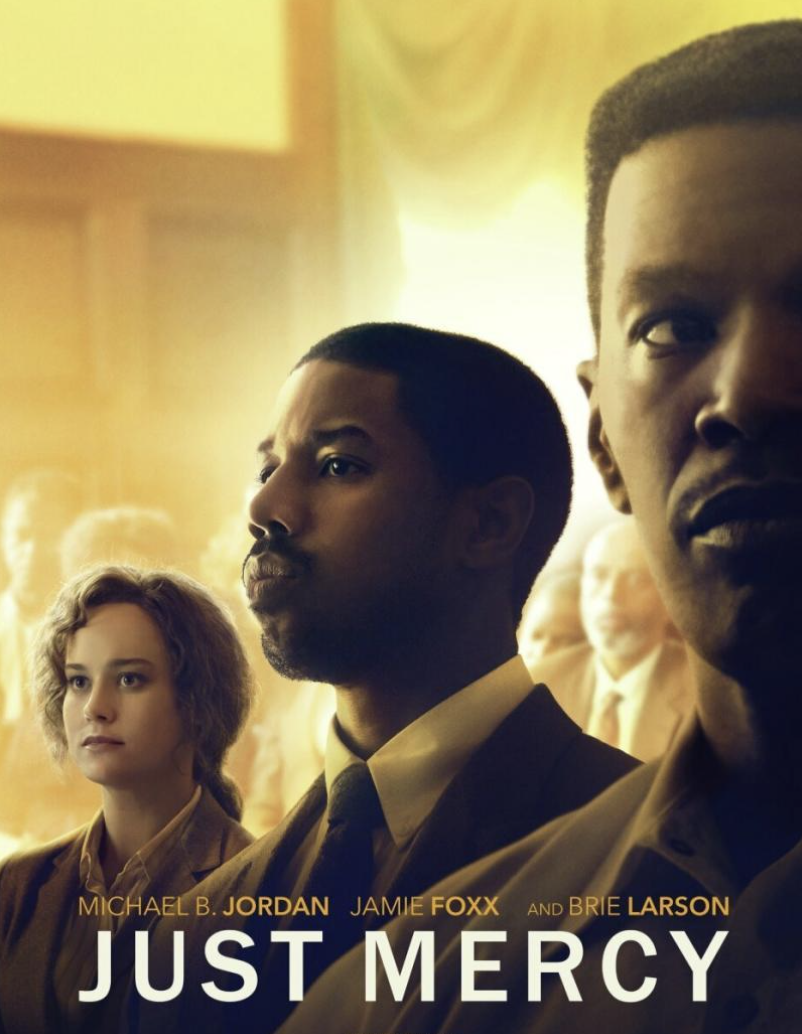
Just Mercy
If Jamie Foxx and Michael B. Jordan being the main characters isn’t enough, I’m afraid you’ll have to see it for yourself.
Photo Credits:
ALT: WWD
13th: Vimeo
Just Mercy: Film Affinity Australia
The September Issue: IMBD
Trigger Warning: Vanyaland
Report: Julian Alexander Randall
At the rise of Covid-19 many of us first questioned the timeline of fashion week and would we see the regular calendar continue - the question weighed over many of us for months! It was refreshing to see design houses and designers across the globe take advantage of the uncertainty and plow into production mode - thus my interest in Jerri Reid New York - The Black Designer based in Brooklyn New York wow’d instagram with his latest collection paying homage to the Black Is King film which debuted earlier this year in July. I was taken aback at quick of a turn round the young designer produced and released his well crafted designs reflecting some of the films most memorable moments.
Being a black gay creative for me feels liberating but at the same time there’s pressure. Pressure in needing to express yourself to a white society, that you are enough; what feels like having to explain my existence. having to explain why who I am and the art I produce is more than a hyper sexual view, but just what it is, art - expression, my expression.
Summer is here and it’s important for every woman to feel beautiful in their own skin. Support these amazing companies that offer some beautiful swimwear pieces that will leave you feeling confident and vibrant.
It's always been important to support black designers, but amid a pandemic and sociopolitical crisis, these black artists and business owners need your support now more than ever!
While people have shown concern for the rapper, others have taken the opportunity to make jokes about the incident. Within the last couple of months, the topic of how Black women are marginalized in society has become more prevalent.
The sudden worldwide shift to Digital Fashion Weeks has engendered confusion and ambivalence among designers and fashion brands, particularly in regards to the content of their promotional videos.
After witnessing the backlash from Simone Biles Vogue cover I had to sit aside and ponder: Why is it so challenging for some photographers to capture the beauty of black skin/people? Our undertones, our glow, even the texture of our hair. So, like always I went looking for methods to best capture dark skin.
This spicy blackberry and plum sauce recipe was a push for something different and will now be my go to condiment for the summer season.
Black women die at a rate three times higher than white women when giving birth. The death of Sha-Asia Washington has shown the racial disparities Black women face in childbirth.
Shoot for the Stars Aim for the Moon is the first posthumous album to reach No. 1 since 2018. Pop Smoke and XXXTentacion are two of the four hip-hop artists with posthumous No. 1s. They follow The Notorious B.I.G. and 2Pac, who each have three posthumous leaders. R.I.P to the Woo.
To be black and well can mean a lot of things, but should definitely include #Skincare #Meditation #BlackReading among many other things, daily! #BlackLivesMatter #HealthAndWellness #AmplifyBlackVoices
Ib Kamara Celebrates "Future, Community, Beauty, and Blackness" in Browns' "Family Affair"
What we wear should make us feel good, especially for our moms to be. Finding the perfect pair of jeans and tops can be tough, and for pregnant women, even harder. Read more to see some great places to shop tha
Among the many other issues surrounding diversity and inclusion within the fashion industry, it's important to acknowledge the failings of the system that produces fashion industry practitioners; the university.
Although we all rely on fast-fashion brands like H&M, Forever21 or Fashion Nova, we all might be forgetting how these brands manage to make all these garments and accessories for such affordable prices.
Going back to “normal” is a problem when society is on the brink of a revolution. Social media has made it easier for people to forget about the movements and protests going on outside their front door.
The truth is that we do live in a modern age, and if you are a woman who wants to start a business in a traditionally male field, there is no reason why you shouldn't. And in fact, by breaking the mold and stepping out of your comfort zone, you can much more easily make a name for yourself.
At the rise of Covid-19 many of us first questioned the timeline of fashion week and would we see the regular calendar continue - the question weighed over many of us for months! It was refreshing to see design houses and designers across the globe take advantage of the uncertainty and plow into production mode - thus my interest in Jerri Reid New York - The Black Designer based in Brooklyn New York wow’d instagram with his latest collection paying homage to the Black Is King film which debuted earlier this year in July. I was taken aback at quick of a turn round the young designer produced and released his well crafted designs reflecting some of the films most memorable moments.
A lot of us are dealing with loss in isolation. The ongoing pandemic has changed how we interact in every facet of life, including how we experience the death of those close to us.
So, there is no one blanket solution for the bulk and solid industry. But, you can do these things to bolster your economic recovery.
The fashion industry appears to be delivering on their promise of supporting black creatives with such emerging programs as the Black in Fashion Council and the Kelly Initiative. The most recent of these efforts is RAISE Fashion, a group dedicated to providing free mentorships to black fashion designers and entrepreneurs.
Pose tells the story of LGBTQ ballroom culture in New York City during the late 1980s and early 1990s and has thus been applauded for being a television show with prevalent trans actors. A key player in bringing this historical scene to life is Billy Porter, who portrays the character Pray Tell.
In the midst of this terrible pandemic, something amazing has come. Black content creators have continued to be on the rise. It is always important to be able to have representation and voices that you can relate to, especially in today’s climate. Black creators have reached a new level of creativity large in part to the elevation of the podcasting industry. We as content creators have taken over the podcasting platforms. With that being said we decided to create a list of some of our go-to podcasts that we think you would truly enjoy.
Calls for justice intensifies as Breonna Taylor’s killers remain free. Breonna Taylor’s story and the push for her killers to be behind bars was once an important topic on social media, but as her killers remain free and charges have been dropped people have seemed to loose sight on the bigger picture. Whether its signing petitions, voting in November or reaching out to politicians we must not forget about Breonna Taylor because she needs justice and so does her family. Let’s keep pushing for change and not forget about what’s more important in today’s world even if we feel like progress isn’t being made right away. As long as we continue to fight, we will see change.
Ariana Grande and the Issue of Fetishized Racial Ambiguity
The concept of “racial ambiguity” disconnects people from their identity and culture. Celebrities who capitalise on this only serve to worsen the problem.
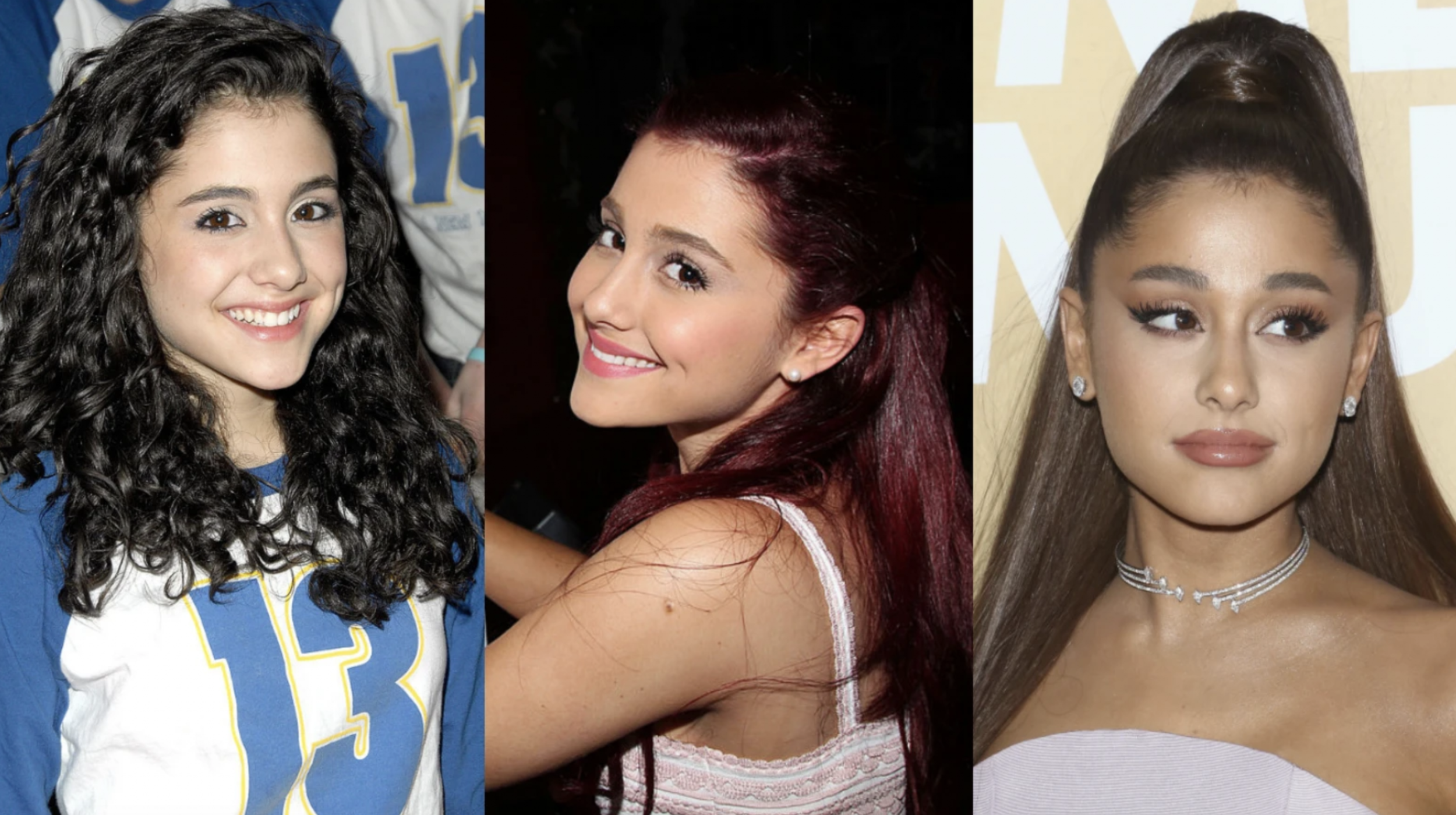
When I was in high school, a beauty industry insider told me that I should consider becoming a model because I'm “ethnically ambiguous”. I have never been a stranger to comments like this; most people either try to guess what country my parents are from or decide to directly ask me out of their own intense curiosity. I have been labeled as Latinx. I have been assumed to be from the Mediterranean. I have been met with shock when I offer up my Asian roots on a platter of explanations. More times than not, I have been asked "are you sure you're Asian?"
The memory of this encounter resurfaced for me when a friend turned to me and stated, “wait, I thought Ariana Grande was Latinx”. I refuted, explaining that the pop star is an Italian-American white woman with a penchant for appropriating black culture. My friend turned to their brother to ask if he knew she was white, only for him to exclaim surprise as well.
Alongside the memory, I also felt an old bubble of bitterness arise in me. What had struck me most about my exchange with that woman was the blatant fetishization of my skin for media consumption. When I had asked the woman what she meant by “ethnically ambiguous”, she explained to me that I was marketable because I appeared as everything and yet nothing at the same time. In her eyes, my skin was malleable at the hands of the masses; I was to toss aside my roots in order to be valuable. It was solely this lack of perceivable identity that placed a sudden and weighty worth on my shoulders.
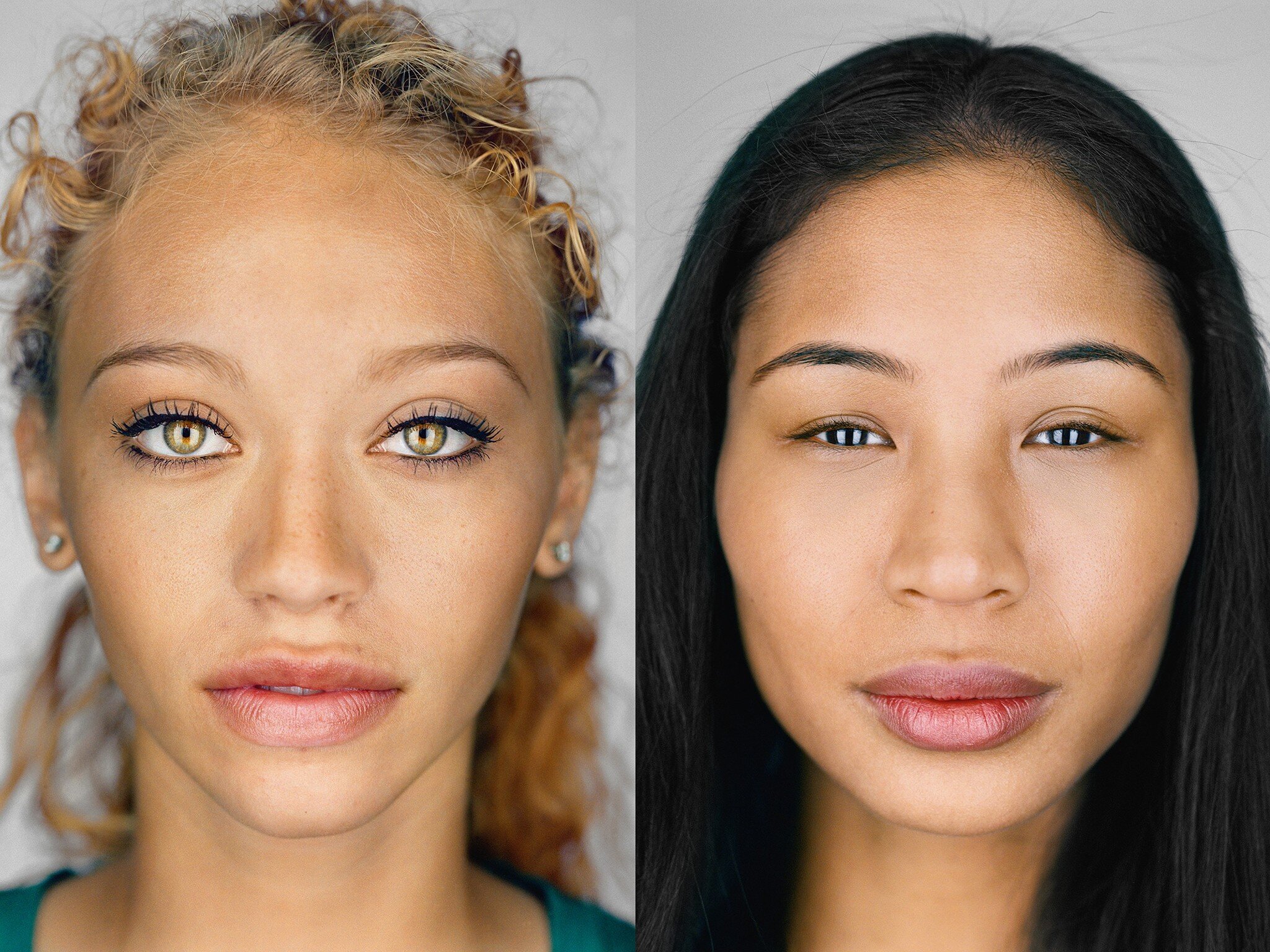
Ariana Grande’s image does nothing to aid the struggles of those with features that her fellow white onlookers cannot identify. She not only appropriates black culture but tans to the point of appearing something, anything, other than white. This appeal that she caters to, the decolouring of music made largely by and for people of colour, stands at the same point that I was told to model on. She capitalises on a false identity; I was told to capitalise on my supposed lack of identity.
Representation is something that matters. There is not one image, one kind of face, behind any race. I am Southeast Asian and it is something I am truly proud of. Just because I don’t look like what people assume to be Asian does not mean that I am not. I implore those out there who have faced similar struggles with the question of identity to not let others’ opinions define you. You are who you are. Embrace it fully!
Photo Credit 1: https://www.vice.com/en_us/article/mb8pan/ariana-grandes-wax-figure-is-her-minus-pretending-to-be-black
Photo Credit 2: https://www.nationalgeographic.com/photography/proof/2013/09/17/visualizing-change/
Report: Nicolette Schneiderman
At the rise of Covid-19 many of us first questioned the timeline of fashion week and would we see the regular calendar continue - the question weighed over many of us for months! It was refreshing to see design houses and designers across the globe take advantage of the uncertainty and plow into production mode - thus my interest in Jerri Reid New York - The Black Designer based in Brooklyn New York wow’d instagram with his latest collection paying homage to the Black Is King film which debuted earlier this year in July. I was taken aback at quick of a turn round the young designer produced and released his well crafted designs reflecting some of the films most memorable moments.
Being a black gay creative for me feels liberating but at the same time there’s pressure. Pressure in needing to express yourself to a white society, that you are enough; what feels like having to explain my existence. having to explain why who I am and the art I produce is more than a hyper sexual view, but just what it is, art - expression, my expression.
Summer is here and it’s important for every woman to feel beautiful in their own skin. Support these amazing companies that offer some beautiful swimwear pieces that will leave you feeling confident and vibrant.
It's always been important to support black designers, but amid a pandemic and sociopolitical crisis, these black artists and business owners need your support now more than ever!
While people have shown concern for the rapper, others have taken the opportunity to make jokes about the incident. Within the last couple of months, the topic of how Black women are marginalized in society has become more prevalent.
The sudden worldwide shift to Digital Fashion Weeks has engendered confusion and ambivalence among designers and fashion brands, particularly in regards to the content of their promotional videos.
After witnessing the backlash from Simone Biles Vogue cover I had to sit aside and ponder: Why is it so challenging for some photographers to capture the beauty of black skin/people? Our undertones, our glow, even the texture of our hair. So, like always I went looking for methods to best capture dark skin.
This spicy blackberry and plum sauce recipe was a push for something different and will now be my go to condiment for the summer season.
Black women die at a rate three times higher than white women when giving birth. The death of Sha-Asia Washington has shown the racial disparities Black women face in childbirth.
Aurora James Calls for Retailers to Support Black Owned Businesses Long Term
“You Want to Be an Ally? This Is What I’m Asking For.”
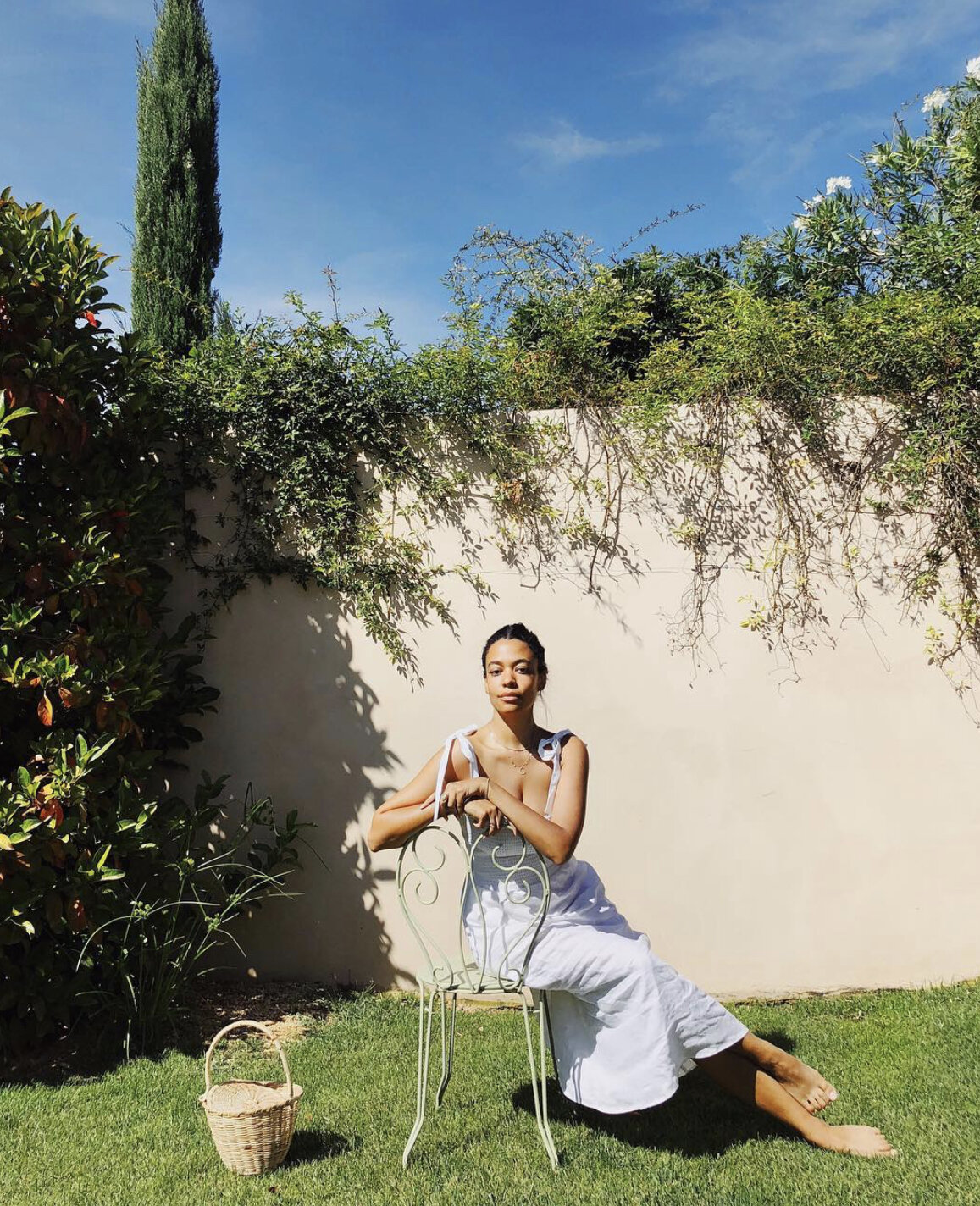
Global outrage in response to the murders of George Floyd, Breonna Taylor, and countless other Black individuals has called attention to the need for reform not only within law enforcement but in retail and the fashion industry as well. Over the past few weeks, we’ve seen fashion and beauty companies pledging their allegiance to the Black community through monetary donations to anti-racism organizations or by using their platforms to promote Black creators but is this sufficient? Aurora James, the founder of sustainable accessories brand Brother Vellies, has stepped forward and proposed a plan that would enable retailers to support Black businesses not just now but long-term. In an Instagram post on May 29th, she called on Whole Foods, Target, MedMen, Walmart, Saks, Sephora, Net-A-Porter, Barnes and Noble, and Home Depot and asked that they would commit to purchasing 15% of their products from Black-owned businesses. What is most admirable about this call to action is it’s blunt nature. James directly told these retailers “So many of your stores are set up in Black communities… We represent 15% of the population and we need to represent 15% of your shelf space.” She continued highlighting the substantial positive affects this pledge could have saying that “Investors for the very first time will start actively seeking [black businesses] out. Small businesses can turn into bigger ones. Real investment will start happening in Black businesses which will subsequently be paid forward into our black communities.” In addition to her Instagram post, Aurora launched a website https://www.15percentpledge.org and 501 (c)(3). Thus far, Sephora has been the only retailer of those tagged in the initial post to commit to the 15% pledge which has many wondering if the others will follow. Still, according to James “thousands of people” have signed the pledge since it began. Individuals who would like to sign the petition can do so online at https://www.15percentpledge.org or by texting “PLEDGE” to 917-540-8148. As Aurora said herself “You want to be an ally? This is what I’m asking for.”
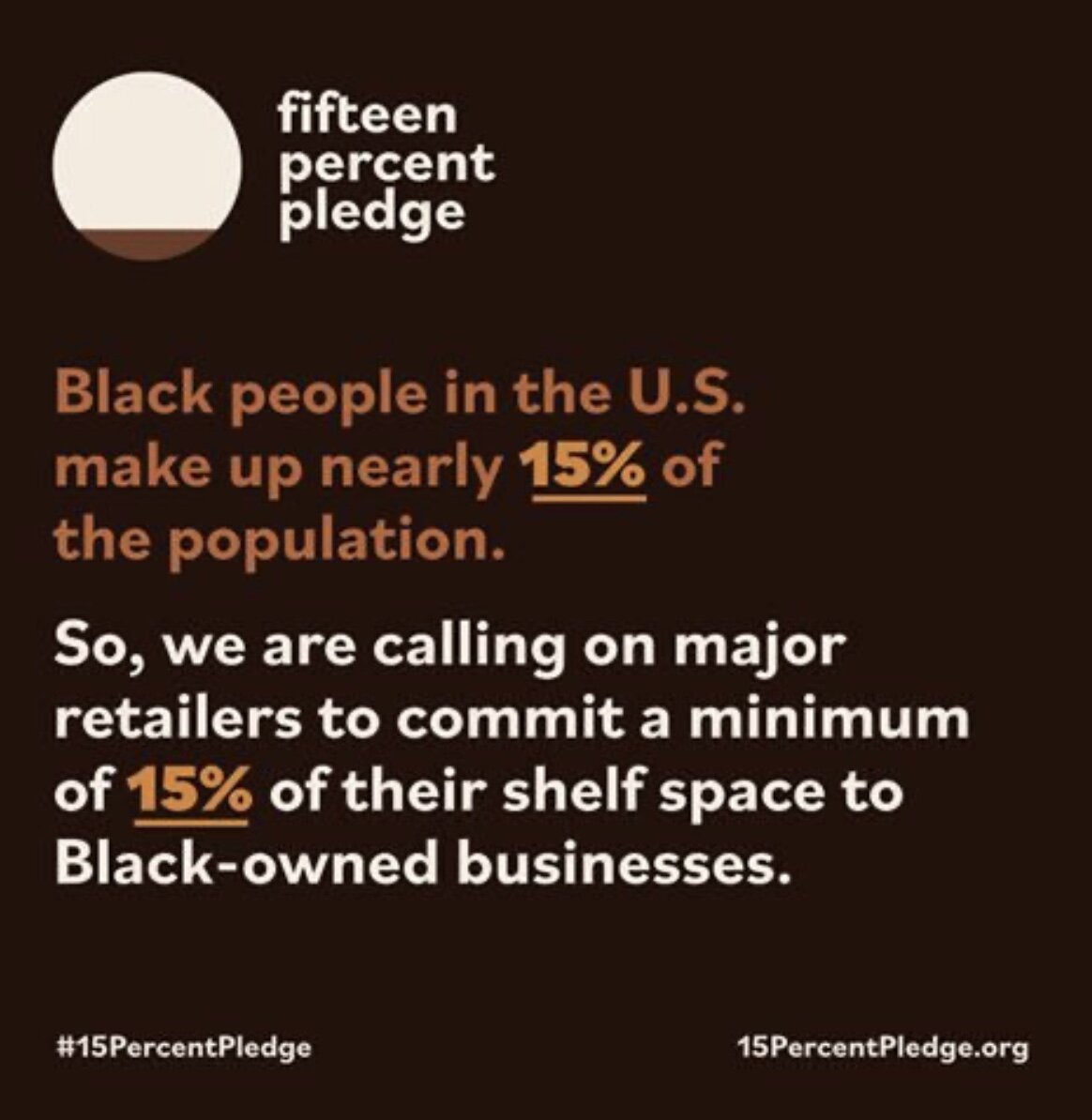
Photo Credits: @aurorajames @15percentpledge
Report: Corine Gauthier
At the rise of Covid-19 many of us first questioned the timeline of fashion week and would we see the regular calendar continue - the question weighed over many of us for months! It was refreshing to see design houses and designers across the globe take advantage of the uncertainty and plow into production mode - thus my interest in Jerri Reid New York - The Black Designer based in Brooklyn New York wow’d instagram with his latest collection paying homage to the Black Is King film which debuted earlier this year in July. I was taken aback at quick of a turn round the young designer produced and released his well crafted designs reflecting some of the films most memorable moments.
Being a black gay creative for me feels liberating but at the same time there’s pressure. Pressure in needing to express yourself to a white society, that you are enough; what feels like having to explain my existence. having to explain why who I am and the art I produce is more than a hyper sexual view, but just what it is, art - expression, my expression.
Summer is here and it’s important for every woman to feel beautiful in their own skin. Support these amazing companies that offer some beautiful swimwear pieces that will leave you feeling confident and vibrant.
It's always been important to support black designers, but amid a pandemic and sociopolitical crisis, these black artists and business owners need your support now more than ever!
While people have shown concern for the rapper, others have taken the opportunity to make jokes about the incident. Within the last couple of months, the topic of how Black women are marginalized in society has become more prevalent.
The sudden worldwide shift to Digital Fashion Weeks has engendered confusion and ambivalence among designers and fashion brands, particularly in regards to the content of their promotional videos.
After witnessing the backlash from Simone Biles Vogue cover I had to sit aside and ponder: Why is it so challenging for some photographers to capture the beauty of black skin/people? Our undertones, our glow, even the texture of our hair. So, like always I went looking for methods to best capture dark skin.
This spicy blackberry and plum sauce recipe was a push for something different and will now be my go to condiment for the summer season.
Black women die at a rate three times higher than white women when giving birth. The death of Sha-Asia Washington has shown the racial disparities Black women face in childbirth.
Shoot for the Stars Aim for the Moon is the first posthumous album to reach No. 1 since 2018. Pop Smoke and XXXTentacion are two of the four hip-hop artists with posthumous No. 1s. They follow The Notorious B.I.G. and 2Pac, who each have three posthumous leaders. R.I.P to the Woo.
12 Luxury Black-Owned Fashion Businesses To Support
Now more than ever we need to protect and support our Black Owned Businesses.
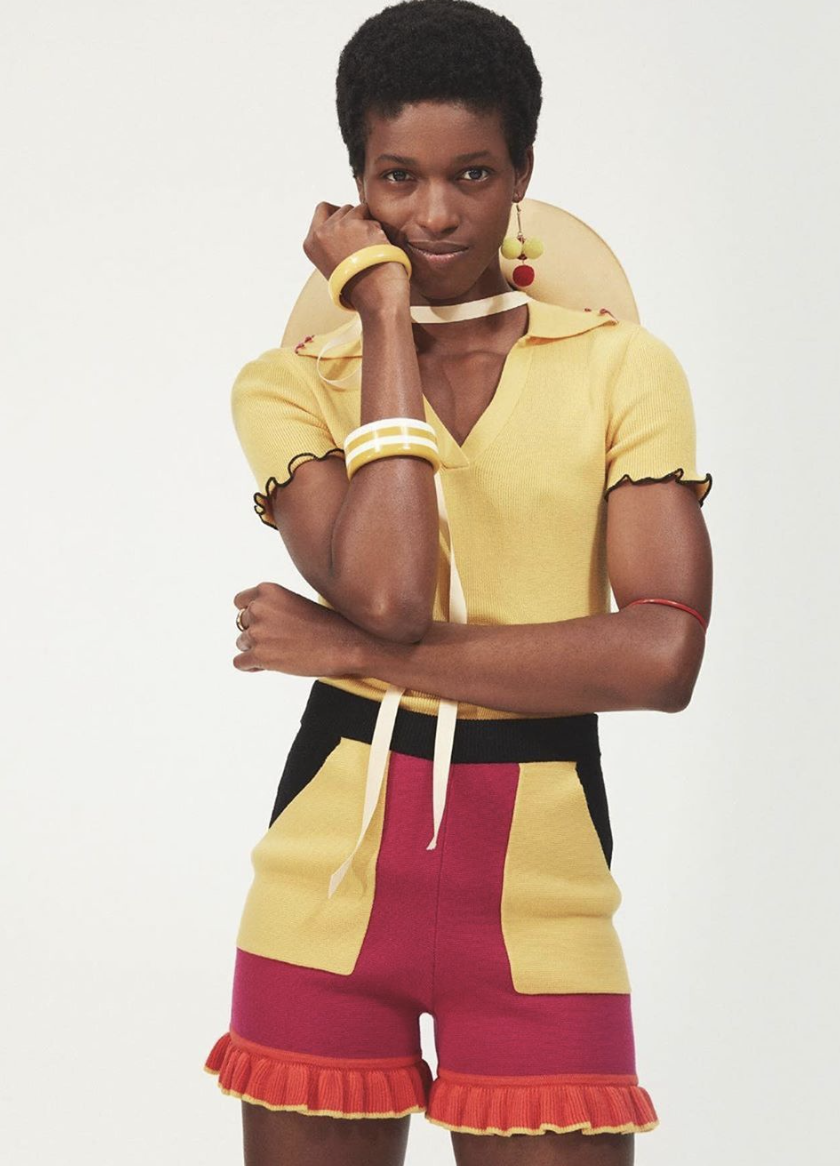
For all you fashion lovers who would like to get involved with the Black Lives Movement, here is your chance. Now more than ever we need to protect and support our Black Owned Businesses. I have compiled a list of clothing brands that you should definitely take a look at. I have provided their Instagrams and websites for easy access:
Victor glemaud
Shop lovevera
Fenoel
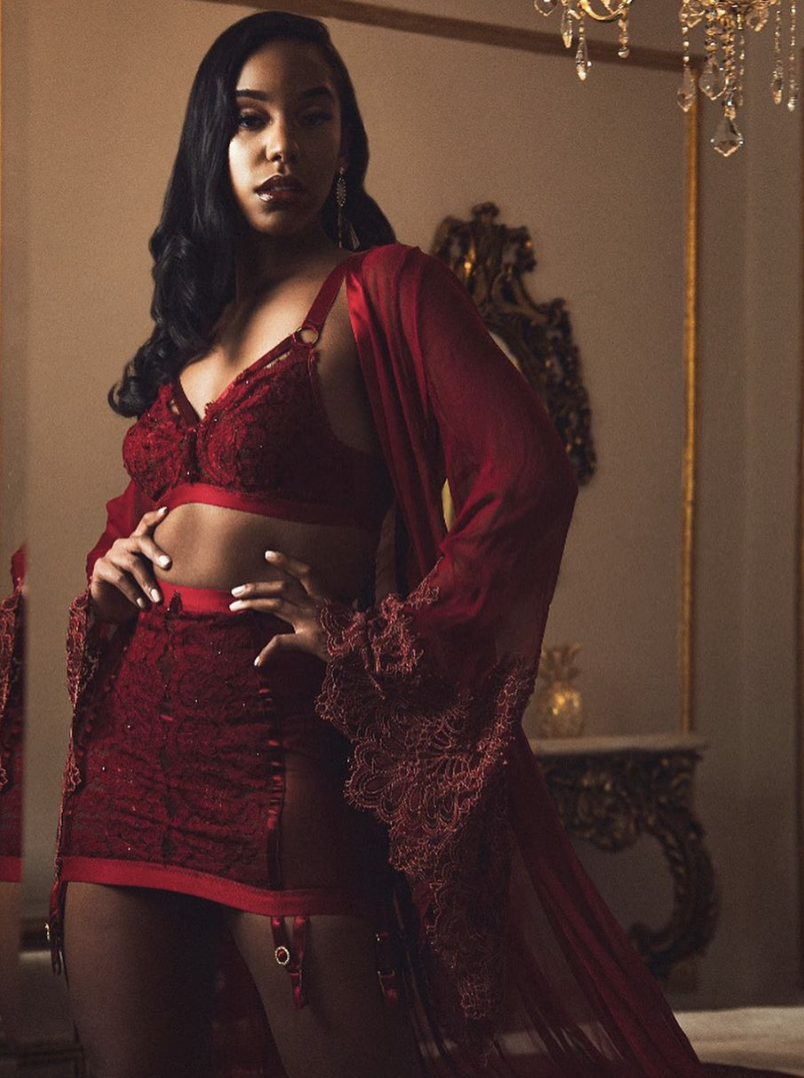
DORSHELLE GUILLAUME LLC
Pyer Moss
Hanifa
Martine Rose

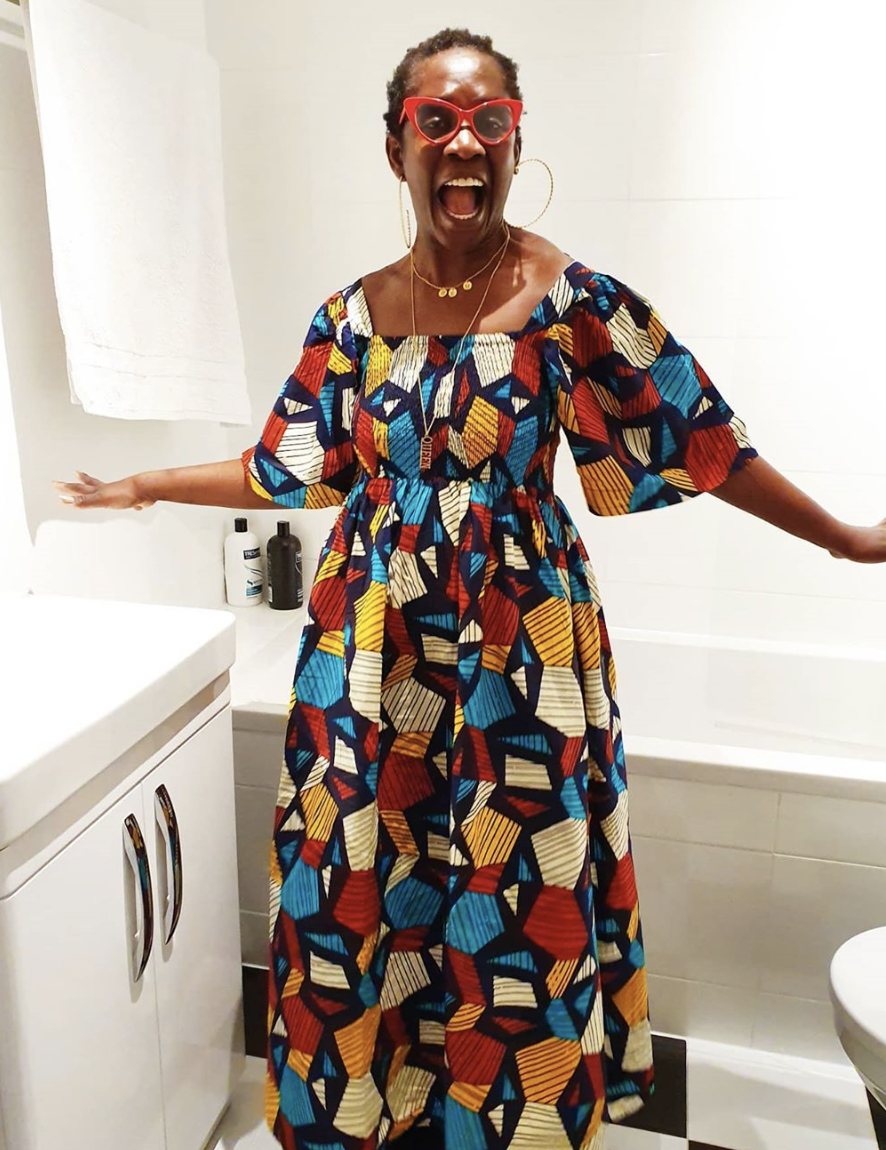
Kemi Telford
Chelsea Bravo
Mateo New York
There are countless amounts of Black-Owned Businesses; however, these are my favorite ones so far. They are a combination of colorful, fun and incredibly chic. I love everything about these brands and what they represent. I have a feeling you all will too.
*Photo credits to instagrams @Glemaud, @asata.maise, @kemitelford, @dorshelleguillaume,
Report: Anna Levitus
At the rise of Covid-19 many of us first questioned the timeline of fashion week and would we see the regular calendar continue - the question weighed over many of us for months! It was refreshing to see design houses and designers across the globe take advantage of the uncertainty and plow into production mode - thus my interest in Jerri Reid New York - The Black Designer based in Brooklyn New York wow’d instagram with his latest collection paying homage to the Black Is King film which debuted earlier this year in July. I was taken aback at quick of a turn round the young designer produced and released his well crafted designs reflecting some of the films most memorable moments.
Being a black gay creative for me feels liberating but at the same time there’s pressure. Pressure in needing to express yourself to a white society, that you are enough; what feels like having to explain my existence. having to explain why who I am and the art I produce is more than a hyper sexual view, but just what it is, art - expression, my expression.
Summer is here and it’s important for every woman to feel beautiful in their own skin. Support these amazing companies that offer some beautiful swimwear pieces that will leave you feeling confident and vibrant.
It's always been important to support black designers, but amid a pandemic and sociopolitical crisis, these black artists and business owners need your support now more than ever!
While people have shown concern for the rapper, others have taken the opportunity to make jokes about the incident. Within the last couple of months, the topic of how Black women are marginalized in society has become more prevalent.
The sudden worldwide shift to Digital Fashion Weeks has engendered confusion and ambivalence among designers and fashion brands, particularly in regards to the content of their promotional videos.
After witnessing the backlash from Simone Biles Vogue cover I had to sit aside and ponder: Why is it so challenging for some photographers to capture the beauty of black skin/people? Our undertones, our glow, even the texture of our hair. So, like always I went looking for methods to best capture dark skin.
This spicy blackberry and plum sauce recipe was a push for something different and will now be my go to condiment for the summer season.
Black women die at a rate three times higher than white women when giving birth. The death of Sha-Asia Washington has shown the racial disparities Black women face in childbirth.
Shoot for the Stars Aim for the Moon is the first posthumous album to reach No. 1 since 2018. Pop Smoke and XXXTentacion are two of the four hip-hop artists with posthumous No. 1s. They follow The Notorious B.I.G. and 2Pac, who each have three posthumous leaders. R.I.P to the Woo.
To be black and well can mean a lot of things, but should definitely include #Skincare #Meditation #BlackReading among many other things, daily! #BlackLivesMatter #HealthAndWellness #AmplifyBlackVoices
Ib Kamara Celebrates "Future, Community, Beauty, and Blackness" in Browns' "Family Affair"
What we wear should make us feel good, especially for our moms to be. Finding the perfect pair of jeans and tops can be tough, and for pregnant women, even harder. Read more to see some great places to shop tha
Among the many other issues surrounding diversity and inclusion within the fashion industry, it's important to acknowledge the failings of the system that produces fashion industry practitioners; the university.
Although we all rely on fast-fashion brands like H&M, Forever21 or Fashion Nova, we all might be forgetting how these brands manage to make all these garments and accessories for such affordable prices.
Ah, fall! The season of pumpkin spice, rustling leaves, and...refreshing your fashion game! Let's face it: While we adore our comfy sweaters and jeans, it’s the accessories that truly make or break our autumn outfits.
Accessories are a simple way to add some interest to your outfits. Whether you want to refresh your style, or just to add a pop of something extra, getting your accessories right can lift an outfit, and make you look more put-together, more stylish, or more fun.
Are you thinking about buying gifts for the special girl in your life? Whether you’re purchasing lovely presents for your friend, your partner, or your wife, we think you should definitely consider some wonderful fashionable choices. Here are some of the best possibilities that the special girl in your life is sure to love and appreciate.
2021 will be a wild ride for fashion lovers and style enthusiasts everywhere. With us still being in the middle of a pandemic and changes are happening with the way consumers shop, it will definitely give way to how differently people dress and style themselves. Here are a few trend predictions that may give way in 2021.
Fashion lovers and style enthusiasts rejoice. The Pantone’s Color of the Year for 2021 is here and not only did they announce one color but two! The two colors selected will be Ultimate Gray (PANTONE 17-5104) and Illuminating (PANTONE 13-0647) as the shades for Pantone's Color of the Year 2021. According to Teen Vogue, the last time Pantone announced two colors for color of the year was back in 2016.
Diarra Bousso’s experiences as a mathematician, artisan and former Wall Street Trader have led to the creation of Diarrablu - her lifestyle brand. Her designs showcase her culture with every detail and piece - it tells a story.
Developing your sense of style is an essential part of expressing yourself through your clothing.
The effects of a nationwide quarantine have devastated the fashion label Cushnie to the point at which its closure was made official in late October. The tragic end to one of the rare high-fashion brands in America helmed by a black woman brings into question the industry's promises to employ more racially diverse talent.
In these months of solitude, the bored masses have switched on to Netflix to help them escape the mundane feeling of the lockdown. This constant tuning in is no new feeling to teenagers, whose viewership has created an entirely new genre of melodramatic “teen” shows and movies. While I binged (and rebinged) these shows, I became increasingly interested in the patterns of dress. As a fashion zealot, I tend to fixate on styling within any form of media - I get excited by fresh perspectives in fashion. Especially when it is portrayed through a young character’s style. Sadly,
New York based-label Rowing Blazers is commemorating the style of the late Princess Diana for the Fall/Winter 2020 collection. Some of Diana’s most notable looks, as well as other influenced pieces, are featured in the 80s inspired collection.
BLACK FASHION SCHOLARS WHOSE WORK YOU SHOULD FOLLOW
These fashion educators are impacting lives and conducting innovative research at the intersections of fashion and black studies. In times like these, we need voices like these to continue to unpack the layers existing within fashion, culture and race.
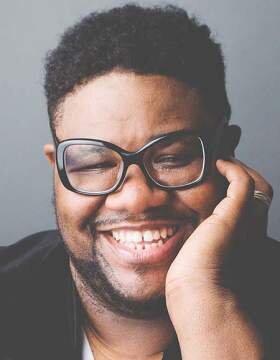
Alongside many editors, stylists and designers in the fashion industry, there are many fashion scholars who’re making positive contributions to the industry also. These researchers dedicate their time to not only teaching but advancing their studies at the intersection of fashion and race.
Eric Darnell Pritchard
Dr. Pritchard, Associate Professor of English at University of Buffalo (SUNY), is a writer, teacher, and self-proclaimed “Feminist Alchemist.” His research ranges from queerness, gender and sexuality to fashion and rhetoric. The professor is currently writing a book about Patrick Kelly.
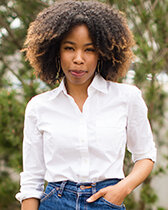
Rikki Byrd
Rikki Byrd is currently a doctoral student at Northwestern University, in the department of African American Studies. Prior to attending Northwestern, she obtained a Masters in Fashion Studies from Parsons at The New School. Byrd’s research involves fashion, visual culture and contemporary black art. She is also the founder of The Fashion and Race Syllabus.

Kimberly Jenkins
Kimberly Jenkins, former student and Adjunct Professor at Parsons in New York City, is now an Assistant Professor at Ryerson University. Her work has been featured in countless magazines and she knows fashion history like the back of her hand. Jenkins was also afforded the opportunity to consult Gucci on their diversity and inclusion initiatives.
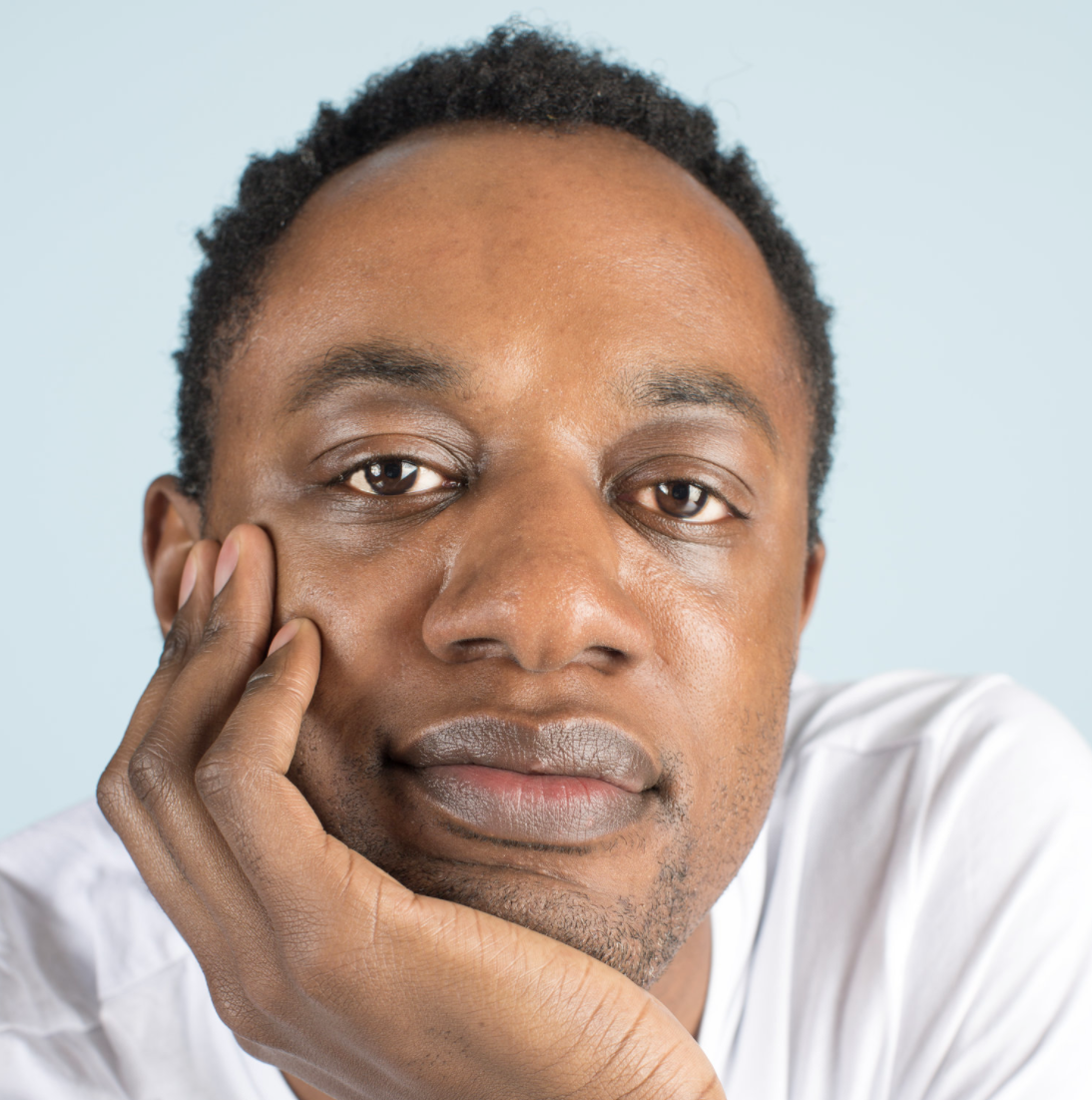
Jonathan M. Square
Professor Square is a historian and teacher at Harvard University in Boston, Massachusetts. His research focuses on history, fashion and visual culture within the African Diaspora. With degrees from NYU and Cornell, Dr. Square gives lectures at various institutions, on his research.
Report: Julian Randall
At the rise of Covid-19 many of us first questioned the timeline of fashion week and would we see the regular calendar continue - the question weighed over many of us for months! It was refreshing to see design houses and designers across the globe take advantage of the uncertainty and plow into production mode - thus my interest in Jerri Reid New York - The Black Designer based in Brooklyn New York wow’d instagram with his latest collection paying homage to the Black Is King film which debuted earlier this year in July. I was taken aback at quick of a turn round the young designer produced and released his well crafted designs reflecting some of the films most memorable moments.
Being a black gay creative for me feels liberating but at the same time there’s pressure. Pressure in needing to express yourself to a white society, that you are enough; what feels like having to explain my existence. having to explain why who I am and the art I produce is more than a hyper sexual view, but just what it is, art - expression, my expression.
Summer is here and it’s important for every woman to feel beautiful in their own skin. Support these amazing companies that offer some beautiful swimwear pieces that will leave you feeling confident and vibrant.
It's always been important to support black designers, but amid a pandemic and sociopolitical crisis, these black artists and business owners need your support now more than ever!
While people have shown concern for the rapper, others have taken the opportunity to make jokes about the incident. Within the last couple of months, the topic of how Black women are marginalized in society has become more prevalent.
The sudden worldwide shift to Digital Fashion Weeks has engendered confusion and ambivalence among designers and fashion brands, particularly in regards to the content of their promotional videos.
After witnessing the backlash from Simone Biles Vogue cover I had to sit aside and ponder: Why is it so challenging for some photographers to capture the beauty of black skin/people? Our undertones, our glow, even the texture of our hair. So, like always I went looking for methods to best capture dark skin.
This spicy blackberry and plum sauce recipe was a push for something different and will now be my go to condiment for the summer season.
Black women die at a rate three times higher than white women when giving birth. The death of Sha-Asia Washington has shown the racial disparities Black women face in childbirth.
Shoot for the Stars Aim for the Moon is the first posthumous album to reach No. 1 since 2018. Pop Smoke and XXXTentacion are two of the four hip-hop artists with posthumous No. 1s. They follow The Notorious B.I.G. and 2Pac, who each have three posthumous leaders. R.I.P to the Woo.
To be black and well can mean a lot of things, but should definitely include #Skincare #Meditation #BlackReading among many other things, daily! #BlackLivesMatter #HealthAndWellness #AmplifyBlackVoices
Ib Kamara Celebrates "Future, Community, Beauty, and Blackness" in Browns' "Family Affair"
Ah, fall! The season of pumpkin spice, rustling leaves, and...refreshing your fashion game! Let's face it: While we adore our comfy sweaters and jeans, it’s the accessories that truly make or break our autumn outfits.
Accessories are a simple way to add some interest to your outfits. Whether you want to refresh your style, or just to add a pop of something extra, getting your accessories right can lift an outfit, and make you look more put-together, more stylish, or more fun.
Are you thinking about buying gifts for the special girl in your life? Whether you’re purchasing lovely presents for your friend, your partner, or your wife, we think you should definitely consider some wonderful fashionable choices. Here are some of the best possibilities that the special girl in your life is sure to love and appreciate.
2021 will be a wild ride for fashion lovers and style enthusiasts everywhere. With us still being in the middle of a pandemic and changes are happening with the way consumers shop, it will definitely give way to how differently people dress and style themselves. Here are a few trend predictions that may give way in 2021.
Fashion lovers and style enthusiasts rejoice. The Pantone’s Color of the Year for 2021 is here and not only did they announce one color but two! The two colors selected will be Ultimate Gray (PANTONE 17-5104) and Illuminating (PANTONE 13-0647) as the shades for Pantone's Color of the Year 2021. According to Teen Vogue, the last time Pantone announced two colors for color of the year was back in 2016.
Diarra Bousso’s experiences as a mathematician, artisan and former Wall Street Trader have led to the creation of Diarrablu - her lifestyle brand. Her designs showcase her culture with every detail and piece - it tells a story.
Developing your sense of style is an essential part of expressing yourself through your clothing.
The effects of a nationwide quarantine have devastated the fashion label Cushnie to the point at which its closure was made official in late October. The tragic end to one of the rare high-fashion brands in America helmed by a black woman brings into question the industry's promises to employ more racially diverse talent.
In these months of solitude, the bored masses have switched on to Netflix to help them escape the mundane feeling of the lockdown. This constant tuning in is no new feeling to teenagers, whose viewership has created an entirely new genre of melodramatic “teen” shows and movies. While I binged (and rebinged) these shows, I became increasingly interested in the patterns of dress. As a fashion zealot, I tend to fixate on styling within any form of media - I get excited by fresh perspectives in fashion. Especially when it is portrayed through a young character’s style. Sadly,
New York based-label Rowing Blazers is commemorating the style of the late Princess Diana for the Fall/Winter 2020 collection. Some of Diana’s most notable looks, as well as other influenced pieces, are featured in the 80s inspired collection.
Why Supporting Black-Owned Beauty Brands is So Important
As news coverage and chatter dies down about the Black Lives Matter movement, you might be asking yourself what ways you can make a lasting impact. One place where the Black community has been often excluded is in the beauty industry-- and so showing your support to Black-owned beauty and makeup brands is now more important than ever.
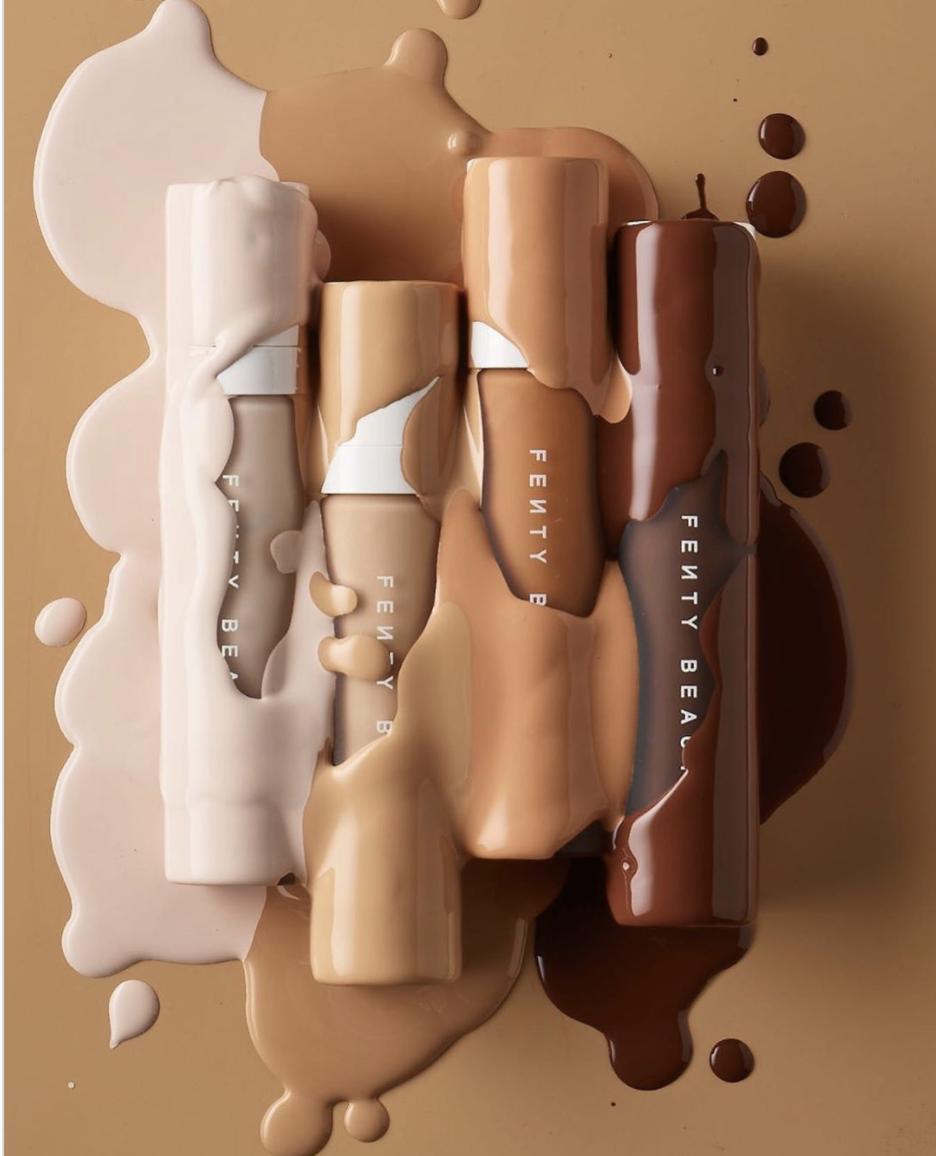
Amidst the incredible surge of attention the Black Lives Matter movement has amassed, now more than ever it is essential to support Black-owned businesses. All over the internet you can find lists upon lists of Black-owned restaurants, shops, start-ups, personal brands, and more. If you support the movement, people say, put your money where your mouth is: show your support with cold, hard cash. So, you might be asking yourself, why? What does supporting Black-owned businesses do, and why is it so important? Below is a look into how supporting Black beauty brands can make a difference.
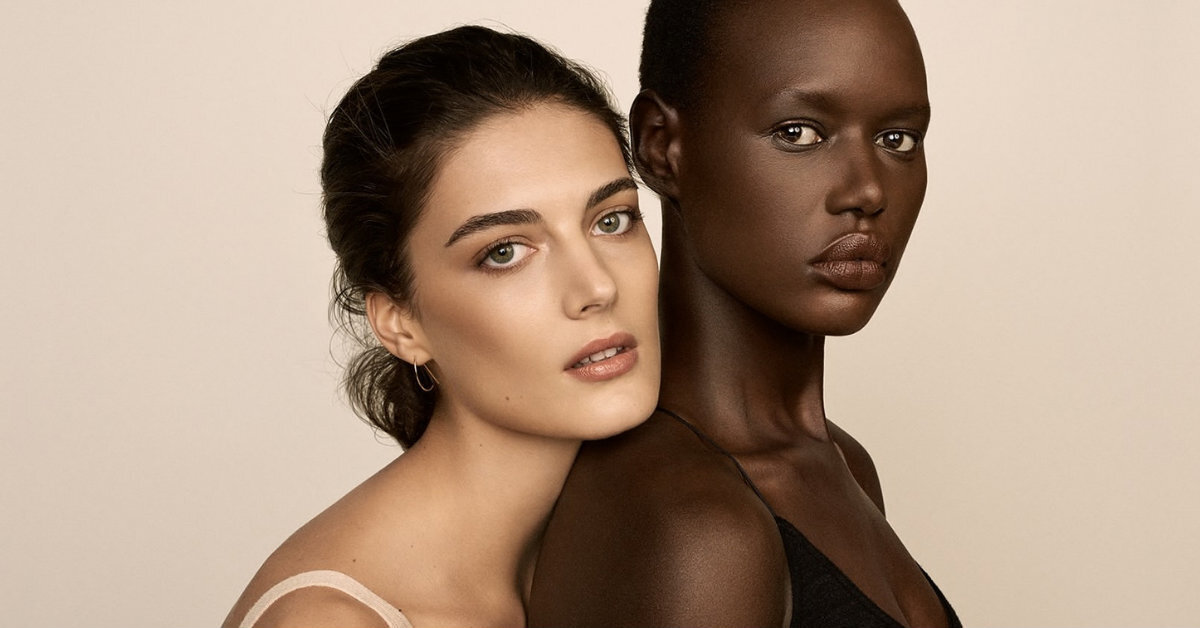
Like many things, it’s helpful to start with the history of the beauty industry to understand why Black people deserve support. For years, the makeup industry has ignored Black women with products neither designed for nor marketed toward people of color. Foundation and concealer shades often never come close to matching those with darker skin, and products like eye shadow or lipstick are often not pigmented enough to show up on darker skin. Additionally, makeup and hair artists are rarely trained on how to work on those with darker complexions or textured hair. This exclusion not only prevents Black women from access to products they may need or desire in order to foster confidence, but it also sends a clear message about America’s ideal form of beauty. What does a young, Black girl make of the fact that she looks nothing like any of the faces in beauty magazines, or those hailed as beautiful on television?

Thankfully, important steps have been taken to combat this whitewashing of the beauty industry in the past few years. Rihanna’s Fenty Beauty line lead the way on this path with over 40 different shades of foundation, which has now become somewhat of a norm for other foundation lines. But more work needs to be done. This inclusion need not be trendy but a conscious, ongoing process. That’s where you come in. Supporting Black-owned makeup and beauty brands can help make up for this long-term exclusion of women of color in the beauty industry. Giving Black women the recognition they deserve in one the fastest growing industries in the world is one of the many ways we can keep the momentum going on the Black Lives Matter movement. Whether that be by buying from Black-owned brands, showing support to brands that make a purposeful inclusive effort, or speaking out against those who don’t, the inclusion of Black people in the beauty industry has the power to create a domino effect on how society envisions ideal beauty.
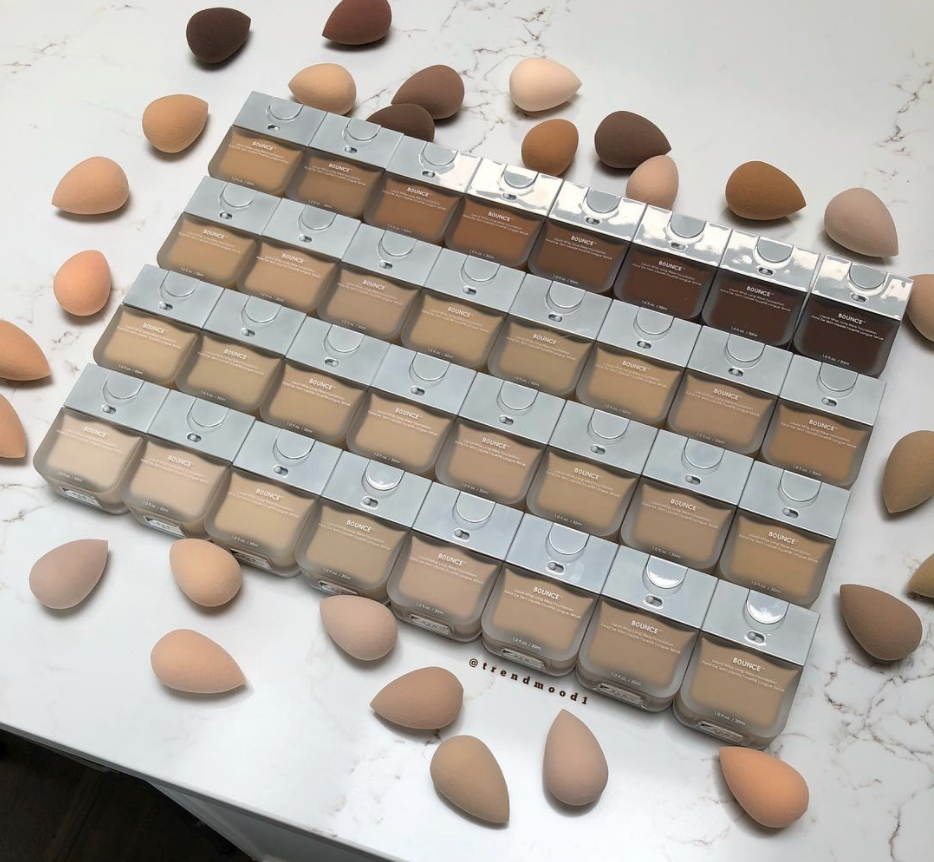
Report: Grace Carlos
At the rise of Covid-19 many of us first questioned the timeline of fashion week and would we see the regular calendar continue - the question weighed over many of us for months! It was refreshing to see design houses and designers across the globe take advantage of the uncertainty and plow into production mode - thus my interest in Jerri Reid New York - The Black Designer based in Brooklyn New York wow’d instagram with his latest collection paying homage to the Black Is King film which debuted earlier this year in July. I was taken aback at quick of a turn round the young designer produced and released his well crafted designs reflecting some of the films most memorable moments.
Being a black gay creative for me feels liberating but at the same time there’s pressure. Pressure in needing to express yourself to a white society, that you are enough; what feels like having to explain my existence. having to explain why who I am and the art I produce is more than a hyper sexual view, but just what it is, art - expression, my expression.
Summer is here and it’s important for every woman to feel beautiful in their own skin. Support these amazing companies that offer some beautiful swimwear pieces that will leave you feeling confident and vibrant.
It's always been important to support black designers, but amid a pandemic and sociopolitical crisis, these black artists and business owners need your support now more than ever!
While people have shown concern for the rapper, others have taken the opportunity to make jokes about the incident. Within the last couple of months, the topic of how Black women are marginalized in society has become more prevalent.
The sudden worldwide shift to Digital Fashion Weeks has engendered confusion and ambivalence among designers and fashion brands, particularly in regards to the content of their promotional videos.
After witnessing the backlash from Simone Biles Vogue cover I had to sit aside and ponder: Why is it so challenging for some photographers to capture the beauty of black skin/people? Our undertones, our glow, even the texture of our hair. So, like always I went looking for methods to best capture dark skin.
This spicy blackberry and plum sauce recipe was a push for something different and will now be my go to condiment for the summer season.
Black women die at a rate three times higher than white women when giving birth. The death of Sha-Asia Washington has shown the racial disparities Black women face in childbirth.
Shoot for the Stars Aim for the Moon is the first posthumous album to reach No. 1 since 2018. Pop Smoke and XXXTentacion are two of the four hip-hop artists with posthumous No. 1s. They follow The Notorious B.I.G. and 2Pac, who each have three posthumous leaders. R.I.P to the Woo.
To be black and well can mean a lot of things, but should definitely include #Skincare #Meditation #BlackReading among many other things, daily! #BlackLivesMatter #HealthAndWellness #AmplifyBlackVoices
Ib Kamara Celebrates "Future, Community, Beauty, and Blackness" in Browns' "Family Affair"
What we wear should make us feel good, especially for our moms to be. Finding the perfect pair of jeans and tops can be tough, and for pregnant women, even harder. Read more to see some great places to shop tha
Anifa Mvuemba Has Completely Transformed Runway Culture.
Anifa Mvuemba has completely transformed runway culture. With the use of technology and virtual models, Mvuemba brought her "Pink Lable Congo" collection to life! Highlighting the beauty, delicacy, and the history of Congolese clothing, Anifa uses her clothes to celebrate her country’s history despite how painful. With the intent to rewrite the future.

During a time when we can’t physically gather, Baltimore native Anifa Mvuemba, the founder of clothing brand Hanifa has transformed runway culture. The Congolese designer has given us a glimpse of what fashion shows could possibly be following the pandemic. Using technology and innovation Mvuemba was able to share her story and showcase her collection to the public from home.
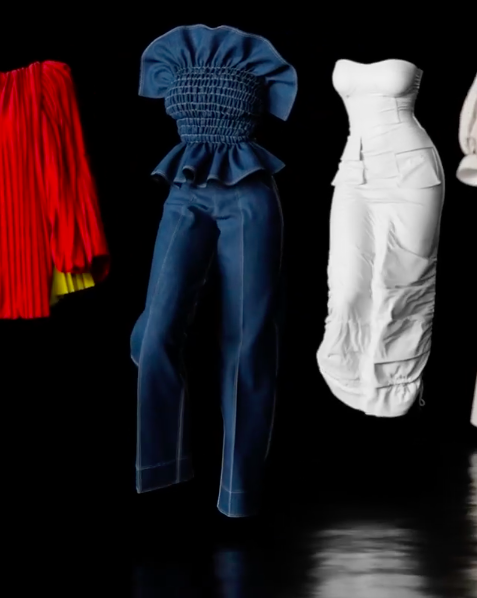
Hanifa’s mission is to highlight the beauty, delicacy, and the history of Congolese clothing. Using her clothes to celebrate her homeland’s history regardless of how painful, with the goal to rewrite its future. Mvuemba said in an interview that she felt that releasing the collection during the pandemic would appear insensitive but she has definitely taken the internet by storm. Utilizing social media, specifically Instagram live, Anifa revealed her “Pink Lable Congo” line using virtual models. In an interview with TeenVogue, Anifa said that she had been thinking of taking her fashion shows to the internet and have been working on this project for seven months.
During the launch of the collection, Anifa explains that each look in this collection meant to represent the Democratic Republic of Congo. She also wanted to use this launch to raise awareness of the illegal mining of cobalt on the land. According to CNN, it is estimated that nearly 40,000 children are working on mines making $1 to $2 a day. To bring attention to this Anifa open the fashion show with a short documentary of stories of these mine workers. This documentary highlighted the harsh conditions underage children and women face for long hours.
To learn more about this cause here's a link to the IGTV runway show.
https://www.instagram.com/tv/CAhDULhAFvG/?utm_source=ig_web_copy_link
Report: Lauren Tucker
At the rise of Covid-19 many of us first questioned the timeline of fashion week and would we see the regular calendar continue - the question weighed over many of us for months! It was refreshing to see design houses and designers across the globe take advantage of the uncertainty and plow into production mode - thus my interest in Jerri Reid New York - The Black Designer based in Brooklyn New York wow’d instagram with his latest collection paying homage to the Black Is King film which debuted earlier this year in July. I was taken aback at quick of a turn round the young designer produced and released his well crafted designs reflecting some of the films most memorable moments.
Being a black gay creative for me feels liberating but at the same time there’s pressure. Pressure in needing to express yourself to a white society, that you are enough; what feels like having to explain my existence. having to explain why who I am and the art I produce is more than a hyper sexual view, but just what it is, art - expression, my expression.
Summer is here and it’s important for every woman to feel beautiful in their own skin. Support these amazing companies that offer some beautiful swimwear pieces that will leave you feeling confident and vibrant.
It's always been important to support black designers, but amid a pandemic and sociopolitical crisis, these black artists and business owners need your support now more than ever!
While people have shown concern for the rapper, others have taken the opportunity to make jokes about the incident. Within the last couple of months, the topic of how Black women are marginalized in society has become more prevalent.
The sudden worldwide shift to Digital Fashion Weeks has engendered confusion and ambivalence among designers and fashion brands, particularly in regards to the content of their promotional videos.
After witnessing the backlash from Simone Biles Vogue cover I had to sit aside and ponder: Why is it so challenging for some photographers to capture the beauty of black skin/people? Our undertones, our glow, even the texture of our hair. So, like always I went looking for methods to best capture dark skin.
This spicy blackberry and plum sauce recipe was a push for something different and will now be my go to condiment for the summer season.
Black women die at a rate three times higher than white women when giving birth. The death of Sha-Asia Washington has shown the racial disparities Black women face in childbirth.
Shoot for the Stars Aim for the Moon is the first posthumous album to reach No. 1 since 2018. Pop Smoke and XXXTentacion are two of the four hip-hop artists with posthumous No. 1s. They follow The Notorious B.I.G. and 2Pac, who each have three posthumous leaders. R.I.P to the Woo.
To be black and well can mean a lot of things, but should definitely include #Skincare #Meditation #BlackReading among many other things, daily! #BlackLivesMatter #HealthAndWellness #AmplifyBlackVoices
Ib Kamara Celebrates "Future, Community, Beauty, and Blackness" in Browns' "Family Affair"
Ah, fall! The season of pumpkin spice, rustling leaves, and...refreshing your fashion game! Let's face it: While we adore our comfy sweaters and jeans, it’s the accessories that truly make or break our autumn outfits.
Accessories are a simple way to add some interest to your outfits. Whether you want to refresh your style, or just to add a pop of something extra, getting your accessories right can lift an outfit, and make you look more put-together, more stylish, or more fun.
Are you thinking about buying gifts for the special girl in your life? Whether you’re purchasing lovely presents for your friend, your partner, or your wife, we think you should definitely consider some wonderful fashionable choices. Here are some of the best possibilities that the special girl in your life is sure to love and appreciate.
2021 will be a wild ride for fashion lovers and style enthusiasts everywhere. With us still being in the middle of a pandemic and changes are happening with the way consumers shop, it will definitely give way to how differently people dress and style themselves. Here are a few trend predictions that may give way in 2021.
Fashion lovers and style enthusiasts rejoice. The Pantone’s Color of the Year for 2021 is here and not only did they announce one color but two! The two colors selected will be Ultimate Gray (PANTONE 17-5104) and Illuminating (PANTONE 13-0647) as the shades for Pantone's Color of the Year 2021. According to Teen Vogue, the last time Pantone announced two colors for color of the year was back in 2016.
Diarra Bousso’s experiences as a mathematician, artisan and former Wall Street Trader have led to the creation of Diarrablu - her lifestyle brand. Her designs showcase her culture with every detail and piece - it tells a story.
Developing your sense of style is an essential part of expressing yourself through your clothing.
The effects of a nationwide quarantine have devastated the fashion label Cushnie to the point at which its closure was made official in late October. The tragic end to one of the rare high-fashion brands in America helmed by a black woman brings into question the industry's promises to employ more racially diverse talent.
In these months of solitude, the bored masses have switched on to Netflix to help them escape the mundane feeling of the lockdown. This constant tuning in is no new feeling to teenagers, whose viewership has created an entirely new genre of melodramatic “teen” shows and movies. While I binged (and rebinged) these shows, I became increasingly interested in the patterns of dress. As a fashion zealot, I tend to fixate on styling within any form of media - I get excited by fresh perspectives in fashion. Especially when it is portrayed through a young character’s style. Sadly,
New York based-label Rowing Blazers is commemorating the style of the late Princess Diana for the Fall/Winter 2020 collection. Some of Diana’s most notable looks, as well as other influenced pieces, are featured in the 80s inspired collection.
Black People Are Not An Antiracism Course
Educating yourself on issues affecting the black community is more important than ever. But it's also important to utilize the resources around you to gain a better understanding of those issues. Your friend can be a starting point, but you try to take it from there.
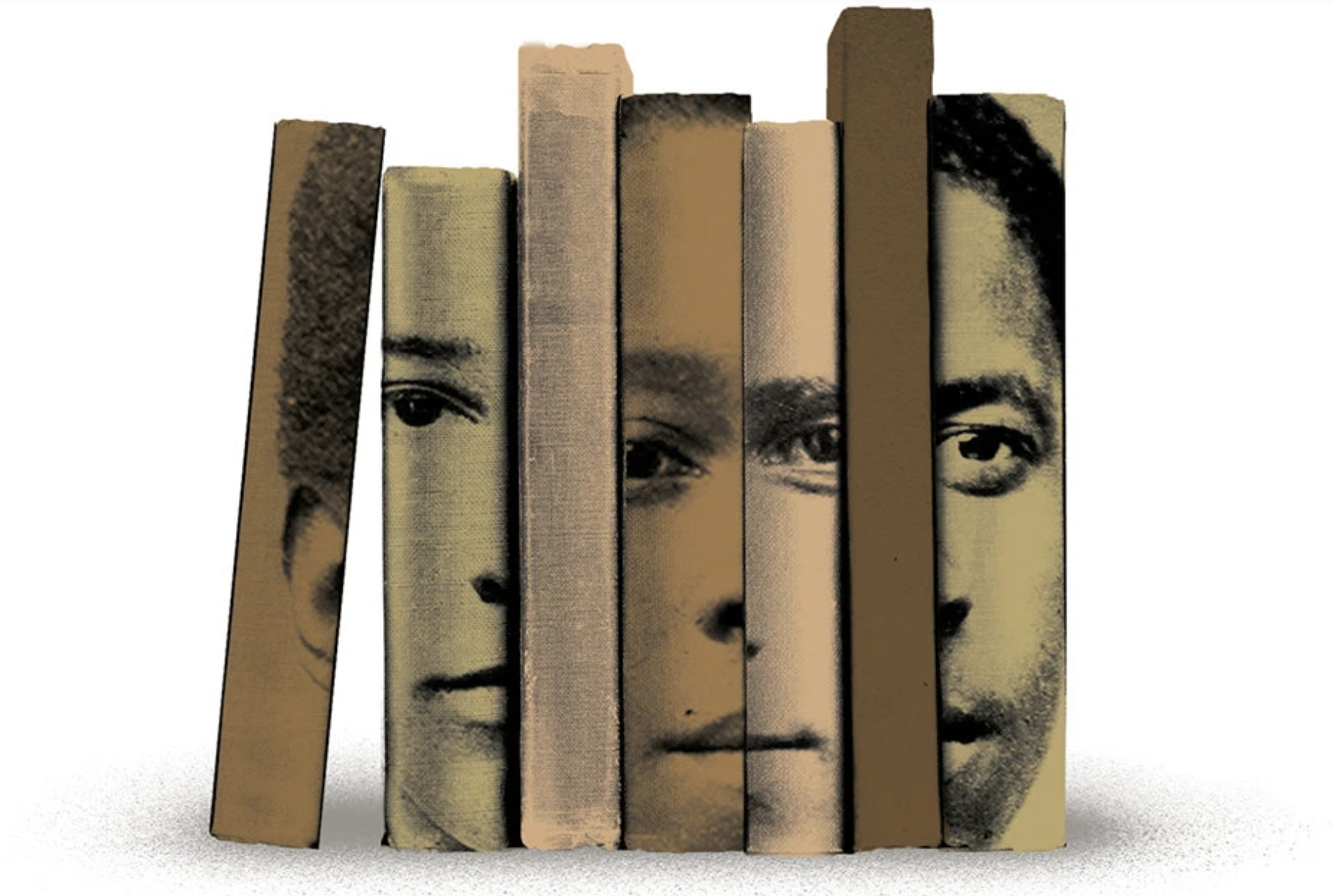
In light of the unlawful killings of Ahmaud Arbery, and more recently, George Floyd, there has been a resurgence amongst non-black people to educate themselves on social issues that directly impact black people. Thus, they tend to turn to black people for book recommendations, resources and other educational materials to better themselves in this area. Although most black people are willing to answer questions and provide resources to non-black people that will aid them in a better understanding of black issues, we are not an antiracism course. Black people are not an antiracism course. As a black person in America, continuing to explain black plight to white and other non-black people is a mentally and emotionally laborious task that should not always solely rely on us. I, as a black American citizen, am not responsible for the totality of a non-black person’s understanding of police brutality, white supremacy, racism, etc.

The majority of us have more than likely either been a student or employee. In both of these instances, at one point or another, we were expected to learn something new and had to utilize the resources around us to learn it. I want to encourage people to apply that same practice when it comes to their education on social issues involving the black community. However, one does not have to acquire all of the knowledge and education in order to speak out against antiracism and police violence. The poetic, complex and verbose statements that we’re seeing in Instagram captions are not necessary in order to develop an effective message. Simple phrases such as “End police brutality,” “Value black lives,” and “Stop killing black men and women,” are simple statements that draw attention to the multiplicity of issues we’re facing societally. Empathy and common sense are the only prerequisites necessary to understand that there are grave injustices at place in America that warrant a global outcry.
Report: Julian Alexander Randall
At the rise of Covid-19 many of us first questioned the timeline of fashion week and would we see the regular calendar continue - the question weighed over many of us for months! It was refreshing to see design houses and designers across the globe take advantage of the uncertainty and plow into production mode - thus my interest in Jerri Reid New York - The Black Designer based in Brooklyn New York wow’d instagram with his latest collection paying homage to the Black Is King film which debuted earlier this year in July. I was taken aback at quick of a turn round the young designer produced and released his well crafted designs reflecting some of the films most memorable moments.
Being a black gay creative for me feels liberating but at the same time there’s pressure. Pressure in needing to express yourself to a white society, that you are enough; what feels like having to explain my existence. having to explain why who I am and the art I produce is more than a hyper sexual view, but just what it is, art - expression, my expression.
Summer is here and it’s important for every woman to feel beautiful in their own skin. Support these amazing companies that offer some beautiful swimwear pieces that will leave you feeling confident and vibrant.
It's always been important to support black designers, but amid a pandemic and sociopolitical crisis, these black artists and business owners need your support now more than ever!
While people have shown concern for the rapper, others have taken the opportunity to make jokes about the incident. Within the last couple of months, the topic of how Black women are marginalized in society has become more prevalent.
The sudden worldwide shift to Digital Fashion Weeks has engendered confusion and ambivalence among designers and fashion brands, particularly in regards to the content of their promotional videos.
After witnessing the backlash from Simone Biles Vogue cover I had to sit aside and ponder: Why is it so challenging for some photographers to capture the beauty of black skin/people? Our undertones, our glow, even the texture of our hair. So, like always I went looking for methods to best capture dark skin.
This spicy blackberry and plum sauce recipe was a push for something different and will now be my go to condiment for the summer season.
Black women die at a rate three times higher than white women when giving birth. The death of Sha-Asia Washington has shown the racial disparities Black women face in childbirth.
Shoot for the Stars Aim for the Moon is the first posthumous album to reach No. 1 since 2018. Pop Smoke and XXXTentacion are two of the four hip-hop artists with posthumous No. 1s. They follow The Notorious B.I.G. and 2Pac, who each have three posthumous leaders. R.I.P to the Woo.
The truth is that we do live in a modern age, and if you are a woman who wants to start a business in a traditionally male field, there is no reason why you shouldn't. And in fact, by breaking the mold and stepping out of your comfort zone, you can much more easily make a name for yourself.
At the rise of Covid-19 many of us first questioned the timeline of fashion week and would we see the regular calendar continue - the question weighed over many of us for months! It was refreshing to see design houses and designers across the globe take advantage of the uncertainty and plow into production mode - thus my interest in Jerri Reid New York - The Black Designer based in Brooklyn New York wow’d instagram with his latest collection paying homage to the Black Is King film which debuted earlier this year in July. I was taken aback at quick of a turn round the young designer produced and released his well crafted designs reflecting some of the films most memorable moments.
A lot of us are dealing with loss in isolation. The ongoing pandemic has changed how we interact in every facet of life, including how we experience the death of those close to us.
So, there is no one blanket solution for the bulk and solid industry. But, you can do these things to bolster your economic recovery.
The fashion industry appears to be delivering on their promise of supporting black creatives with such emerging programs as the Black in Fashion Council and the Kelly Initiative. The most recent of these efforts is RAISE Fashion, a group dedicated to providing free mentorships to black fashion designers and entrepreneurs.
Pose tells the story of LGBTQ ballroom culture in New York City during the late 1980s and early 1990s and has thus been applauded for being a television show with prevalent trans actors. A key player in bringing this historical scene to life is Billy Porter, who portrays the character Pray Tell.
In the midst of this terrible pandemic, something amazing has come. Black content creators have continued to be on the rise. It is always important to be able to have representation and voices that you can relate to, especially in today’s climate. Black creators have reached a new level of creativity large in part to the elevation of the podcasting industry. We as content creators have taken over the podcasting platforms. With that being said we decided to create a list of some of our go-to podcasts that we think you would truly enjoy.
Calls for justice intensifies as Breonna Taylor’s killers remain free. Breonna Taylor’s story and the push for her killers to be behind bars was once an important topic on social media, but as her killers remain free and charges have been dropped people have seemed to loose sight on the bigger picture. Whether its signing petitions, voting in November or reaching out to politicians we must not forget about Breonna Taylor because she needs justice and so does her family. Let’s keep pushing for change and not forget about what’s more important in today’s world even if we feel like progress isn’t being made right away. As long as we continue to fight, we will see change.
To Brands and Influencers, Do More Activism on Your Platform.
As more speak out and try to combat today's issues, there's one thing to be noted: you can can always improve and do better on your activism.
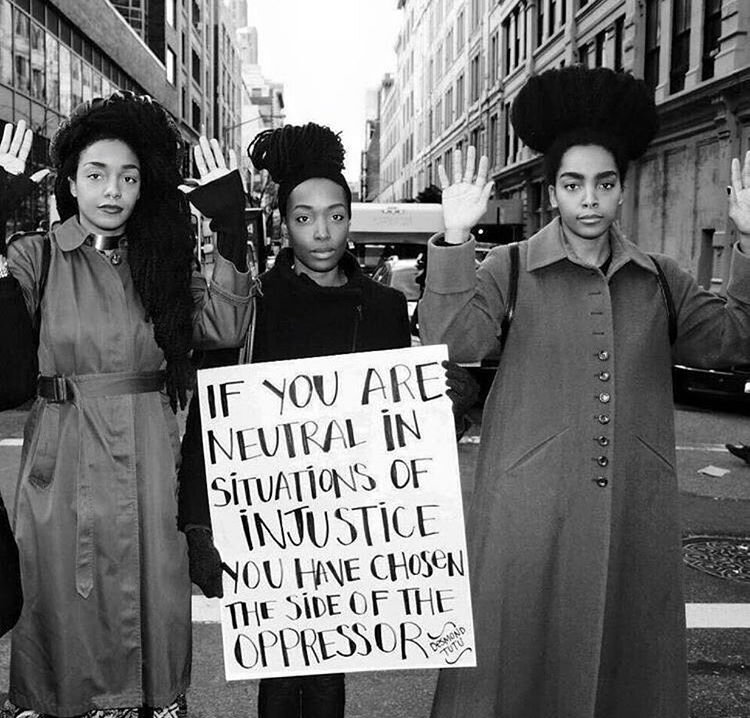
Multiple protests throughout the United States, and now the world, have erupted due to George Floyd’s murder. With a protest in almost each state and horrendous police response being recorded, it’s hard to avoid the social issues being brought up more prominently. It’s important to be aware and actively contribute to fighting against them, but there’s a certain demographic that especially needs to make their activism known: brands and influencers. The amount of followers and power they possess could be a great tool in increasing awareness, but only if they do it proactively.
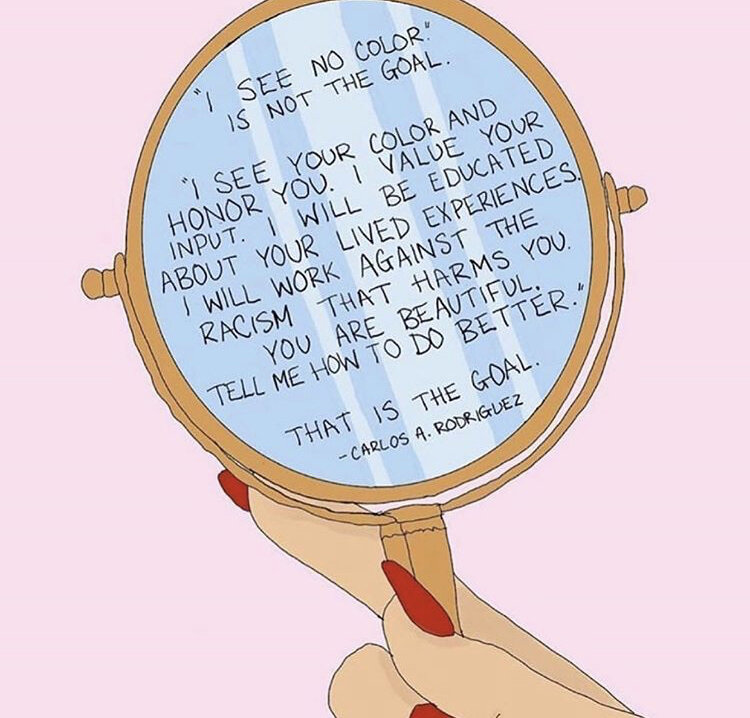
Brands of prominence have stepped up and committed to the cause of fighting racial injustice. Glossier announced they will be making a $500,000 donation to various organizations such as Black Lives Matter and the Marsha P. John Institute, and plan to give out $500,000 worth of grants to black-owned beauty brands. Jacquemus has actively been using their Instagram to create posts about the protests and Black Lives Matter and have been sharing ways in which to support black-owned businesses. Rent the Runway announced they will donate $1 million to black designers, with a $100,000 donation to the Black Vision Collective and NAACP, as well as a 15% commitment to black talent. With these well-known names making strides for activism, can other brands follow lead and improve? The answer is yes.
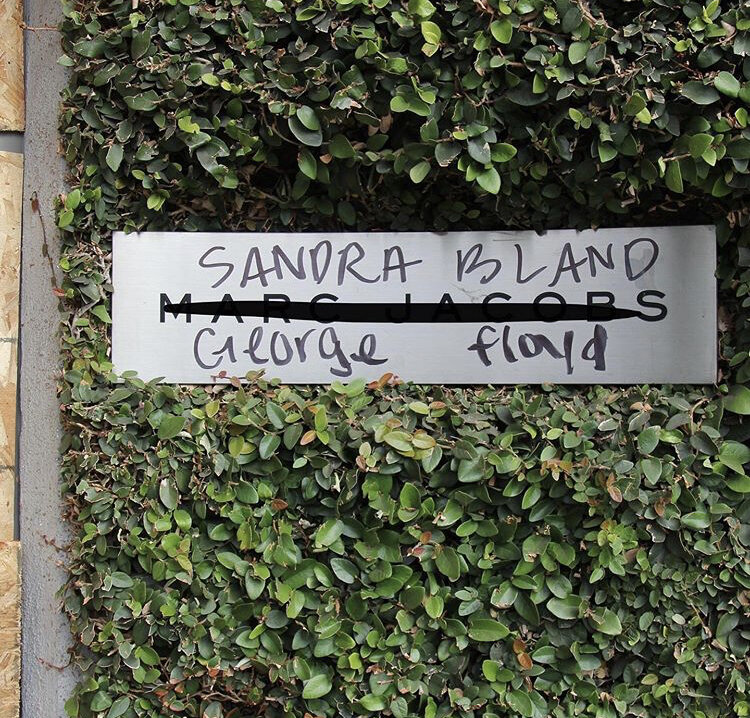
Chanel has posted support and a commitment to more diversity, but has not donated or provided resources. Considering that they once staged a runway show as a “protest” with models flaunting posters, why couldn’t they contribute in real life? Louis Vuitton drew criticism after not responding, but it was only after one of their designers, Virgil Abloh, was called out for donating a small portion that they finally released a video committed to making a change for Black Lives Matter. Marc Jacobs was one of the brands that had their stores vandalized and destroyed, but all they have done was explain they can replace material things, but not a black life. Although it’s great they made this comment, other brands have proven more can be done past performative activism for the sake of looking like they care.
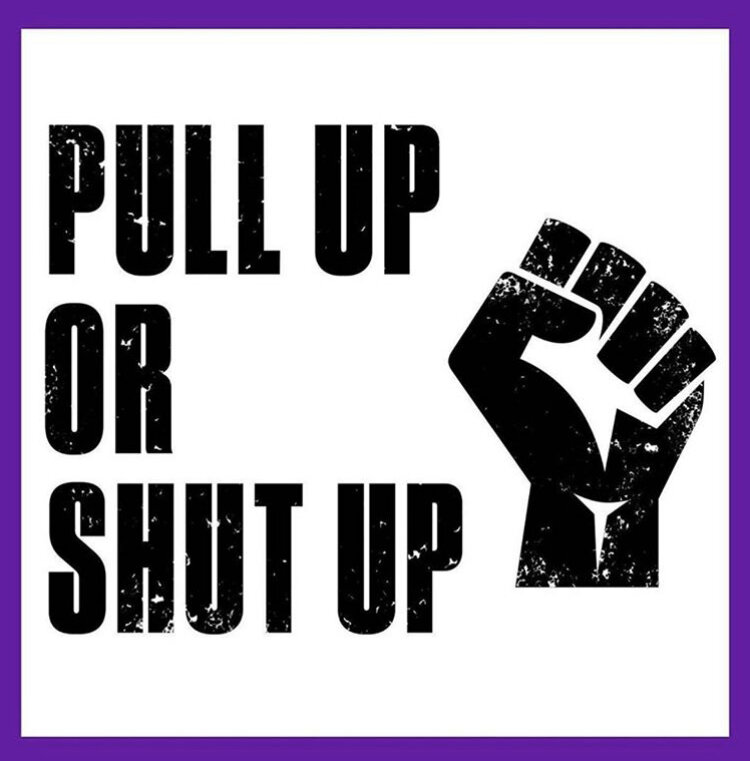
Influencers of social media have the power to evoke change as well. Jackie Aina has been very vocal about business silence, and has called out Fashion Nova, Pretty Little Thing, and similar brands for profiting off black culture, but not doing anything to contribute to the activist cause. She has even posed a challenge to brands to list how many black employees they have, specifically in roles of leadership. If some influencers have the power and fanbase to drive change, all others should do the same.
Everyone should be a constant activist for the racial injustice and other social issues that have troubled society. But no matter how much activism you do, you can always do better. Educate yourself, read up on history, listen to people’s stories. Make your activism intersectional and never-ending.
Photo Credits: Normani, Nelly London, Marc Jacobs, Jackie Aina.
Report: Charlene Piccio
At the rise of Covid-19 many of us first questioned the timeline of fashion week and would we see the regular calendar continue - the question weighed over many of us for months! It was refreshing to see design houses and designers across the globe take advantage of the uncertainty and plow into production mode - thus my interest in Jerri Reid New York - The Black Designer based in Brooklyn New York wow’d instagram with his latest collection paying homage to the Black Is King film which debuted earlier this year in July. I was taken aback at quick of a turn round the young designer produced and released his well crafted designs reflecting some of the films most memorable moments.
Being a black gay creative for me feels liberating but at the same time there’s pressure. Pressure in needing to express yourself to a white society, that you are enough; what feels like having to explain my existence. having to explain why who I am and the art I produce is more than a hyper sexual view, but just what it is, art - expression, my expression.
Summer is here and it’s important for every woman to feel beautiful in their own skin. Support these amazing companies that offer some beautiful swimwear pieces that will leave you feeling confident and vibrant.
It's always been important to support black designers, but amid a pandemic and sociopolitical crisis, these black artists and business owners need your support now more than ever!
While people have shown concern for the rapper, others have taken the opportunity to make jokes about the incident. Within the last couple of months, the topic of how Black women are marginalized in society has become more prevalent.
The sudden worldwide shift to Digital Fashion Weeks has engendered confusion and ambivalence among designers and fashion brands, particularly in regards to the content of their promotional videos.
After witnessing the backlash from Simone Biles Vogue cover I had to sit aside and ponder: Why is it so challenging for some photographers to capture the beauty of black skin/people? Our undertones, our glow, even the texture of our hair. So, like always I went looking for methods to best capture dark skin.
This spicy blackberry and plum sauce recipe was a push for something different and will now be my go to condiment for the summer season.
Black women die at a rate three times higher than white women when giving birth. The death of Sha-Asia Washington has shown the racial disparities Black women face in childbirth.
Shoot for the Stars Aim for the Moon is the first posthumous album to reach No. 1 since 2018. Pop Smoke and XXXTentacion are two of the four hip-hop artists with posthumous No. 1s. They follow The Notorious B.I.G. and 2Pac, who each have three posthumous leaders. R.I.P to the Woo.
To be black and well can mean a lot of things, but should definitely include #Skincare #Meditation #BlackReading among many other things, daily! #BlackLivesMatter #HealthAndWellness #AmplifyBlackVoices
Ib Kamara Celebrates "Future, Community, Beauty, and Blackness" in Browns' "Family Affair"
What we wear should make us feel good, especially for our moms to be. Finding the perfect pair of jeans and tops can be tough, and for pregnant women, even harder. Read more to see some great places to shop tha
Among the many other issues surrounding diversity and inclusion within the fashion industry, it's important to acknowledge the failings of the system that produces fashion industry practitioners; the university.
Although we all rely on fast-fashion brands like H&M, Forever21 or Fashion Nova, we all might be forgetting how these brands manage to make all these garments and accessories for such affordable prices.
Ah, fall! The season of pumpkin spice, rustling leaves, and...refreshing your fashion game! Let's face it: While we adore our comfy sweaters and jeans, it’s the accessories that truly make or break our autumn outfits.
Accessories are a simple way to add some interest to your outfits. Whether you want to refresh your style, or just to add a pop of something extra, getting your accessories right can lift an outfit, and make you look more put-together, more stylish, or more fun.
Are you thinking about buying gifts for the special girl in your life? Whether you’re purchasing lovely presents for your friend, your partner, or your wife, we think you should definitely consider some wonderful fashionable choices. Here are some of the best possibilities that the special girl in your life is sure to love and appreciate.
2021 will be a wild ride for fashion lovers and style enthusiasts everywhere. With us still being in the middle of a pandemic and changes are happening with the way consumers shop, it will definitely give way to how differently people dress and style themselves. Here are a few trend predictions that may give way in 2021.
Fashion lovers and style enthusiasts rejoice. The Pantone’s Color of the Year for 2021 is here and not only did they announce one color but two! The two colors selected will be Ultimate Gray (PANTONE 17-5104) and Illuminating (PANTONE 13-0647) as the shades for Pantone's Color of the Year 2021. According to Teen Vogue, the last time Pantone announced two colors for color of the year was back in 2016.
Diarra Bousso’s experiences as a mathematician, artisan and former Wall Street Trader have led to the creation of Diarrablu - her lifestyle brand. Her designs showcase her culture with every detail and piece - it tells a story.
Developing your sense of style is an essential part of expressing yourself through your clothing.
The effects of a nationwide quarantine have devastated the fashion label Cushnie to the point at which its closure was made official in late October. The tragic end to one of the rare high-fashion brands in America helmed by a black woman brings into question the industry's promises to employ more racially diverse talent.
In these months of solitude, the bored masses have switched on to Netflix to help them escape the mundane feeling of the lockdown. This constant tuning in is no new feeling to teenagers, whose viewership has created an entirely new genre of melodramatic “teen” shows and movies. While I binged (and rebinged) these shows, I became increasingly interested in the patterns of dress. As a fashion zealot, I tend to fixate on styling within any form of media - I get excited by fresh perspectives in fashion. Especially when it is portrayed through a young character’s style. Sadly,
New York based-label Rowing Blazers is commemorating the style of the late Princess Diana for the Fall/Winter 2020 collection. Some of Diana’s most notable looks, as well as other influenced pieces, are featured in the 80s inspired collection.
The Undervalued Beauty of Black Fashion
Black fashion businesses are brimming with underrated talent, and this period of revolutionary racial solidarity only further proves how deserving they are of financial support.
Black fashion businesses are brimming with underrated talent, and this period of revolutionary racial solidarity only further proves how deserving they are of financial support. Countless black fashion creators have crafted such fascinating, awe-inspiring designs, which makes purchasing these products a particularly rewarding form of equal rights advocacy amidst ongoing racial injustices.
The most noteworthy of these businesses are those that infuse black pride and Afrocentric aesthetics into their creations. Brother Vellies is a purveyor of handcrafted shoes and handbags from South Africa, Ethiopia, Kenya and Morocco, and AFRA’s hair jewelry is modeled after that of ancient Egyptian royalty. Blk Mkt Vintage is the most brazen example of cultural pride, as it is a collection of artifacts of black history, including a t-shirt that reads, “Fight the Powers That Be with Black Unity.”
With the nation in the midst of mass revolt, time will only tell what sort of systemic change will result from all this unwavering activism—and subsequently, how living through such a historic time will influence future black art.
Report: Nia Hunt
At the rise of Covid-19 many of us first questioned the timeline of fashion week and would we see the regular calendar continue - the question weighed over many of us for months! It was refreshing to see design houses and designers across the globe take advantage of the uncertainty and plow into production mode - thus my interest in Jerri Reid New York - The Black Designer based in Brooklyn New York wow’d instagram with his latest collection paying homage to the Black Is King film which debuted earlier this year in July. I was taken aback at quick of a turn round the young designer produced and released his well crafted designs reflecting some of the films most memorable moments.
Being a black gay creative for me feels liberating but at the same time there’s pressure. Pressure in needing to express yourself to a white society, that you are enough; what feels like having to explain my existence. having to explain why who I am and the art I produce is more than a hyper sexual view, but just what it is, art - expression, my expression.
Summer is here and it’s important for every woman to feel beautiful in their own skin. Support these amazing companies that offer some beautiful swimwear pieces that will leave you feeling confident and vibrant.
It's always been important to support black designers, but amid a pandemic and sociopolitical crisis, these black artists and business owners need your support now more than ever!
While people have shown concern for the rapper, others have taken the opportunity to make jokes about the incident. Within the last couple of months, the topic of how Black women are marginalized in society has become more prevalent.
The sudden worldwide shift to Digital Fashion Weeks has engendered confusion and ambivalence among designers and fashion brands, particularly in regards to the content of their promotional videos.
After witnessing the backlash from Simone Biles Vogue cover I had to sit aside and ponder: Why is it so challenging for some photographers to capture the beauty of black skin/people? Our undertones, our glow, even the texture of our hair. So, like always I went looking for methods to best capture dark skin.
This spicy blackberry and plum sauce recipe was a push for something different and will now be my go to condiment for the summer season.
Black women die at a rate three times higher than white women when giving birth. The death of Sha-Asia Washington has shown the racial disparities Black women face in childbirth.
Shoot for the Stars Aim for the Moon is the first posthumous album to reach No. 1 since 2018. Pop Smoke and XXXTentacion are two of the four hip-hop artists with posthumous No. 1s. They follow The Notorious B.I.G. and 2Pac, who each have three posthumous leaders. R.I.P to the Woo.
To be black and well can mean a lot of things, but should definitely include #Skincare #Meditation #BlackReading among many other things, daily! #BlackLivesMatter #HealthAndWellness #AmplifyBlackVoices
Ib Kamara Celebrates "Future, Community, Beauty, and Blackness" in Browns' "Family Affair"
Taking Care of Black Mental Health
With videos and posts surfacing online of police harming protestors, looting of black owned businesses and even President Trump’s inhuman tweets, black people may feel the need to take a break from the media. Mental health is crucial at this moment and there are resources out there if needed.
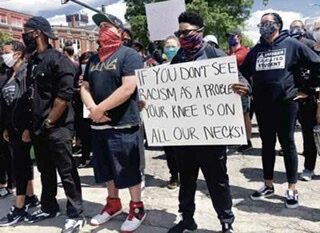
George Floyd.
A 46-year old black man who died in Minneapolis, Minnesota after officer Derek Chauvin, a white man, knelt on his neck for almost nine minutes while Floyd laid lifeless and handcuffed face down into the street.
Ahmaud Arbery.
A 25-year old black man who was shot by a white man while jogging.
Breonna Taylor.
A 26-year old black woman who was shot and killed by Louisville Metro Police Department Officers inside her home.
These black lives, along with many others have been lost and has sparked outraged around the world. As people continuously protest and plead for change, others are also using social media and are looting from certain businesses to get their point across.
Whether if its through rioting, looting, protesting and even posting onto social media accounts, people are demanding justice for all of the black lives that have been lost in the hands of police and white supremacy.
Although many people are choosing to use their voice to speak up on issues of race, police brutality, black lives and white privilege, others are choosing to stay silent. Today it is clear that these topics can no longer be swept under the rug.

However with videos surfacing of these brutal killings, and media outlets portraying black people in a negative light, some people cannot handle this all, especially African-Americans who have been alive since the Jim Crow Era. Some may feel as if their relieving those dark moments again.
While African-Americans normally face hardships, struggles and constant barriers, mental health comes into play especially during times like this. Sometimes there is a need to isolate and disconnect from social media and even the media as a whole. This is important so that you can recuperate and relax your mind.
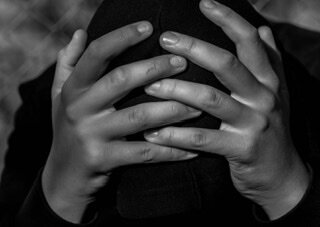
It is also important to create a safe space for yourself. Even though someone may feel like they need to take a break or disconnect from social media, it is not safe to disconnect from people. If you are overwhelmed, stressed, or anxious, whatever it is that you are feeling, talk to someone. Find a relaxing and safe way to let that anger and frustration out. Although it may sound impossible, there is always a way.
As black people we must stand together, help each other and create safe spaces for each other to express our feelings. Our health is a priority. I have listed some black mental health resources down below:
5. Ethel’s Club
Report: Juana Norales
At the rise of Covid-19 many of us first questioned the timeline of fashion week and would we see the regular calendar continue - the question weighed over many of us for months! It was refreshing to see design houses and designers across the globe take advantage of the uncertainty and plow into production mode - thus my interest in Jerri Reid New York - The Black Designer based in Brooklyn New York wow’d instagram with his latest collection paying homage to the Black Is King film which debuted earlier this year in July. I was taken aback at quick of a turn round the young designer produced and released his well crafted designs reflecting some of the films most memorable moments.
Being a black gay creative for me feels liberating but at the same time there’s pressure. Pressure in needing to express yourself to a white society, that you are enough; what feels like having to explain my existence. having to explain why who I am and the art I produce is more than a hyper sexual view, but just what it is, art - expression, my expression.
Summer is here and it’s important for every woman to feel beautiful in their own skin. Support these amazing companies that offer some beautiful swimwear pieces that will leave you feeling confident and vibrant.
It's always been important to support black designers, but amid a pandemic and sociopolitical crisis, these black artists and business owners need your support now more than ever!
While people have shown concern for the rapper, others have taken the opportunity to make jokes about the incident. Within the last couple of months, the topic of how Black women are marginalized in society has become more prevalent.
The sudden worldwide shift to Digital Fashion Weeks has engendered confusion and ambivalence among designers and fashion brands, particularly in regards to the content of their promotional videos.
After witnessing the backlash from Simone Biles Vogue cover I had to sit aside and ponder: Why is it so challenging for some photographers to capture the beauty of black skin/people? Our undertones, our glow, even the texture of our hair. So, like always I went looking for methods to best capture dark skin.
This spicy blackberry and plum sauce recipe was a push for something different and will now be my go to condiment for the summer season.
Black women die at a rate three times higher than white women when giving birth. The death of Sha-Asia Washington has shown the racial disparities Black women face in childbirth.
Shoot for the Stars Aim for the Moon is the first posthumous album to reach No. 1 since 2018. Pop Smoke and XXXTentacion are two of the four hip-hop artists with posthumous No. 1s. They follow The Notorious B.I.G. and 2Pac, who each have three posthumous leaders. R.I.P to the Woo.
To be black and well can mean a lot of things, but should definitely include #Skincare #Meditation #BlackReading among many other things, daily! #BlackLivesMatter #HealthAndWellness #AmplifyBlackVoices
Ib Kamara Celebrates "Future, Community, Beauty, and Blackness" in Browns' "Family Affair"
What we wear should make us feel good, especially for our moms to be. Finding the perfect pair of jeans and tops can be tough, and for pregnant women, even harder. Read more to see some great places to shop tha
Among the many other issues surrounding diversity and inclusion within the fashion industry, it's important to acknowledge the failings of the system that produces fashion industry practitioners; the university.
Although we all rely on fast-fashion brands like H&M, Forever21 or Fashion Nova, we all might be forgetting how these brands manage to make all these garments and accessories for such affordable prices.













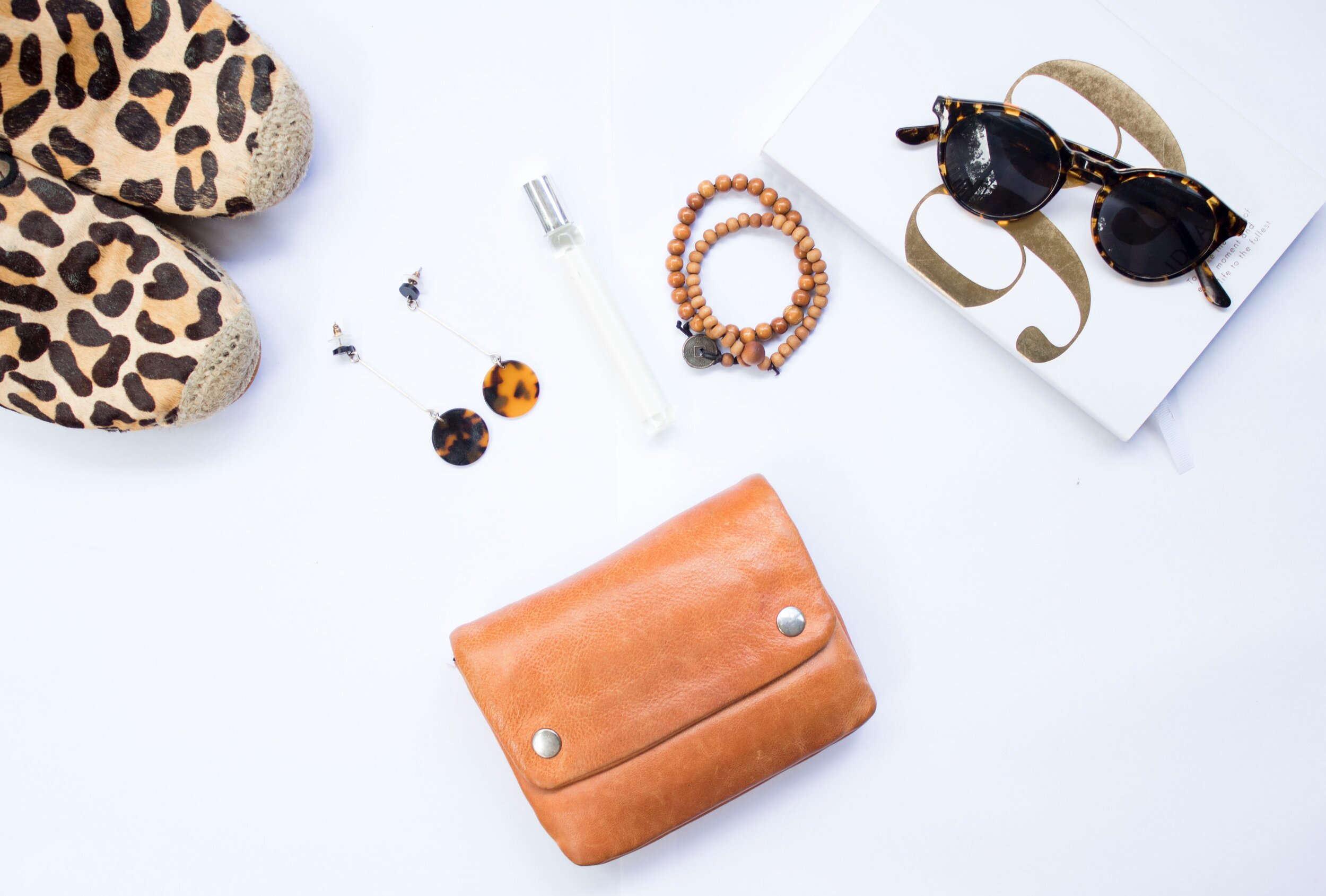


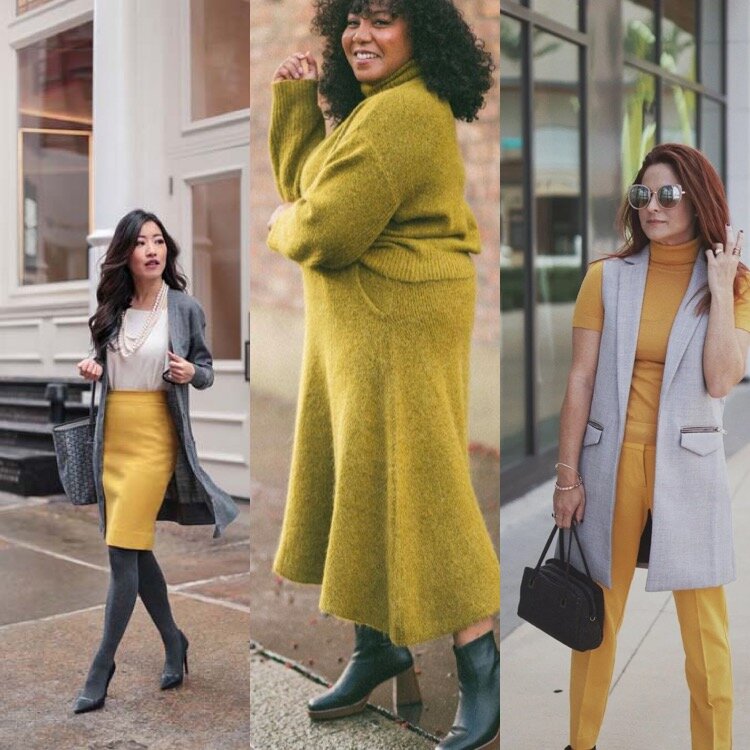






























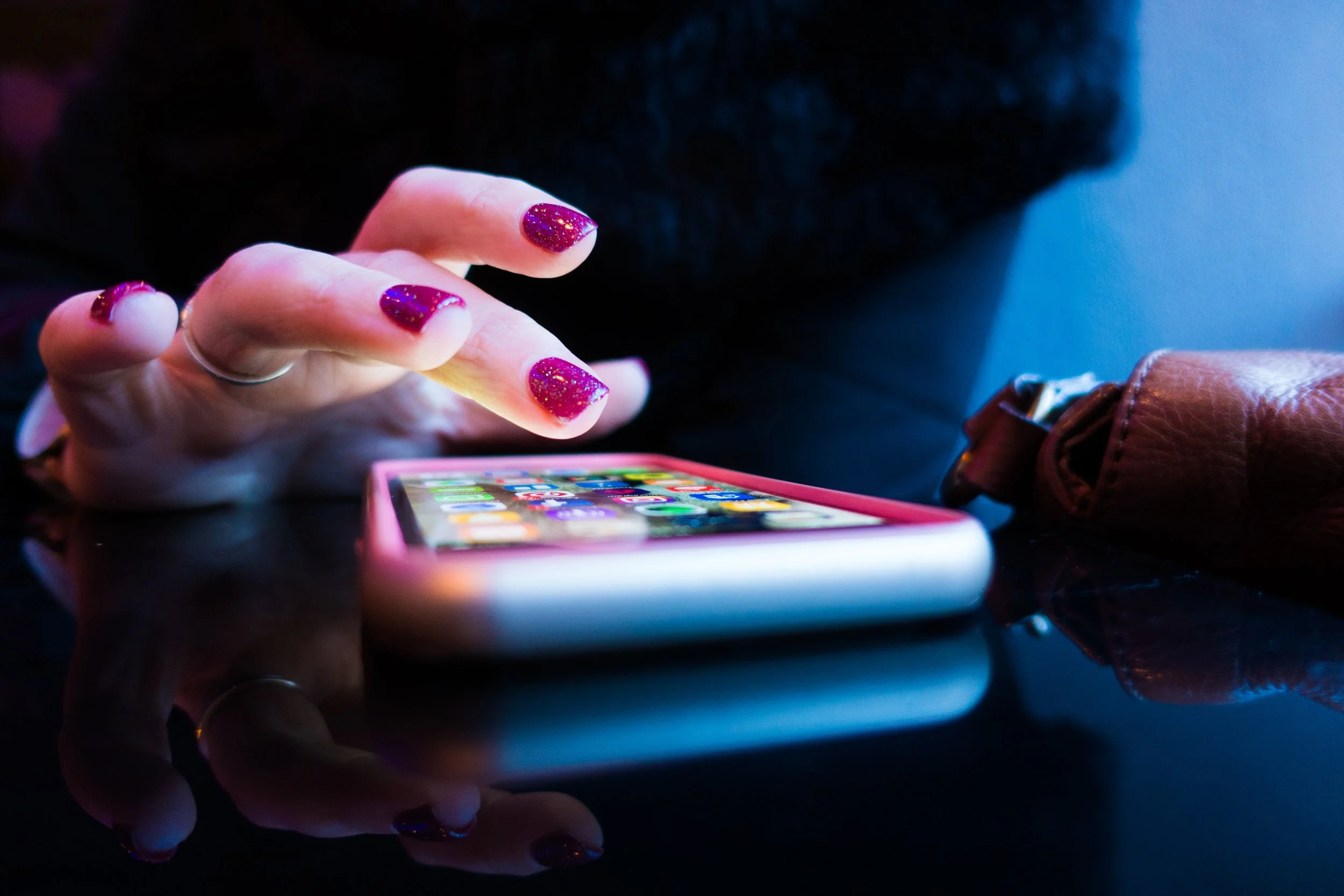
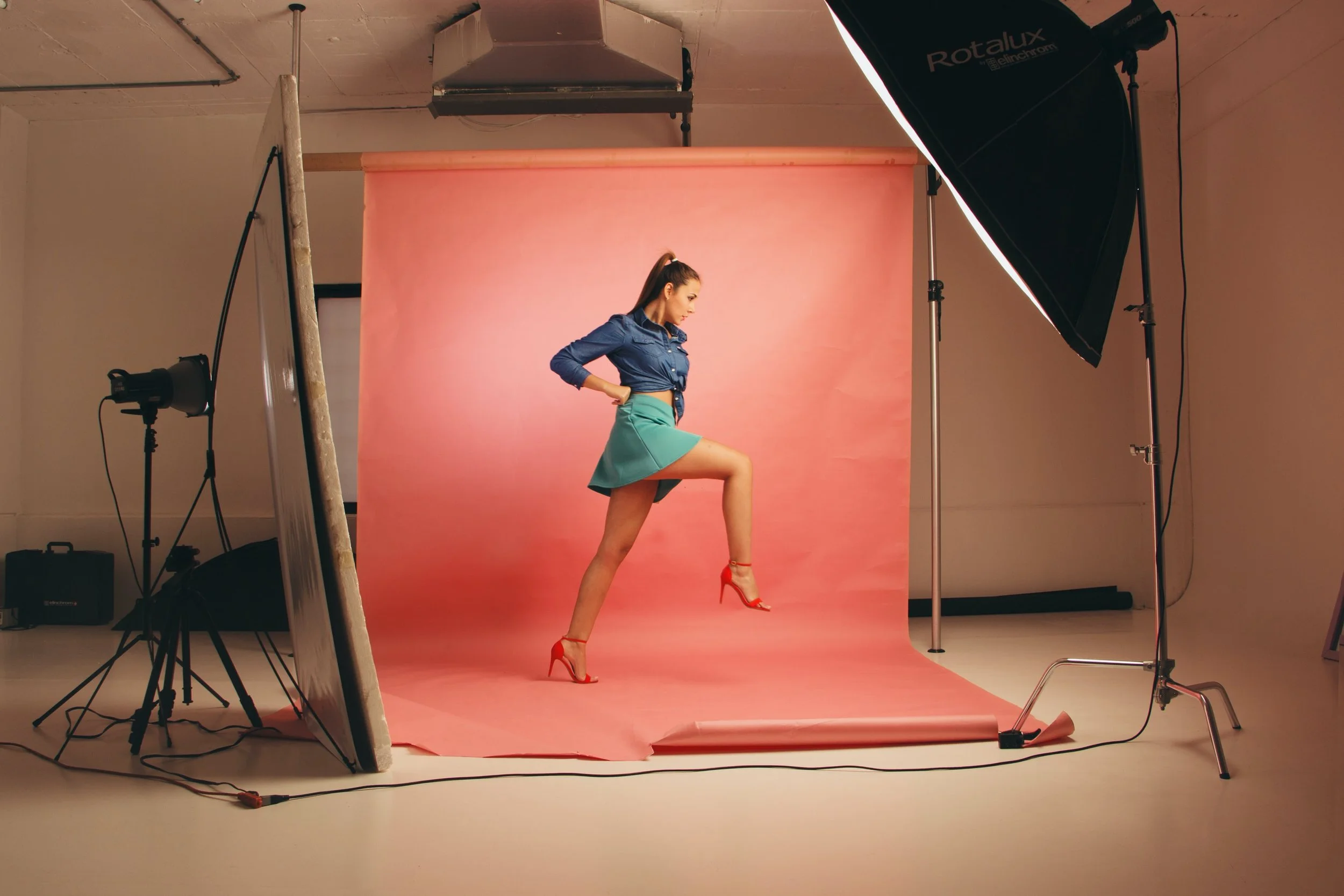

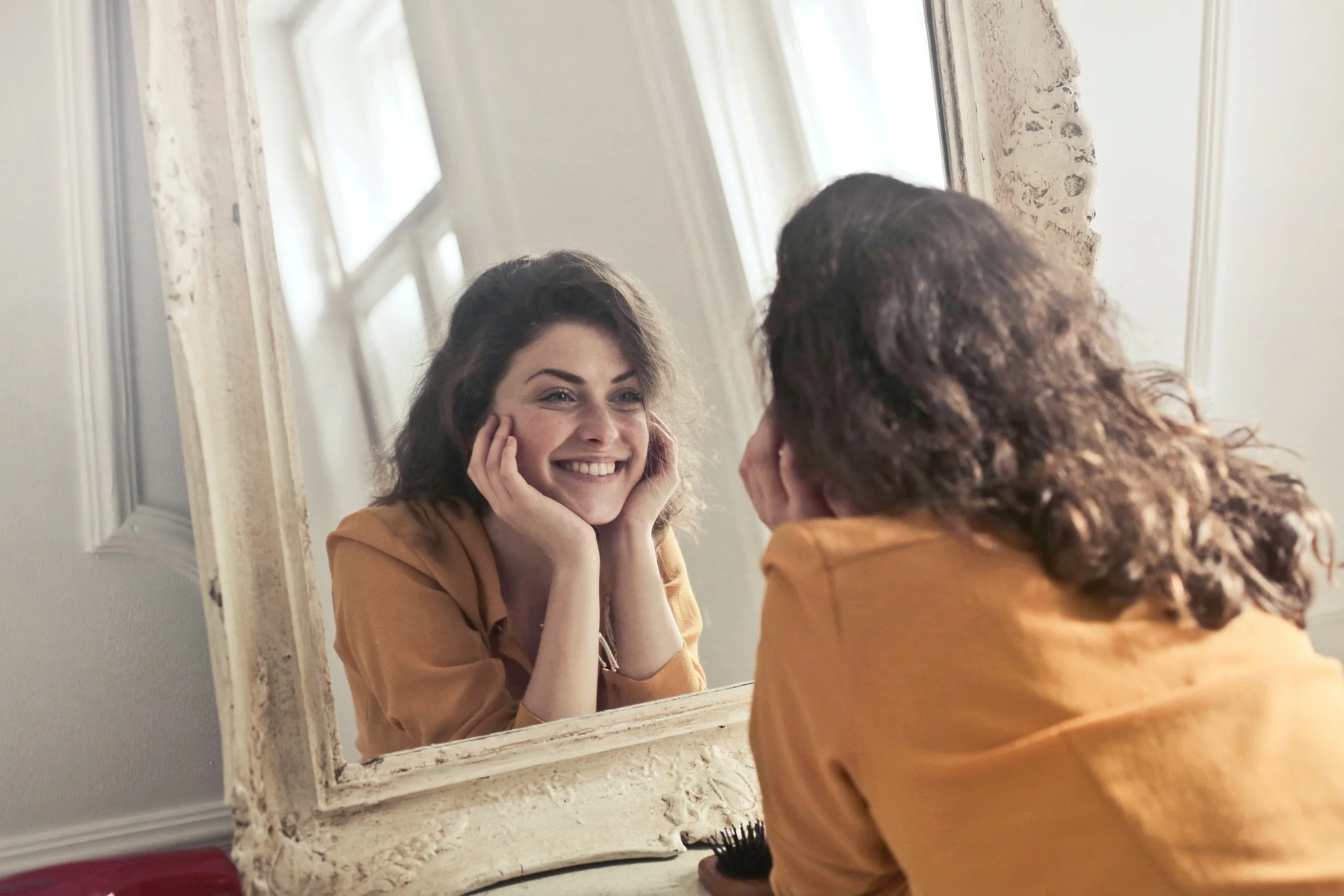
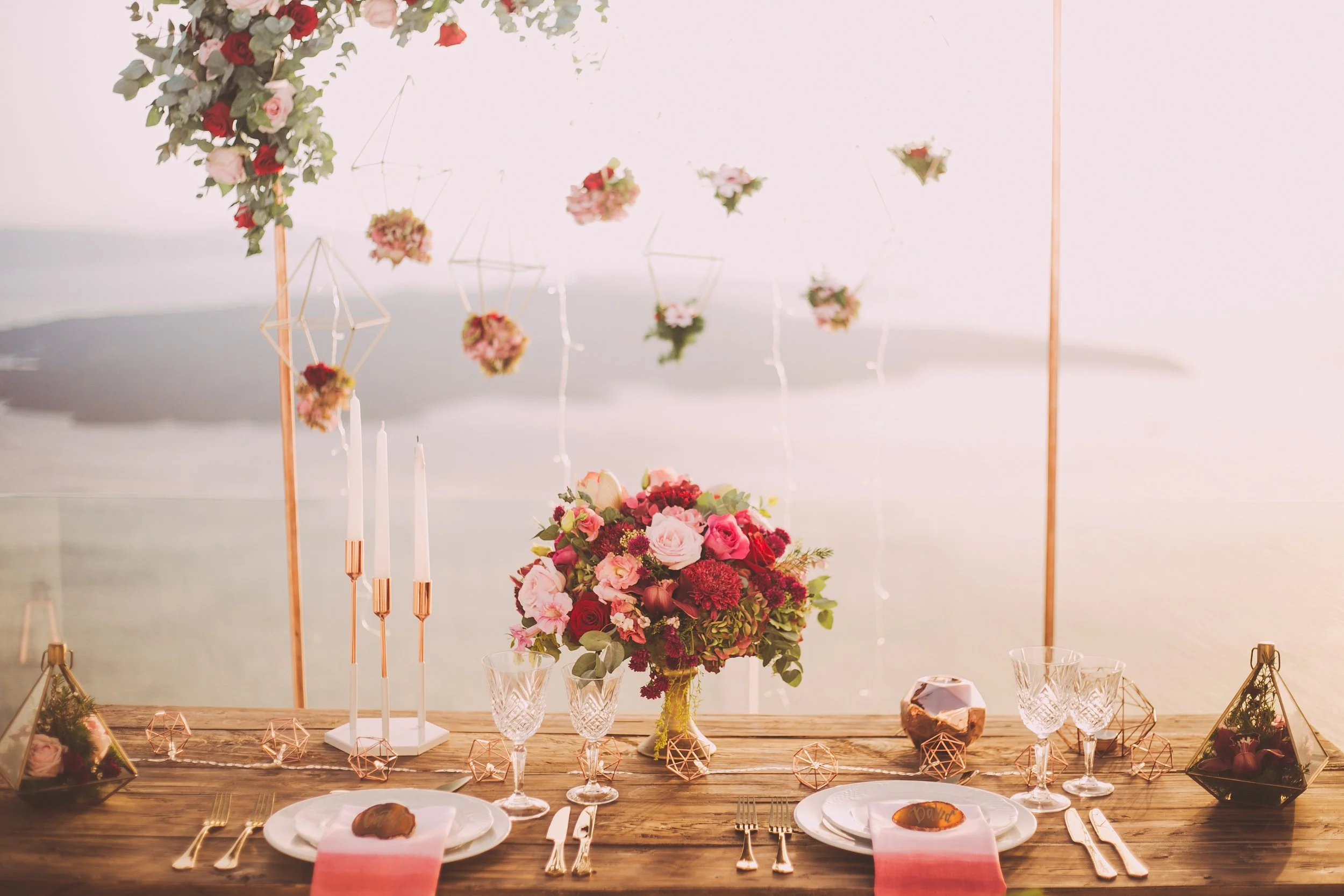
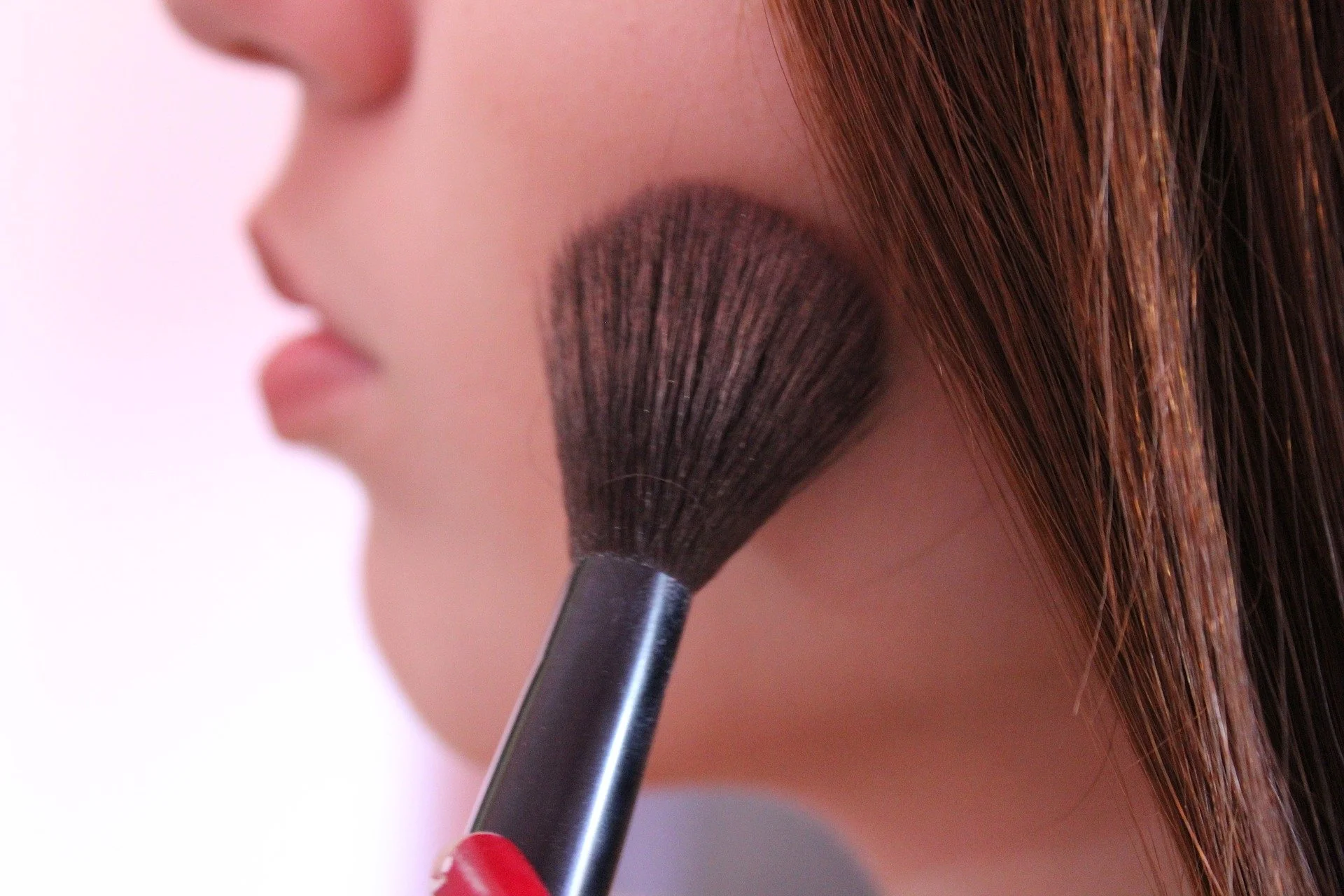





















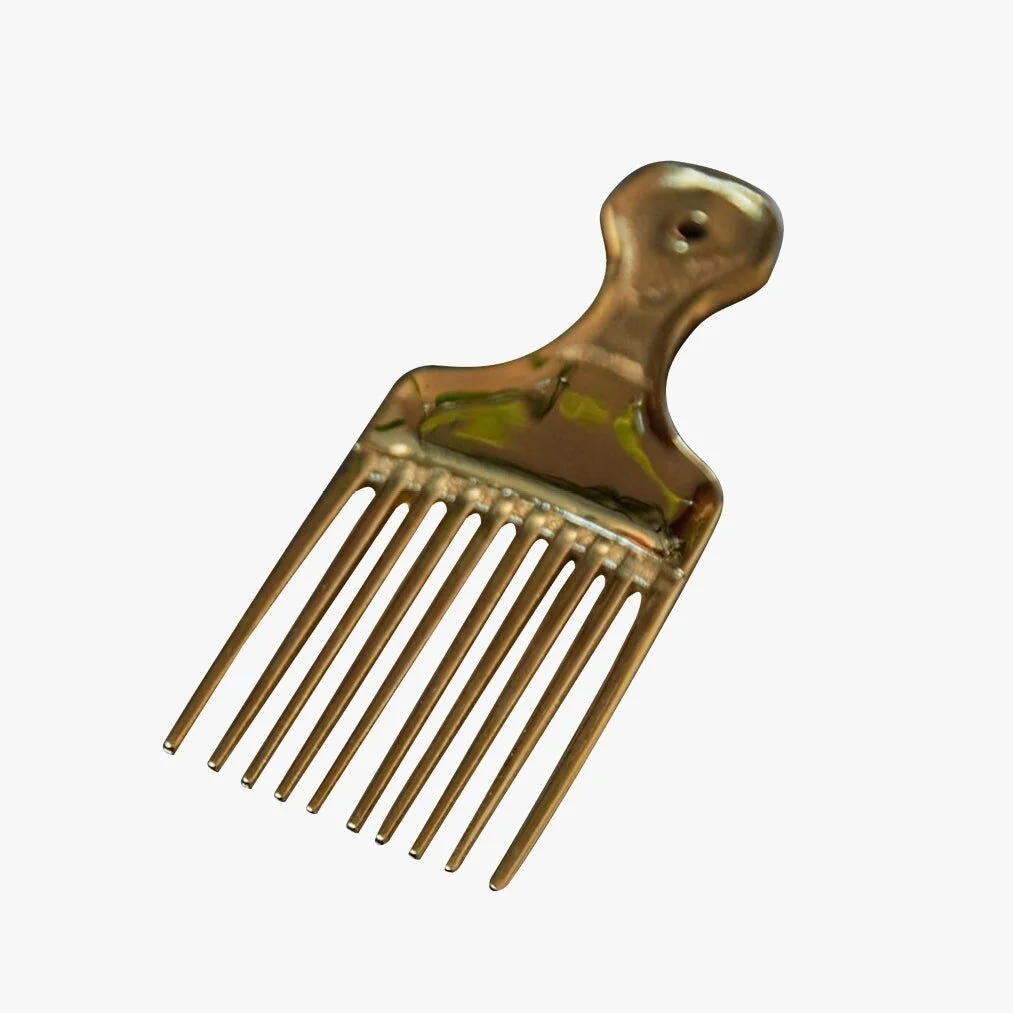










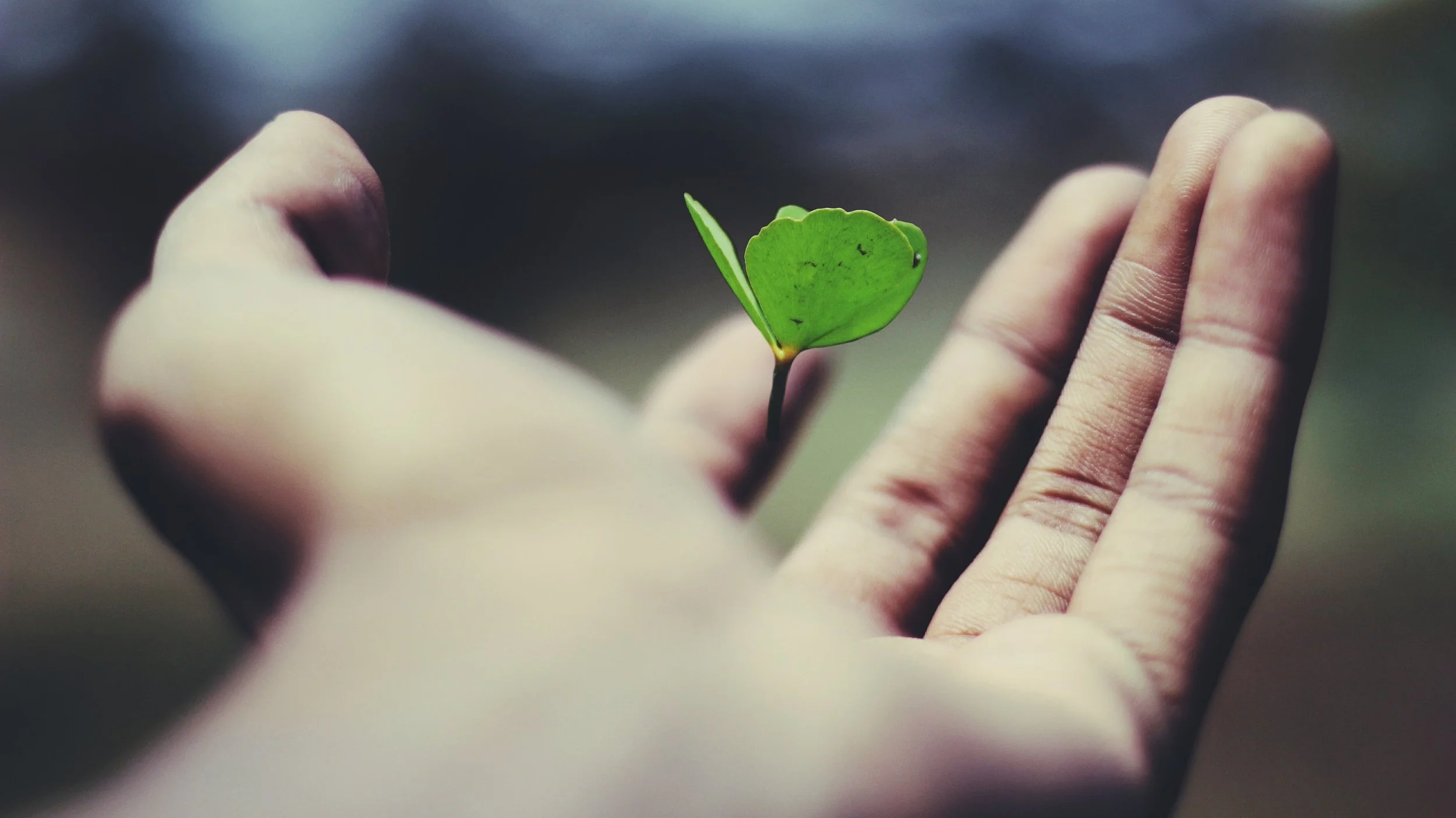


At the rise of Covid-19 many of us first questioned the timeline of fashion week and would we see the regular calendar continue - the question weighed over many of us for months! It was refreshing to see design houses and designers across the globe take advantage of the uncertainty and plow into production mode - thus my interest in Jerri Reid New York - The Black Designer based in Brooklyn New York wow’d instagram with his latest collection paying homage to the Black Is King film which debuted earlier this year in July. I was taken aback at quick of a turn round the young designer produced and released his well crafted designs reflecting some of the films most memorable moments.